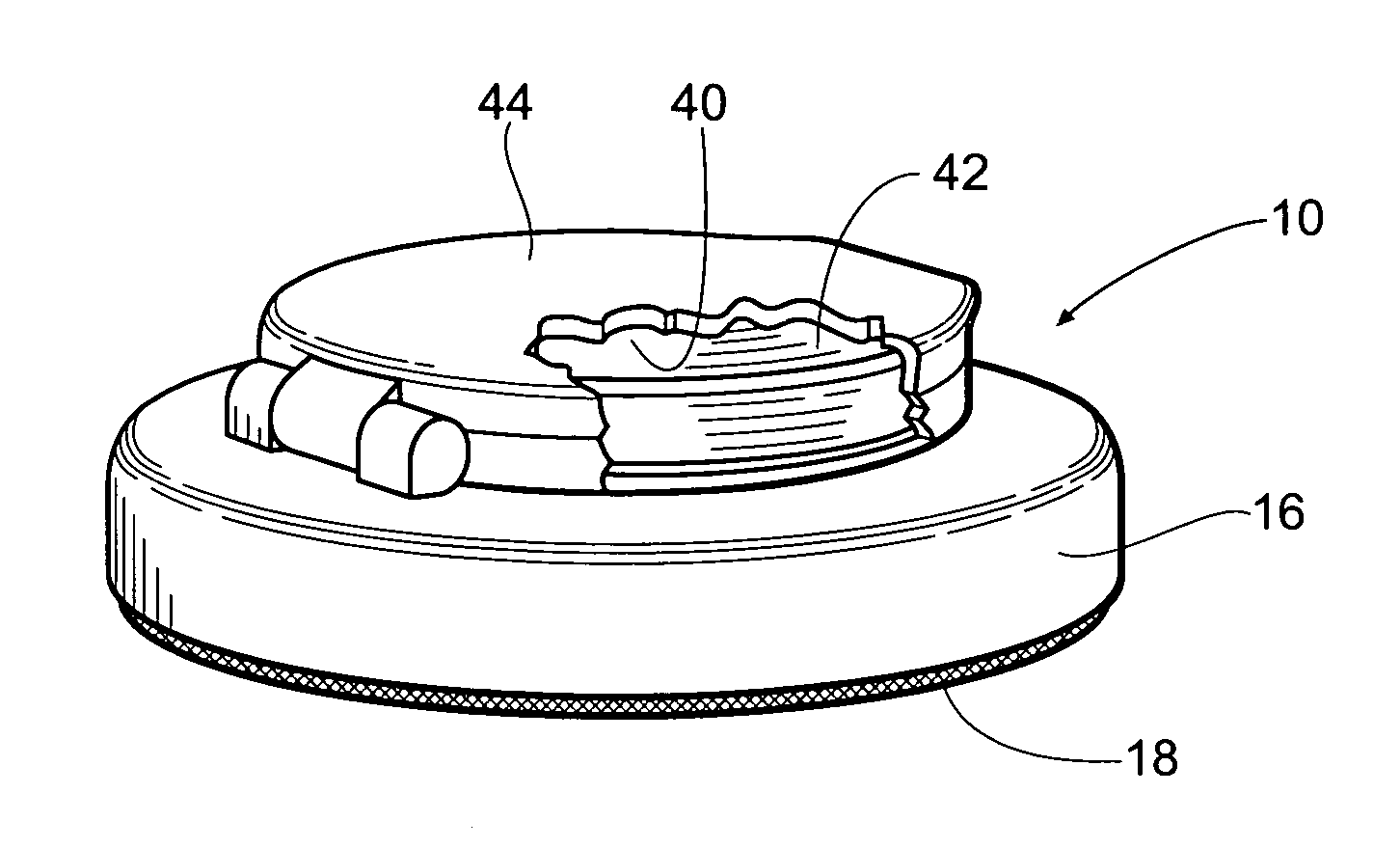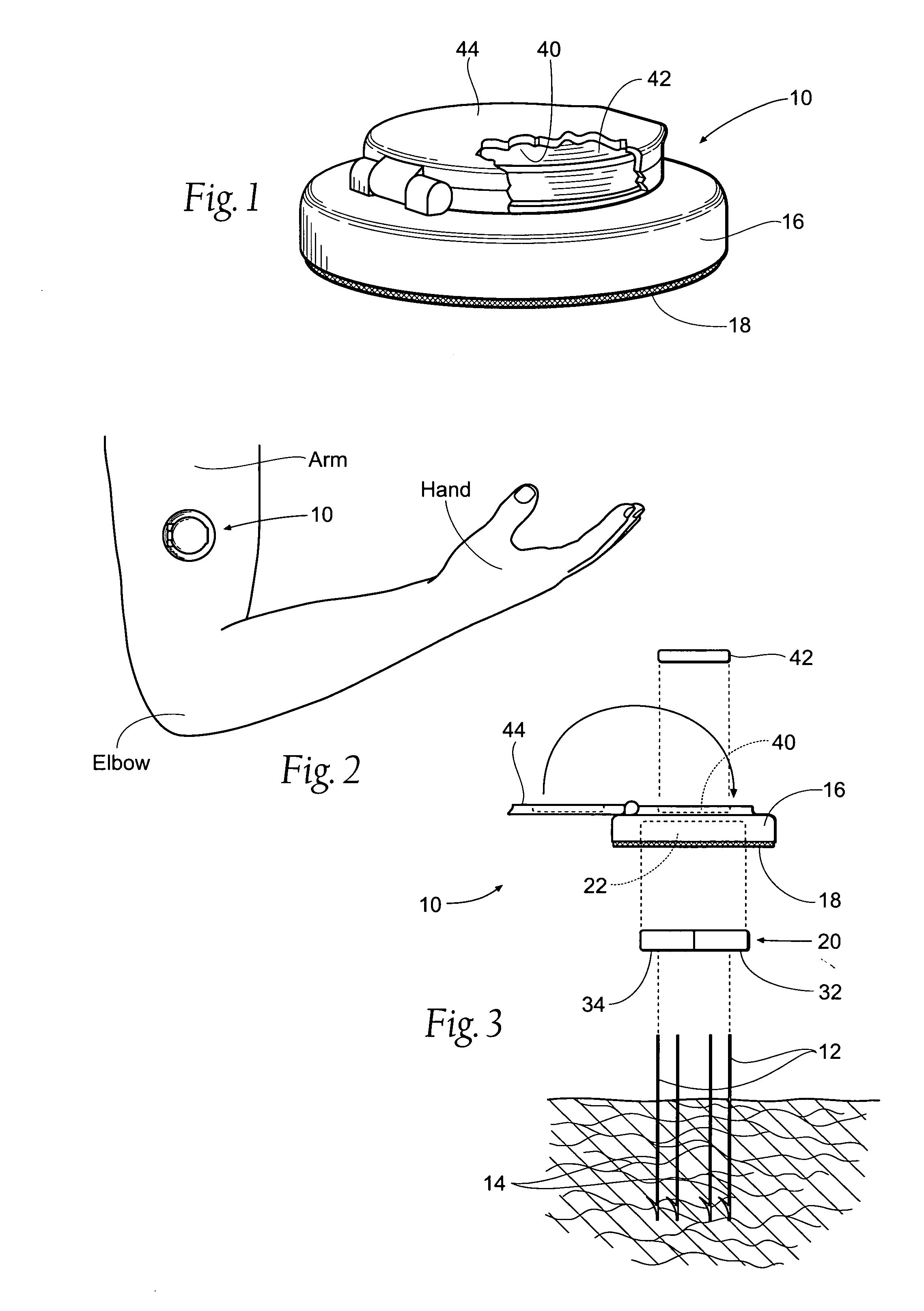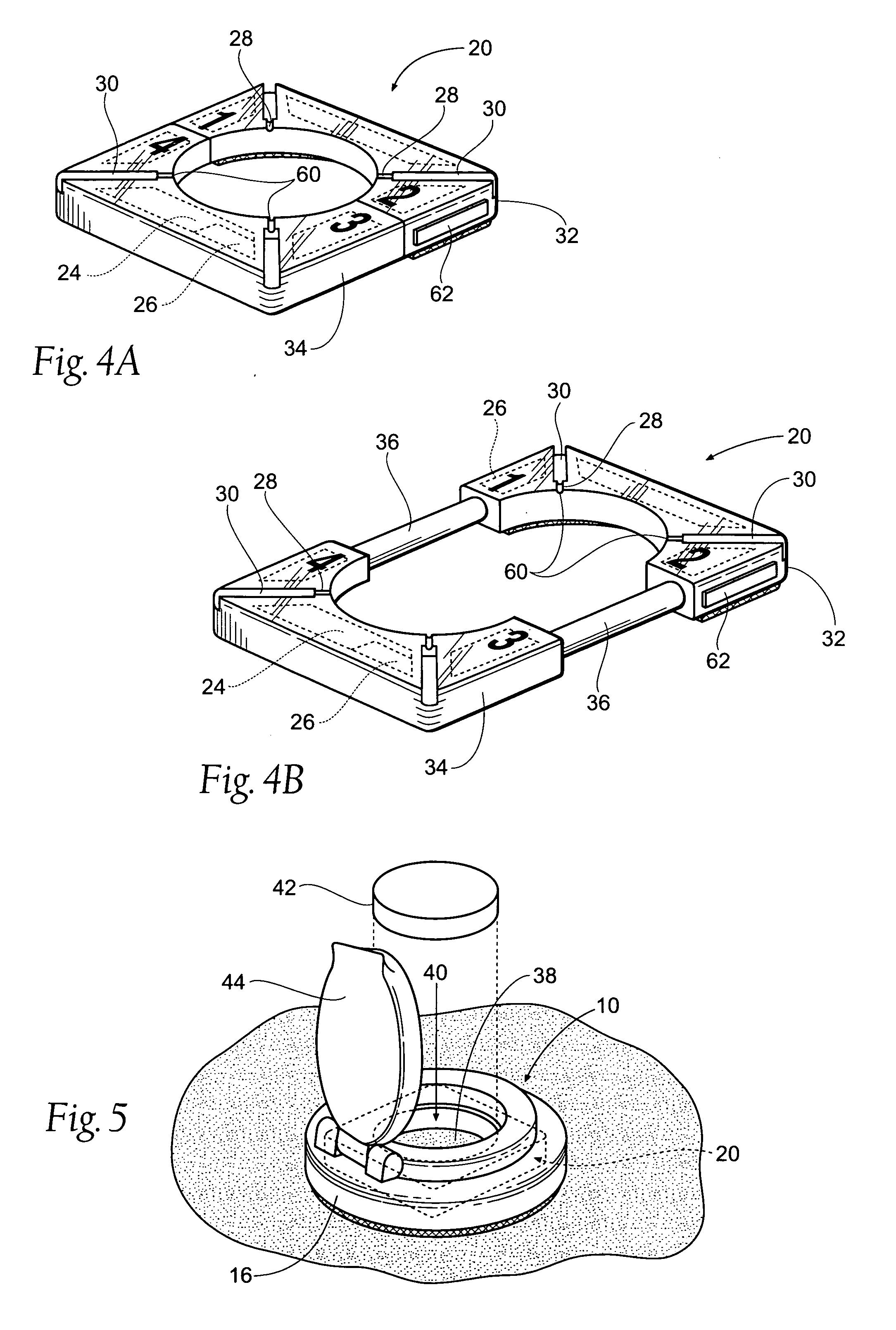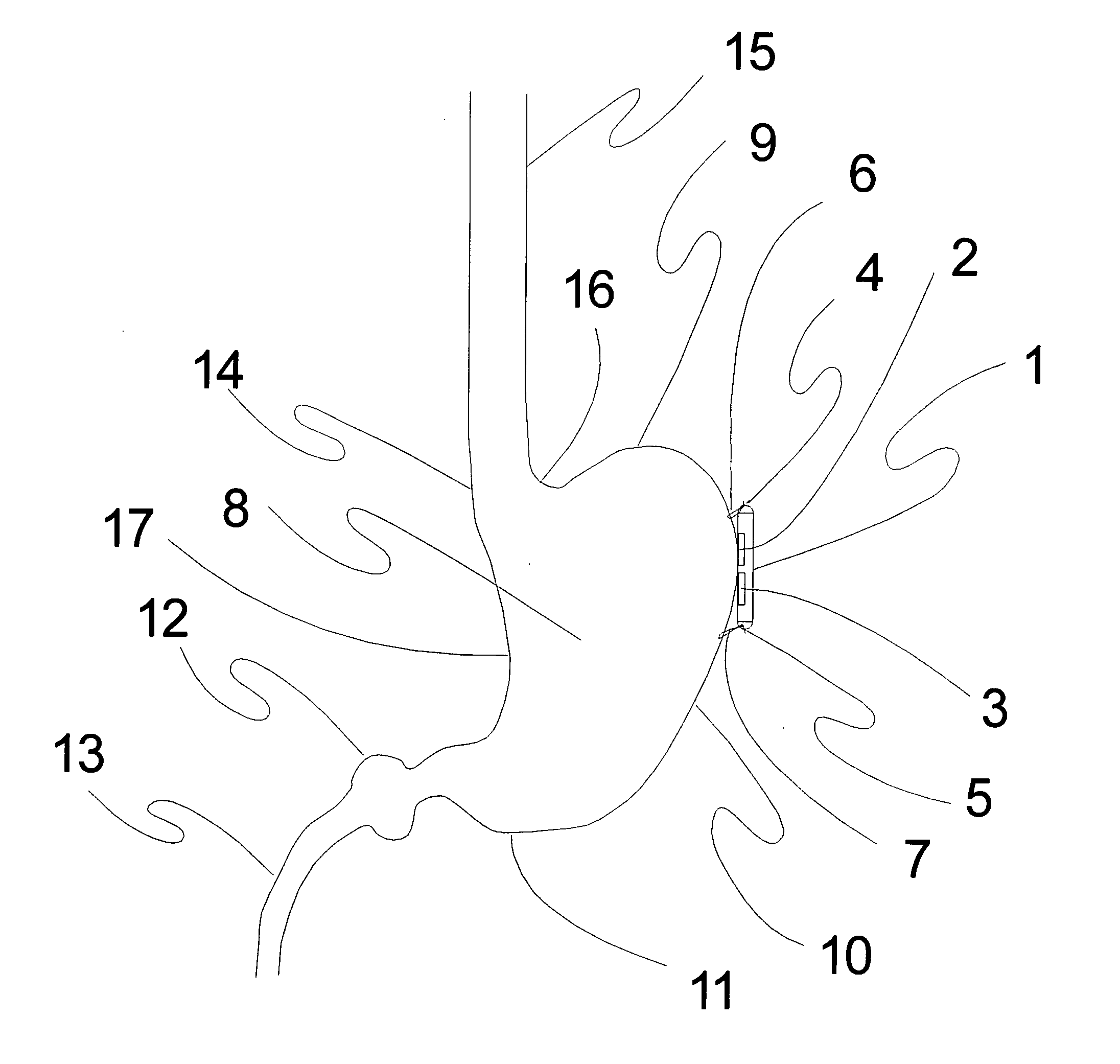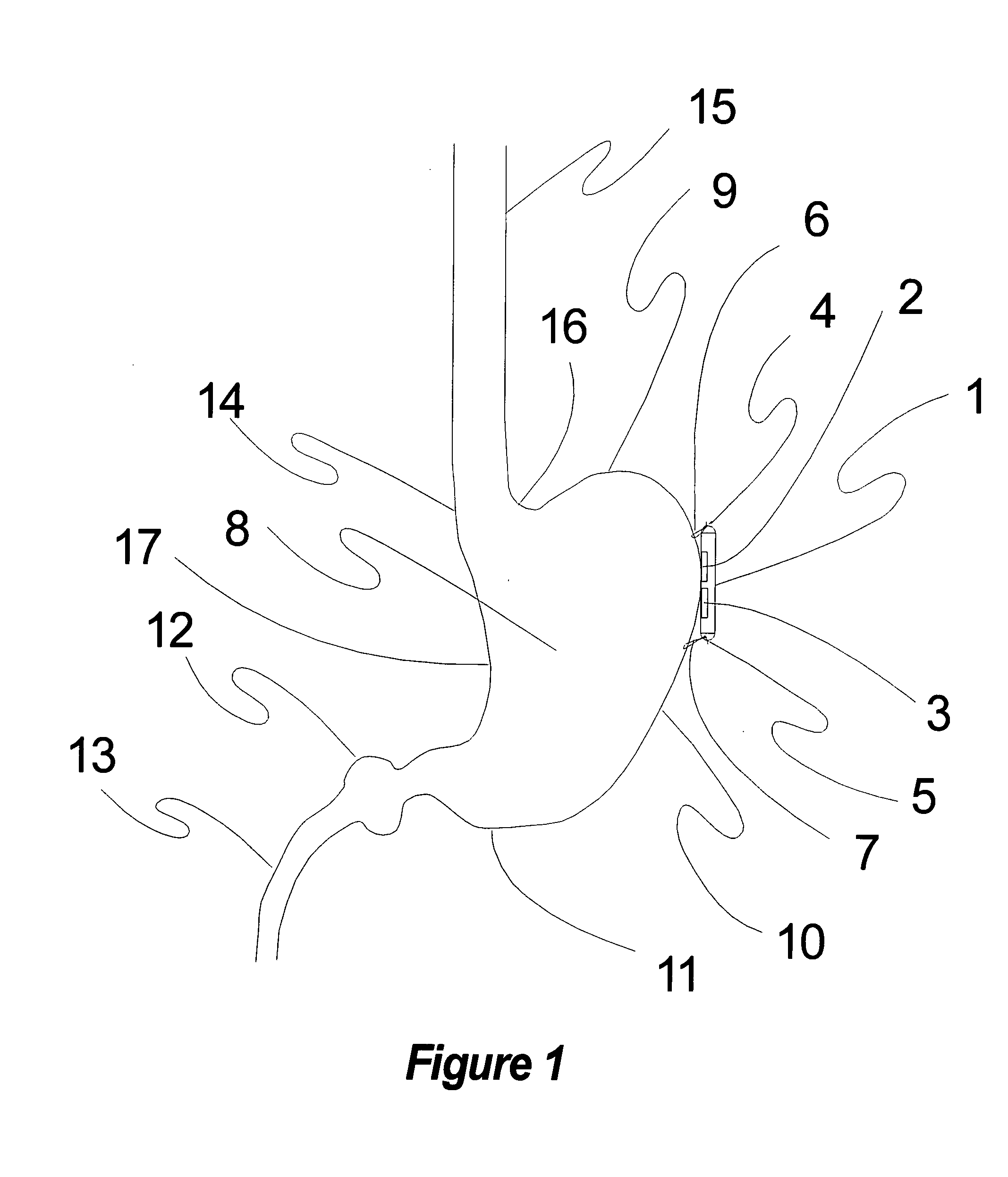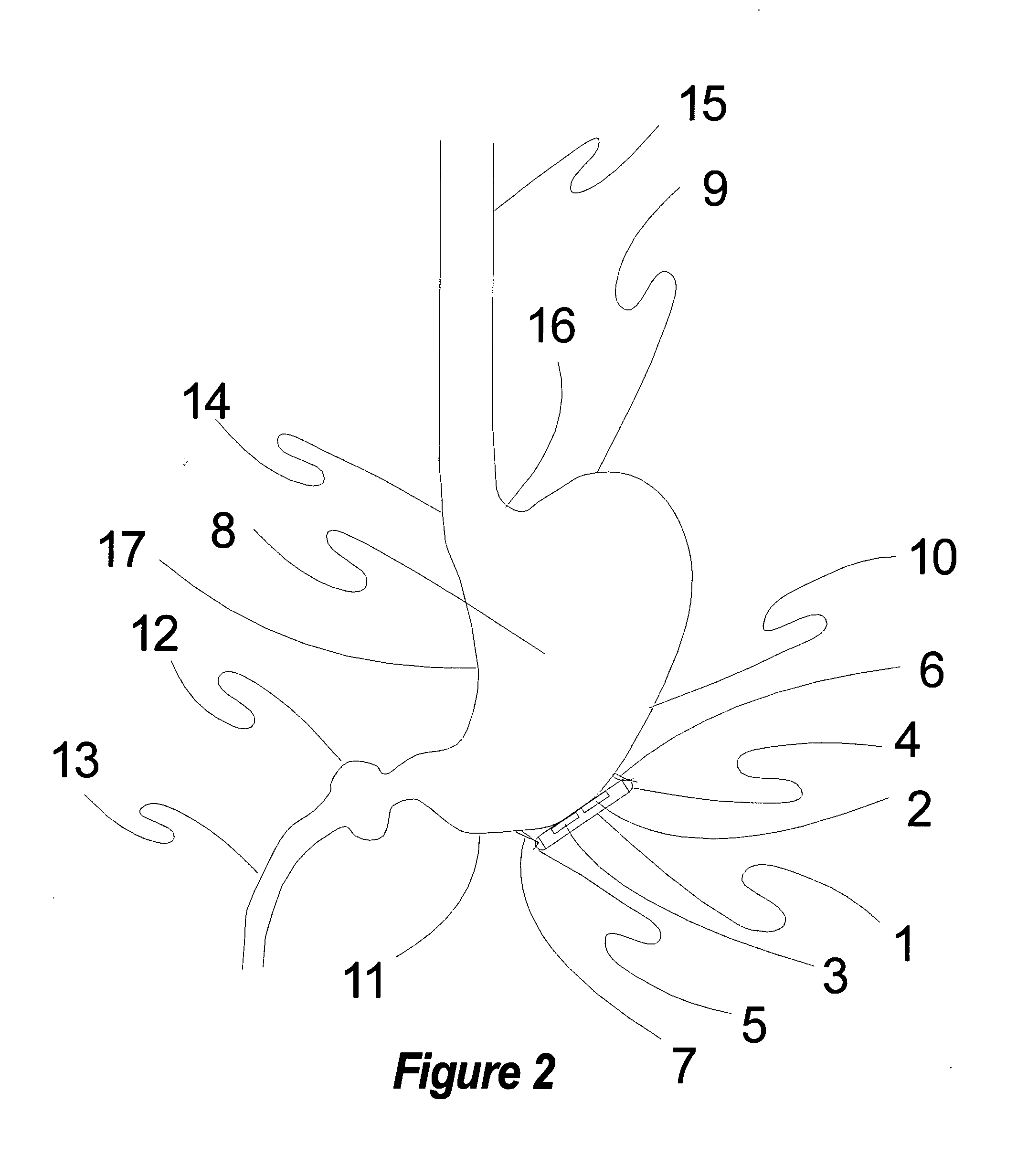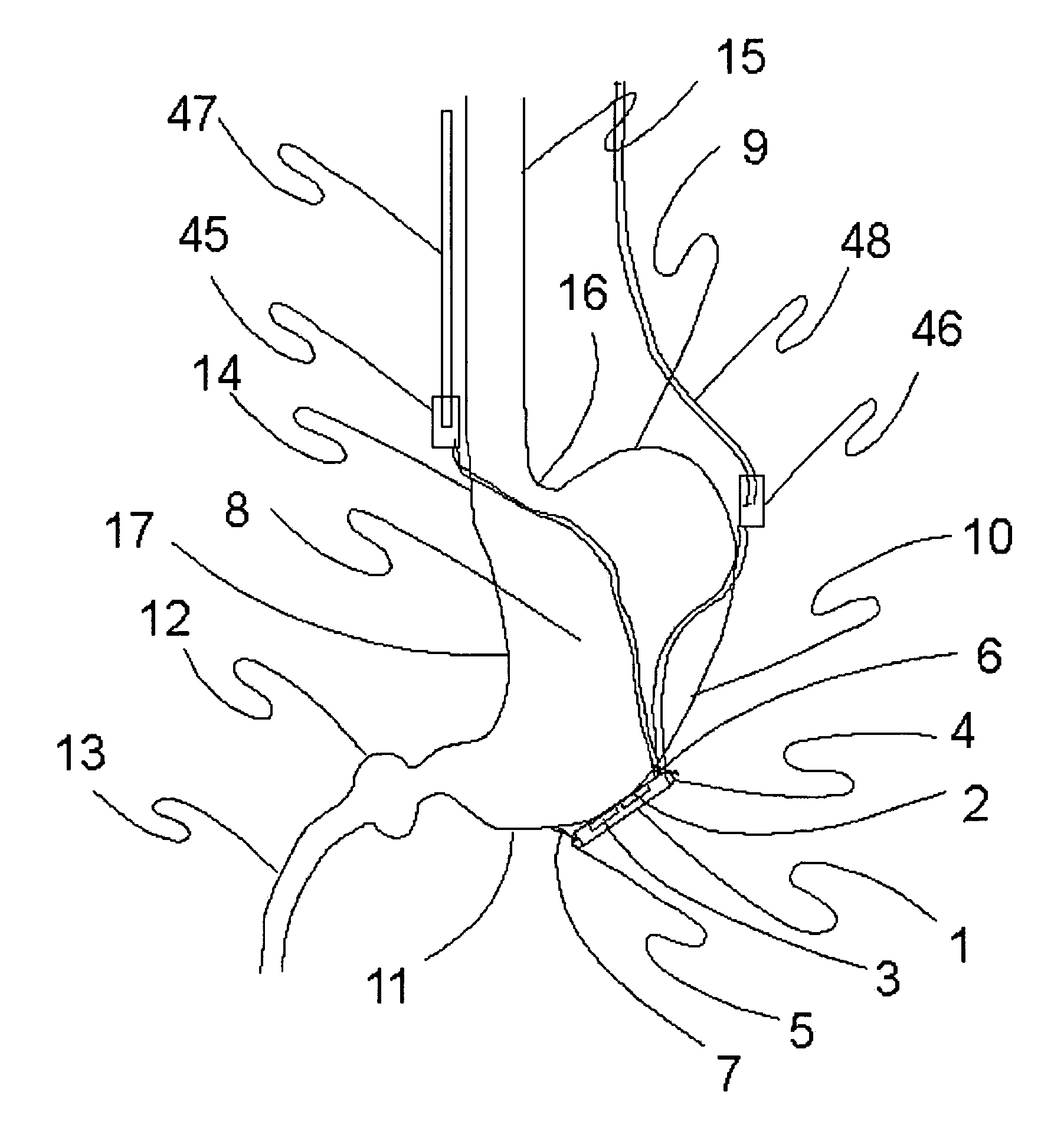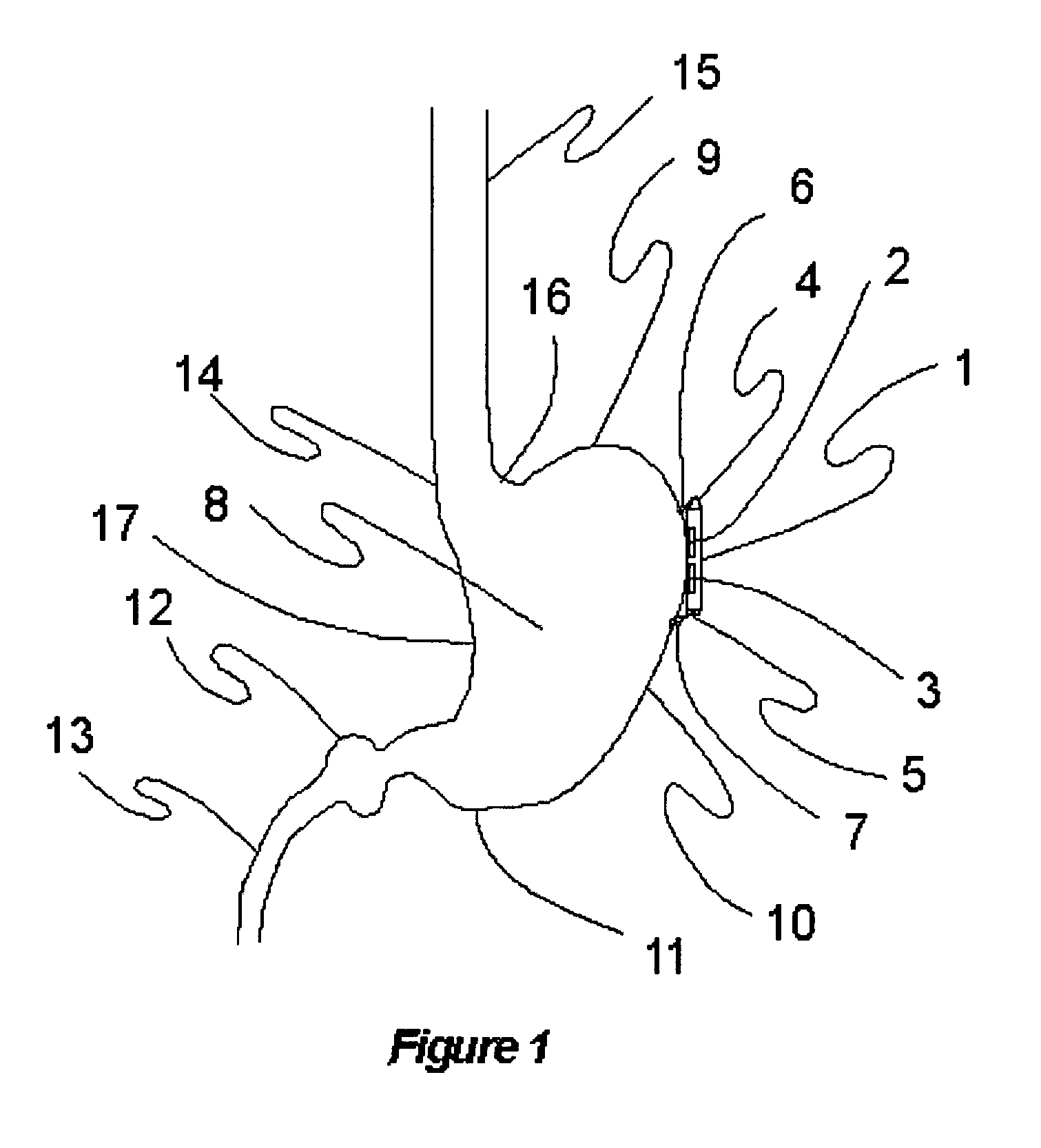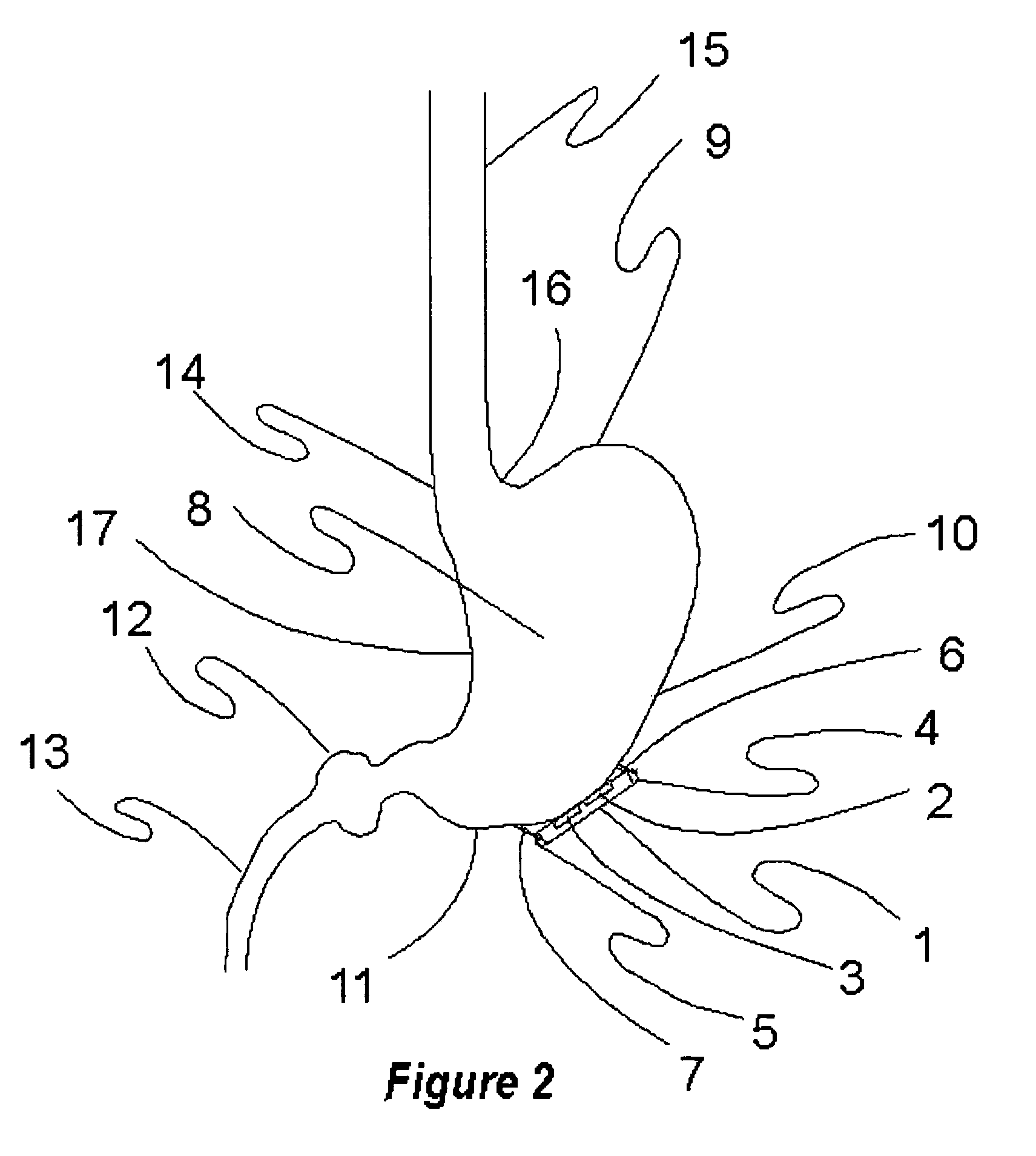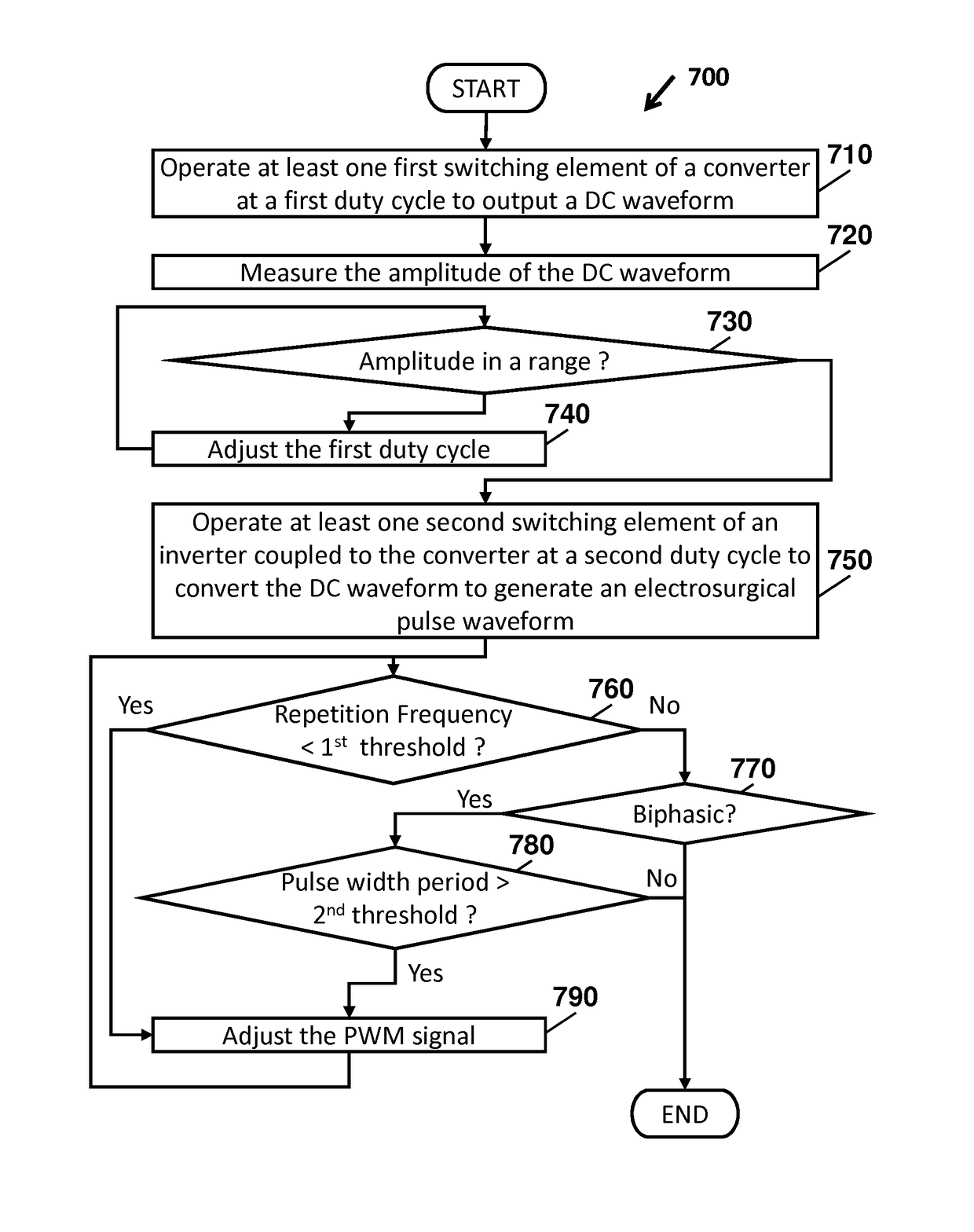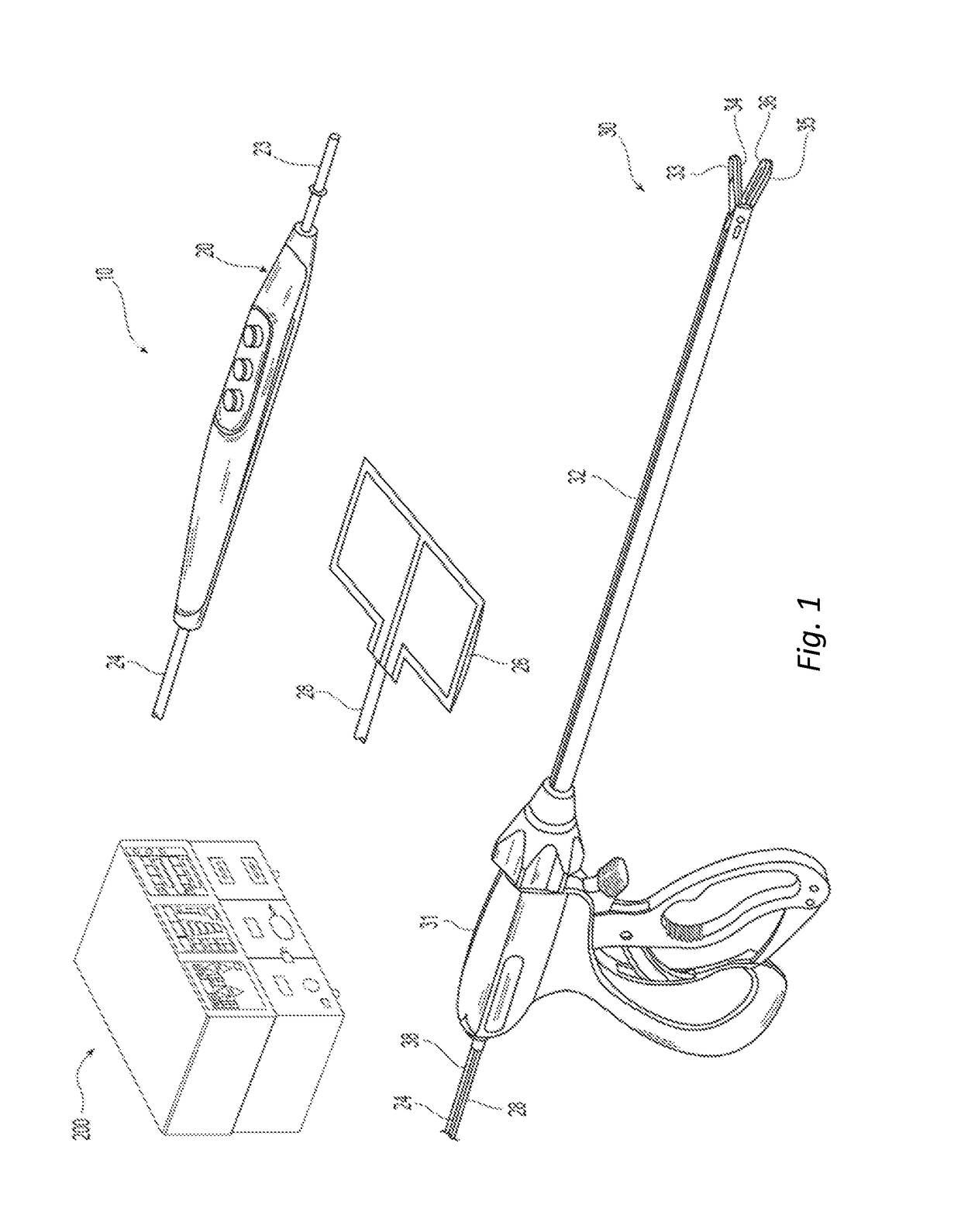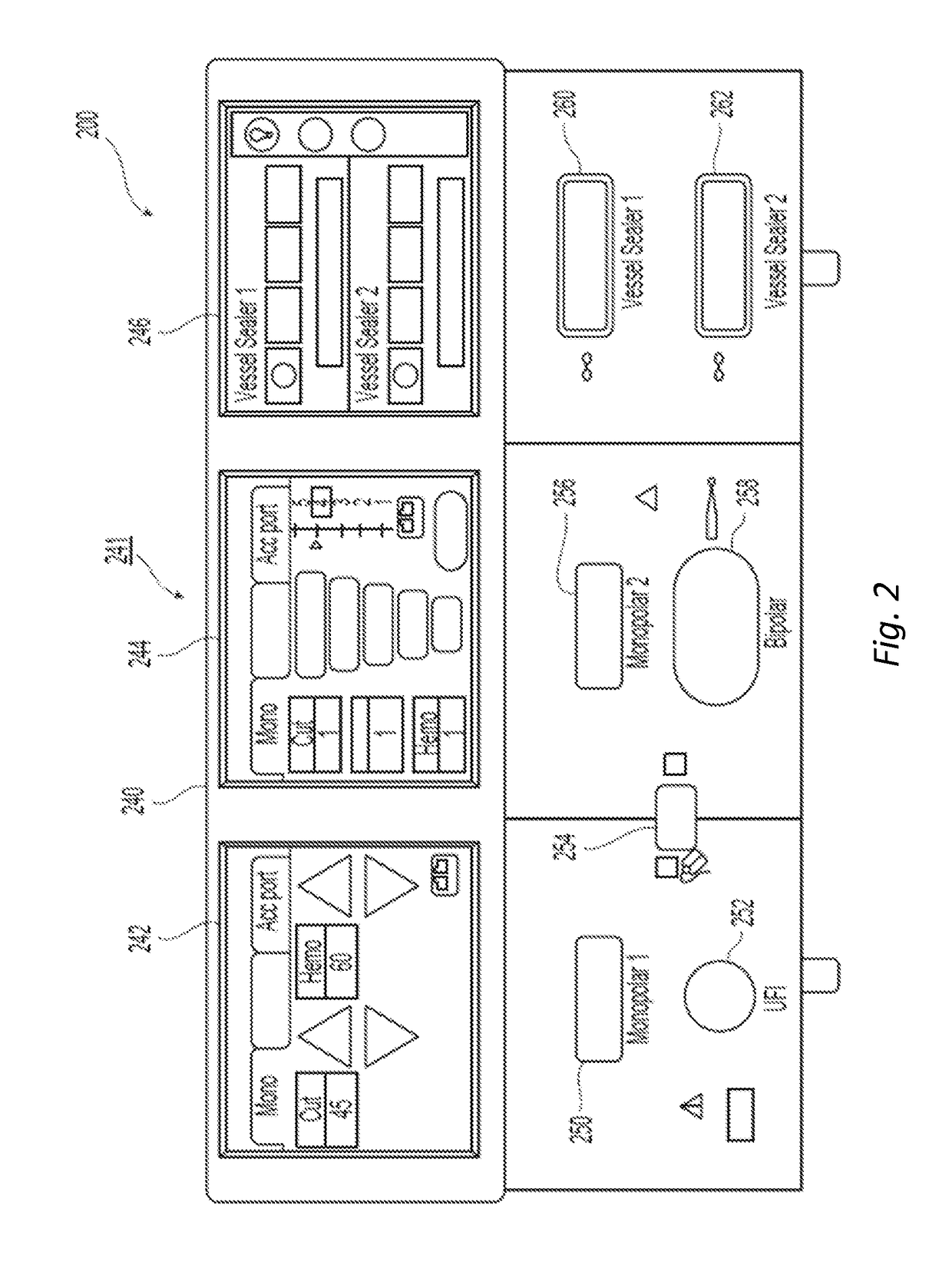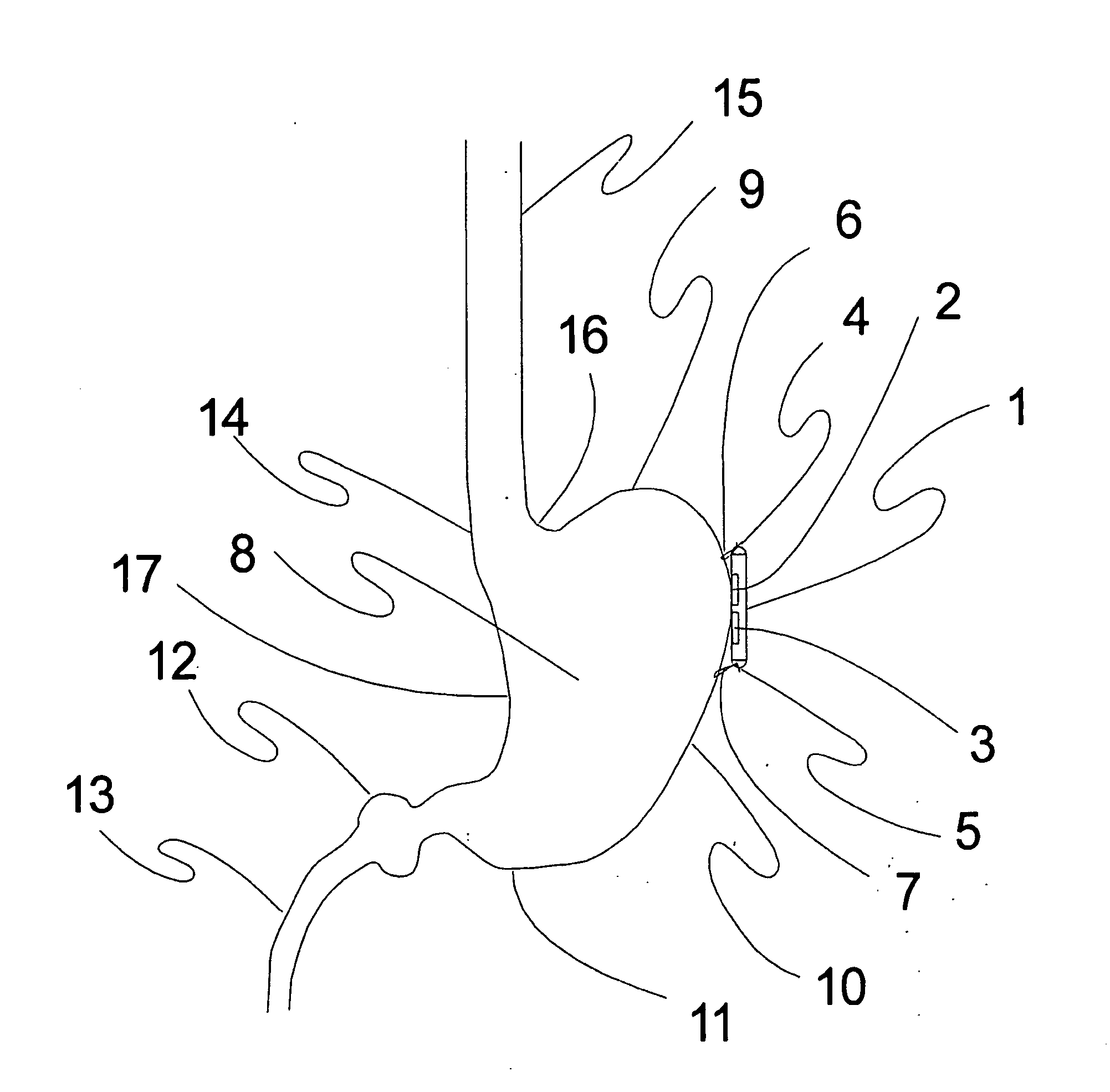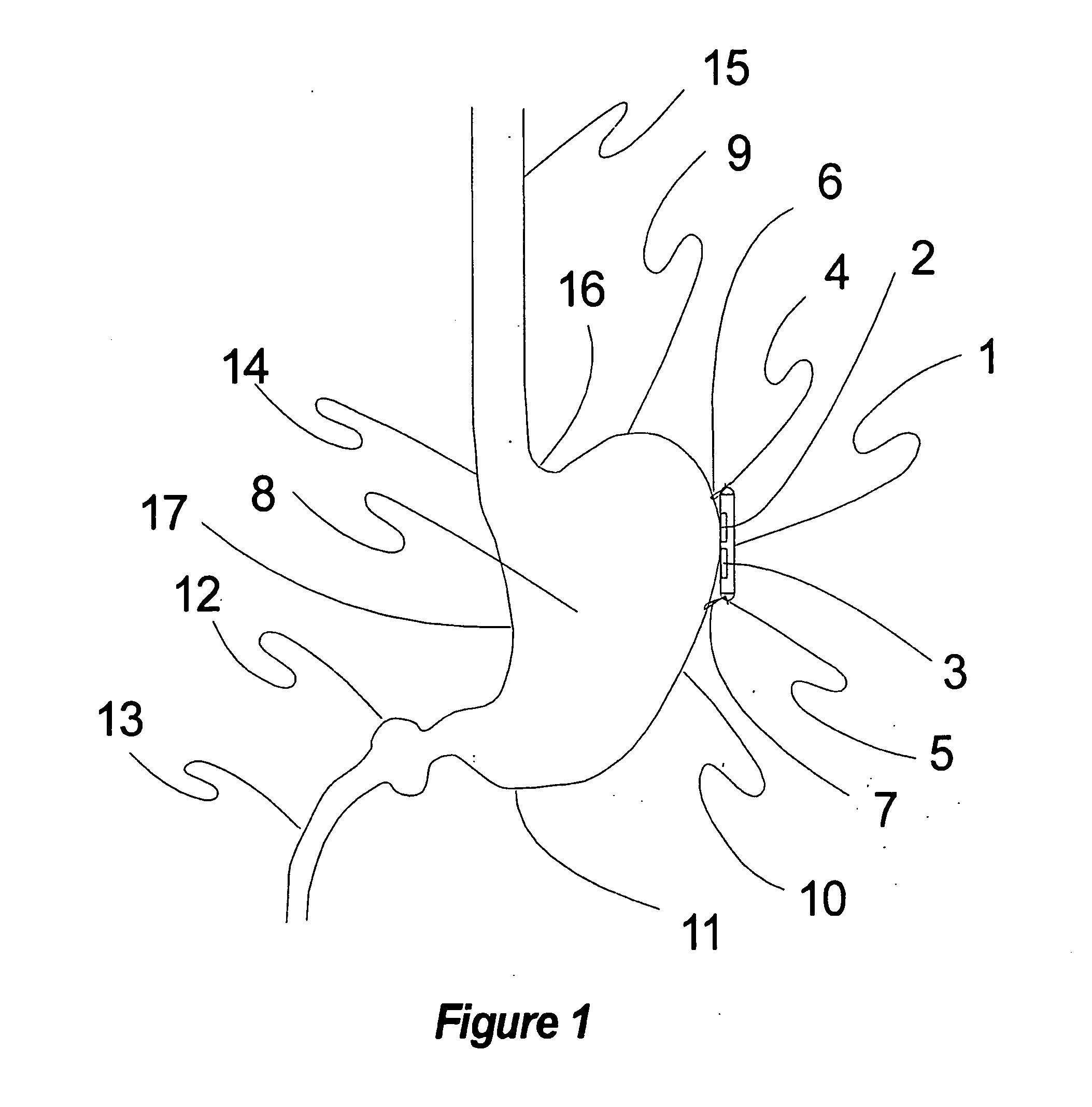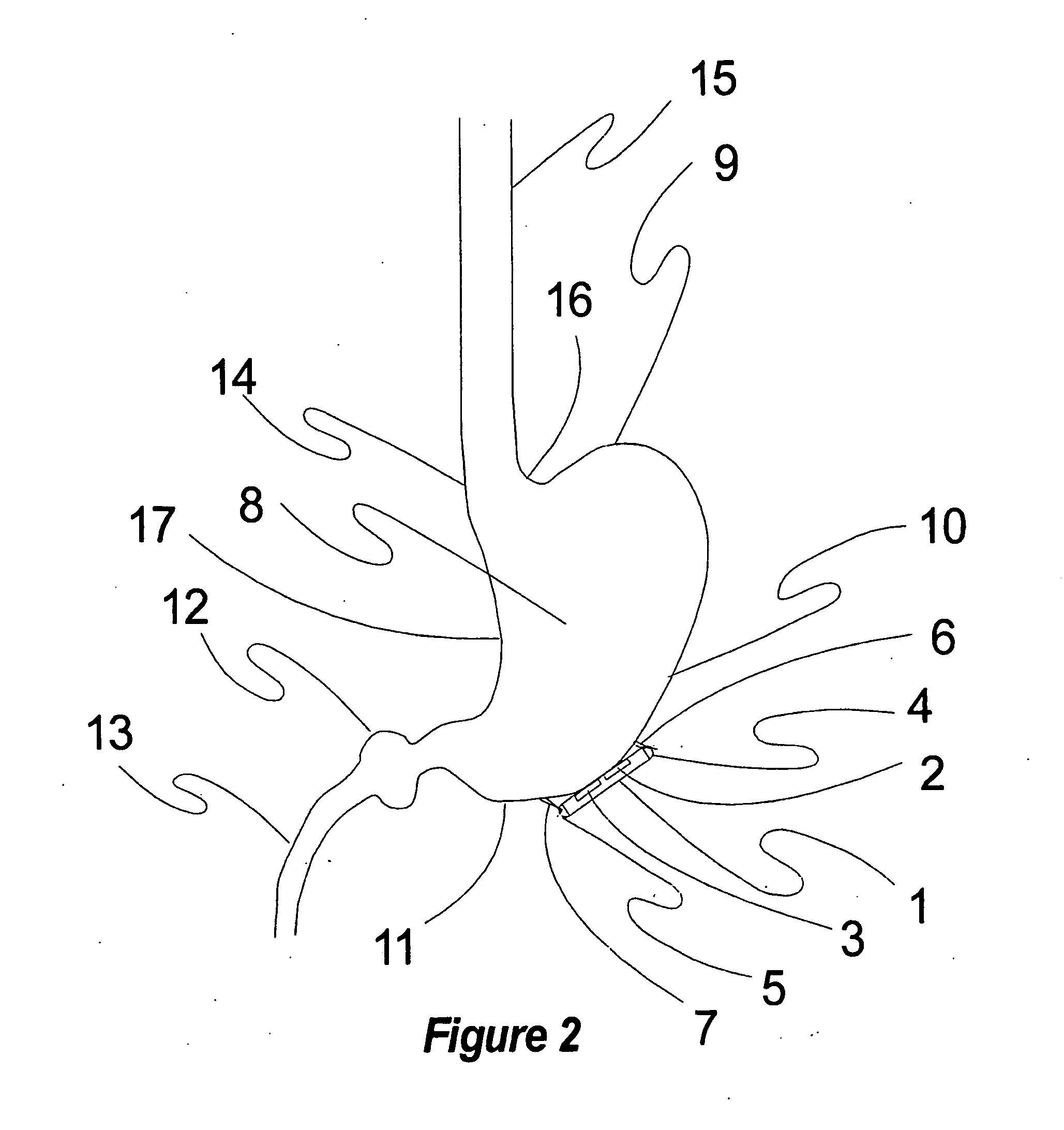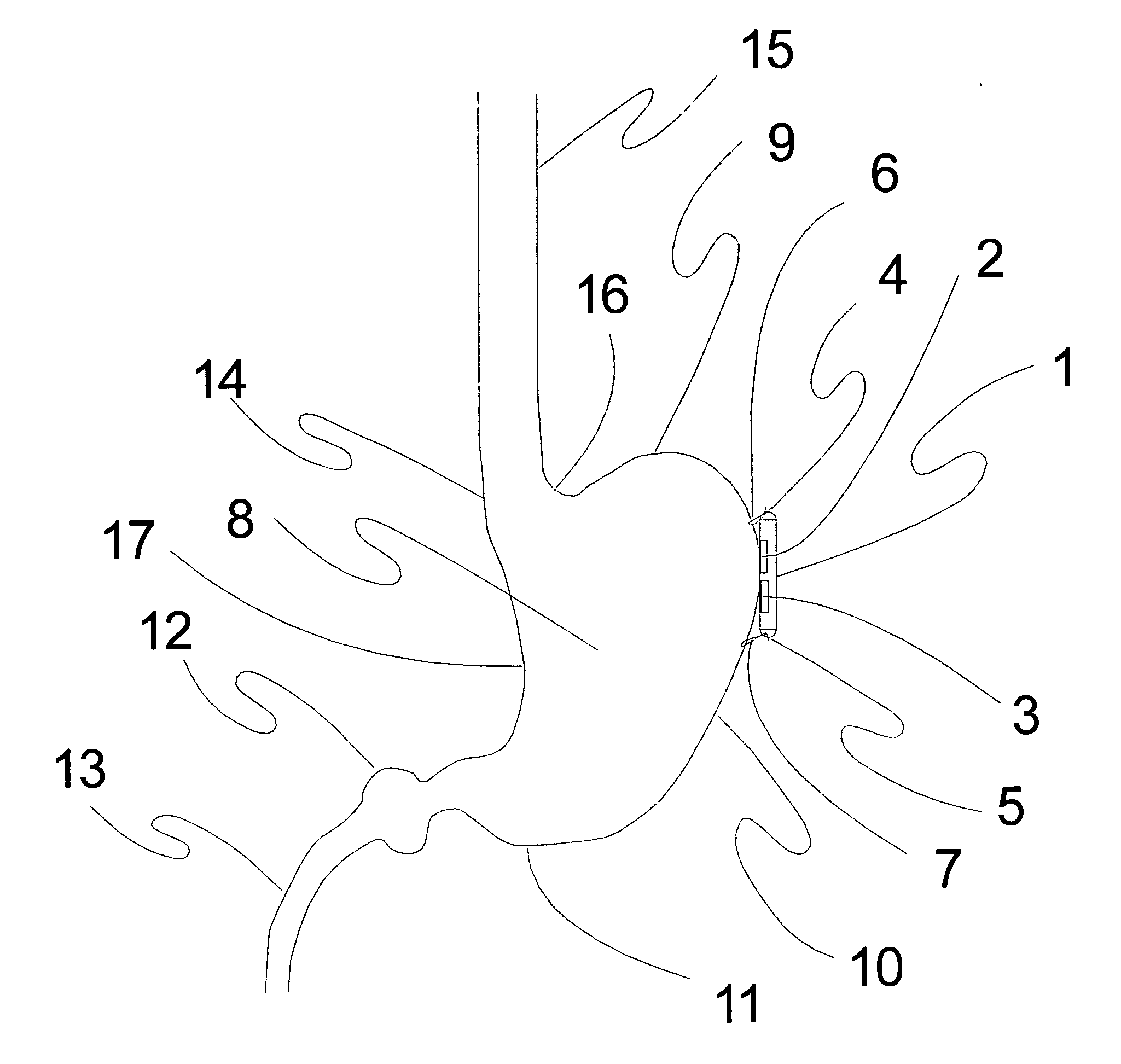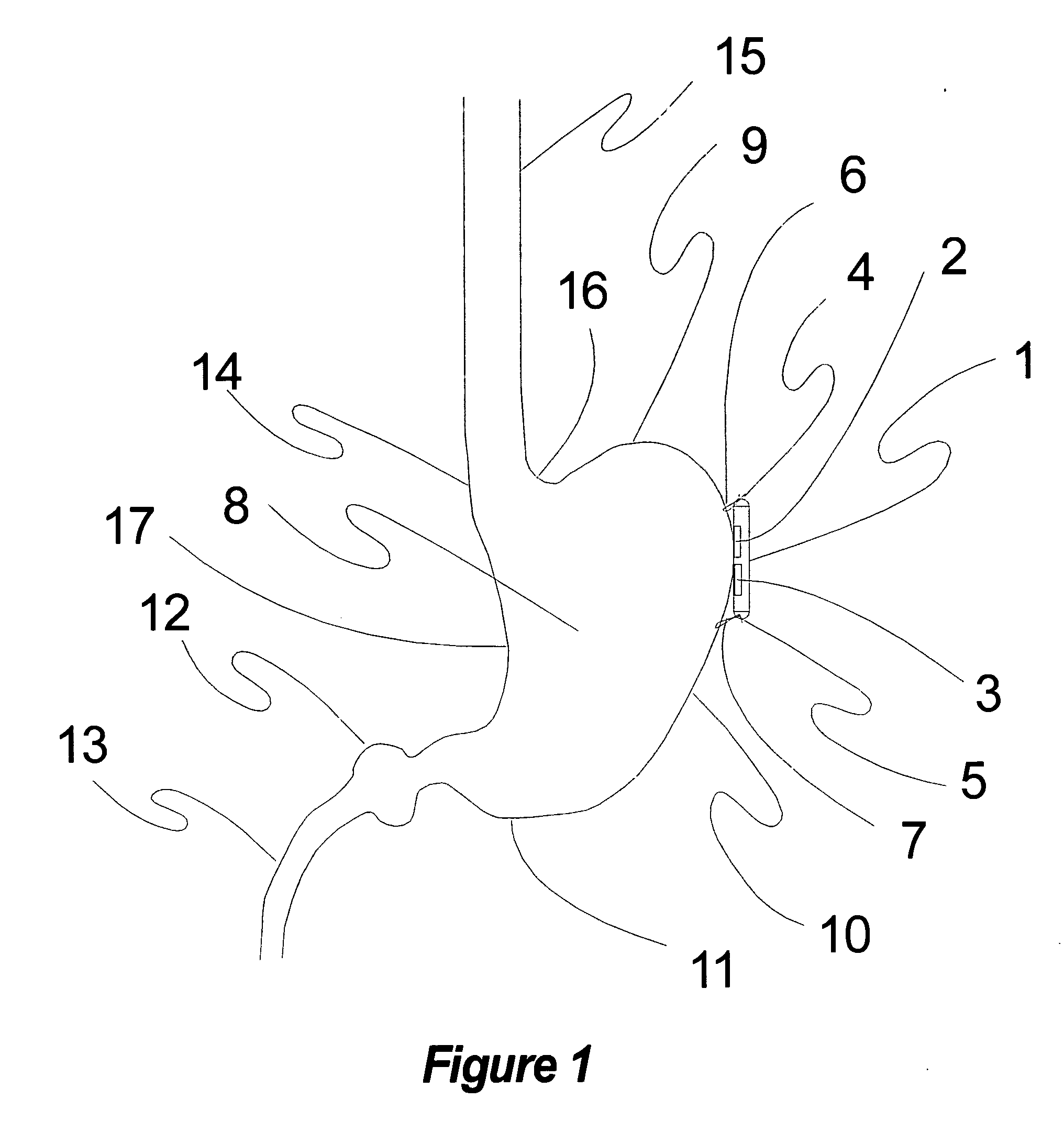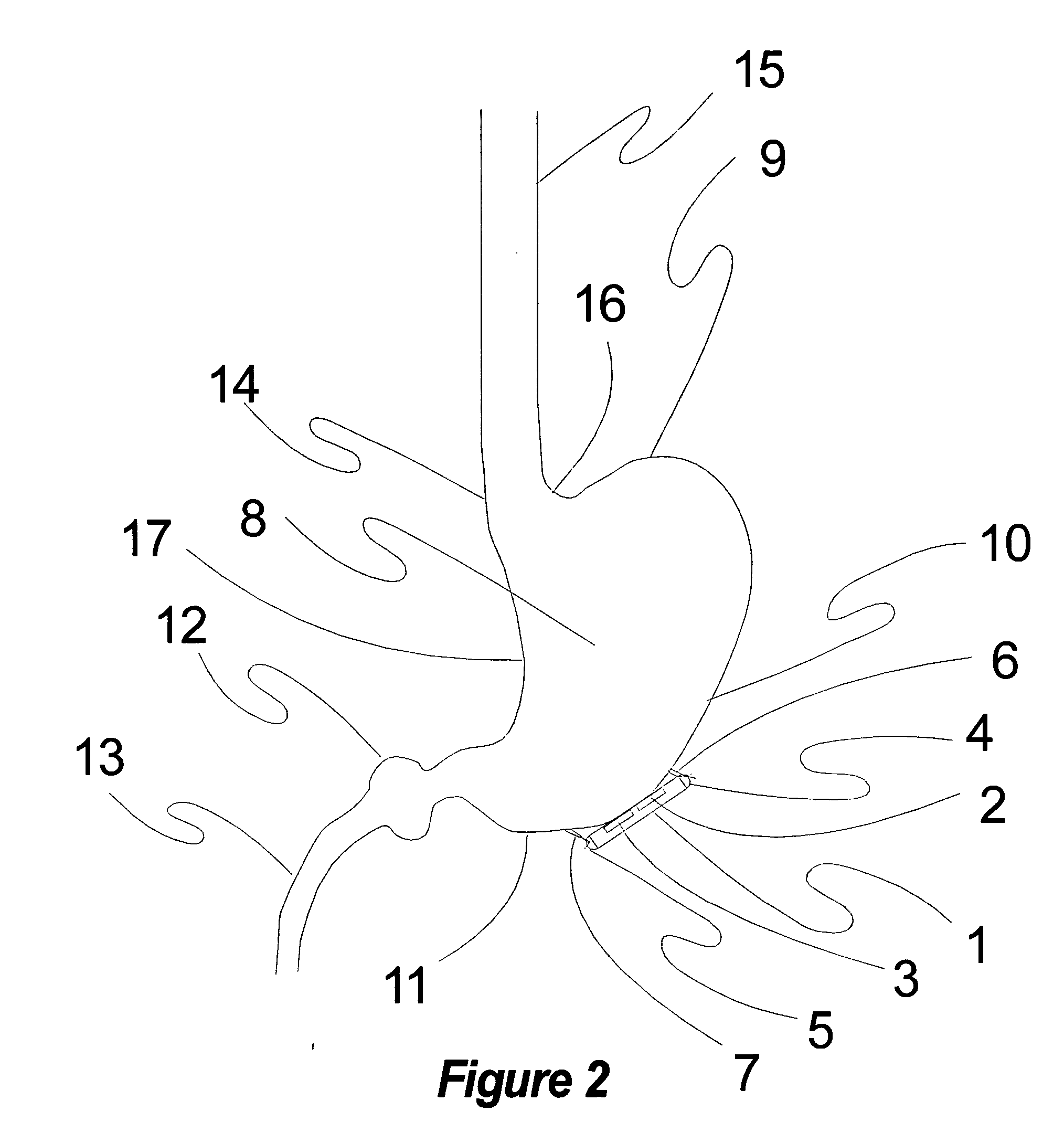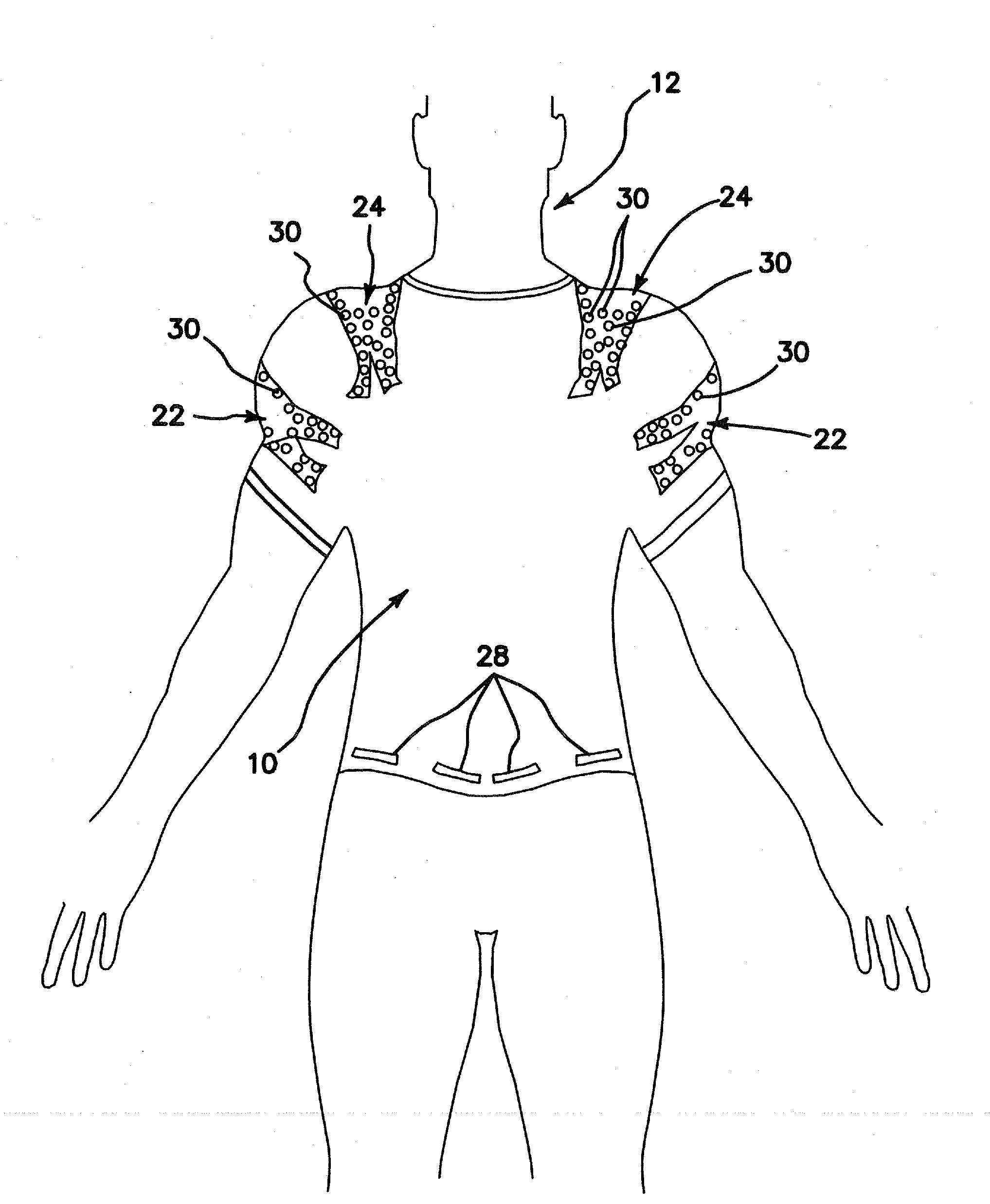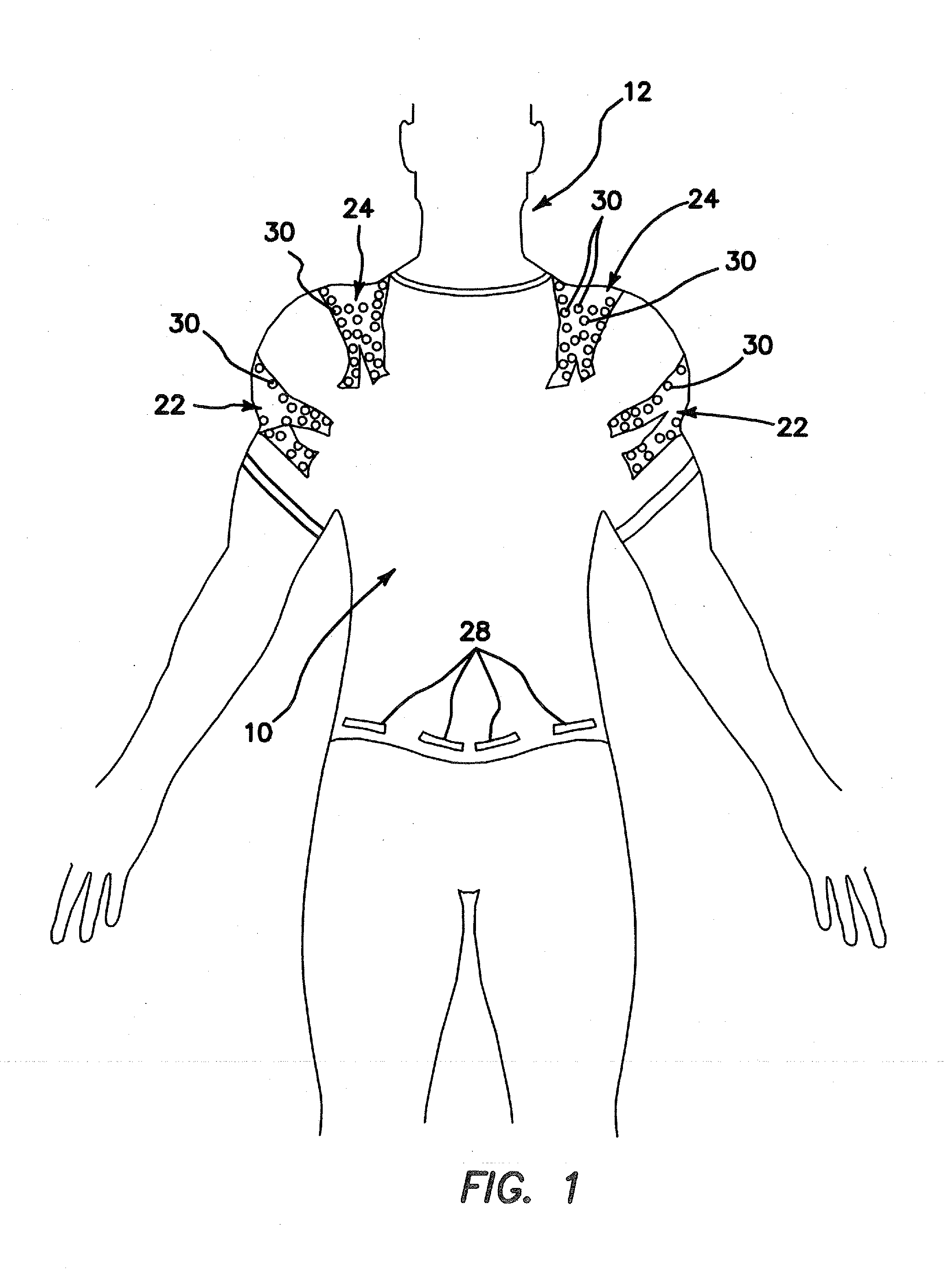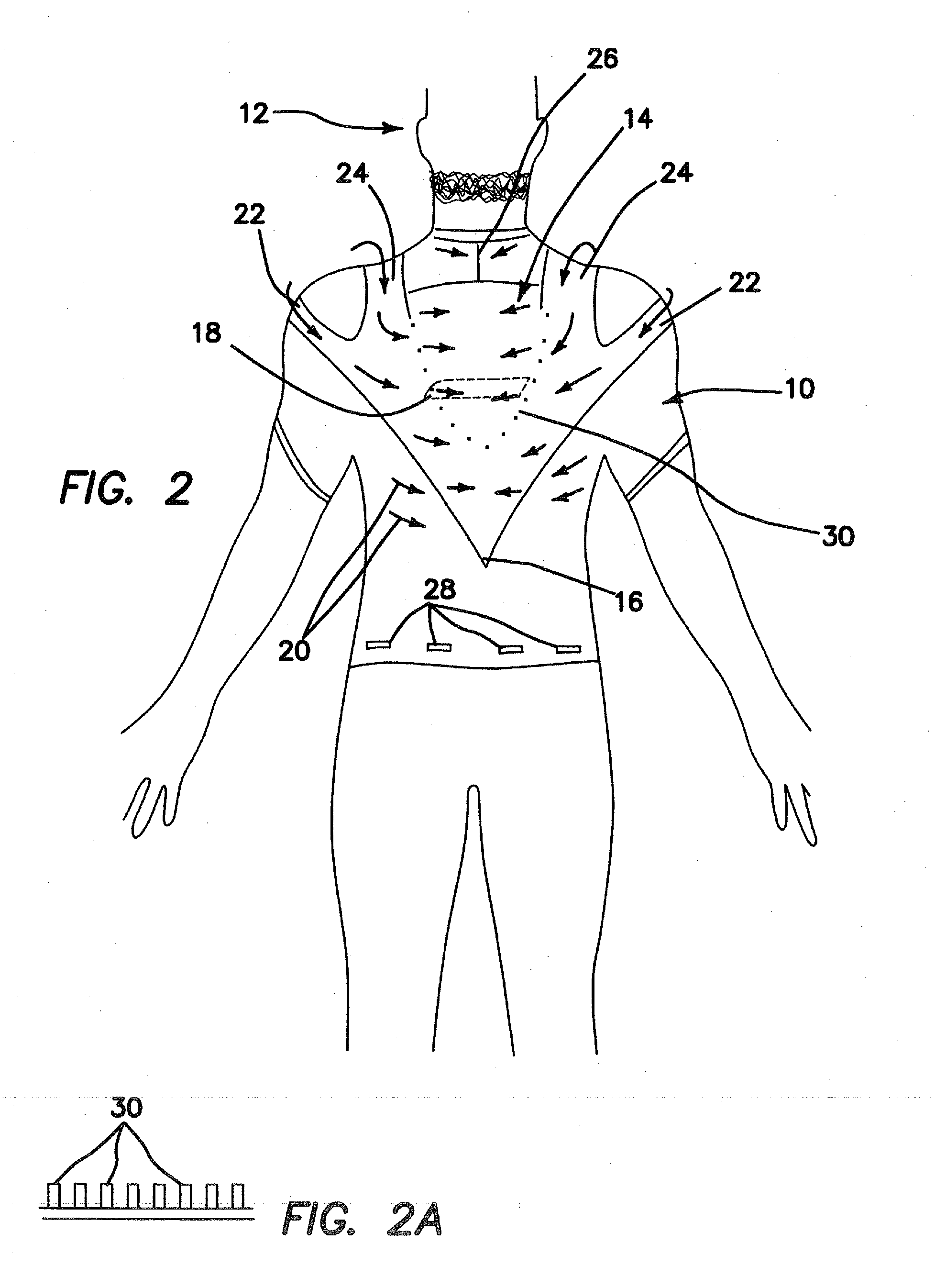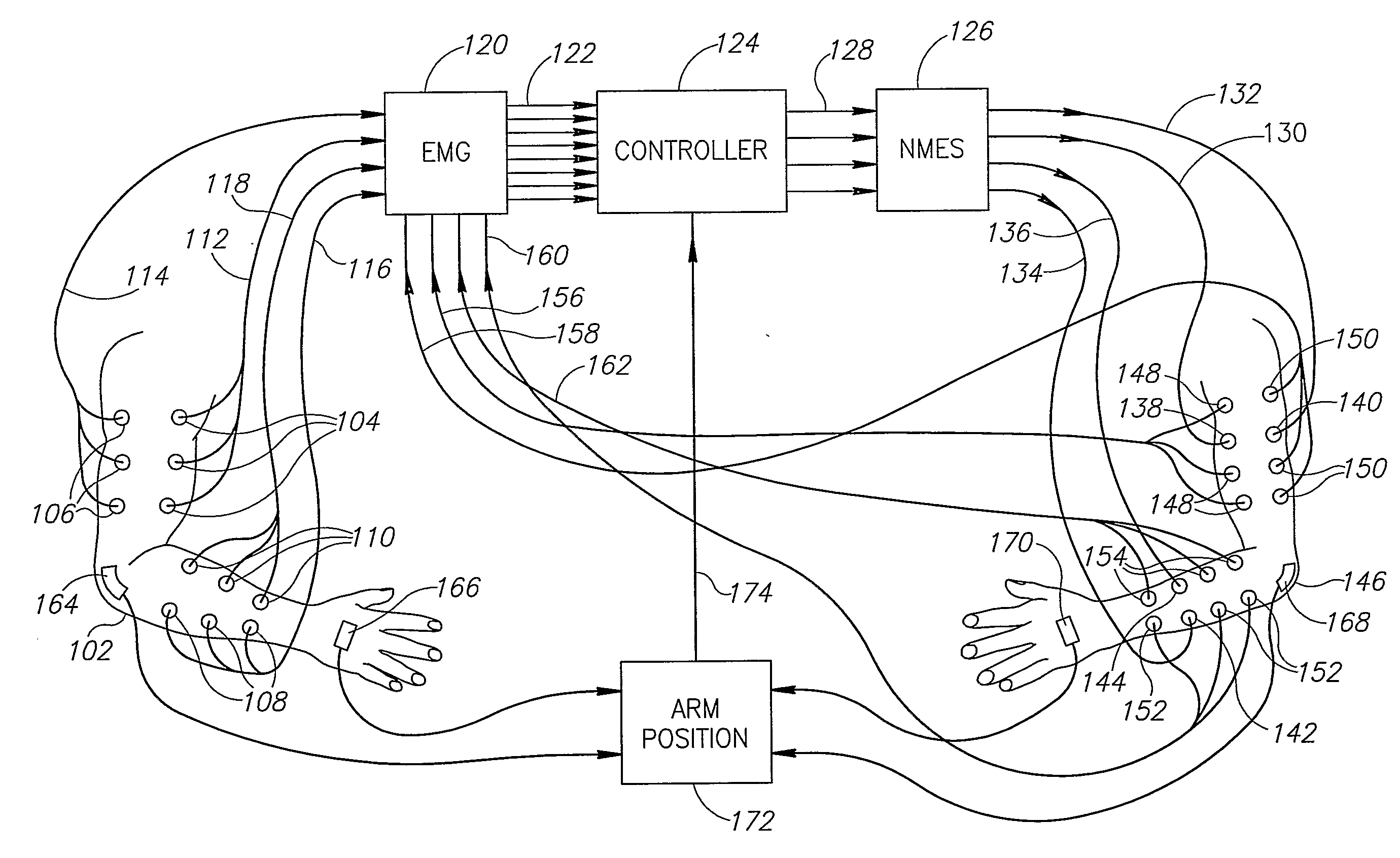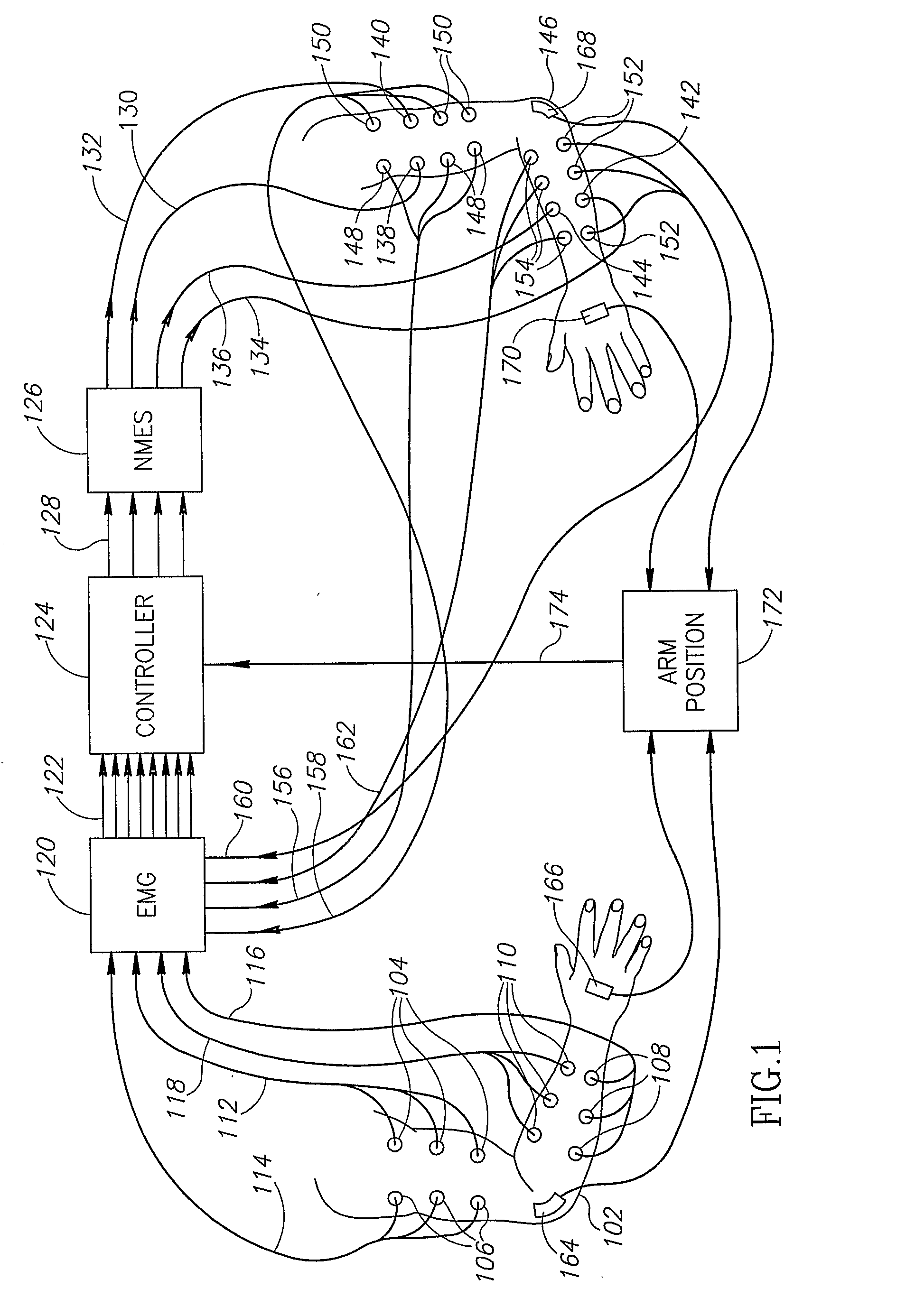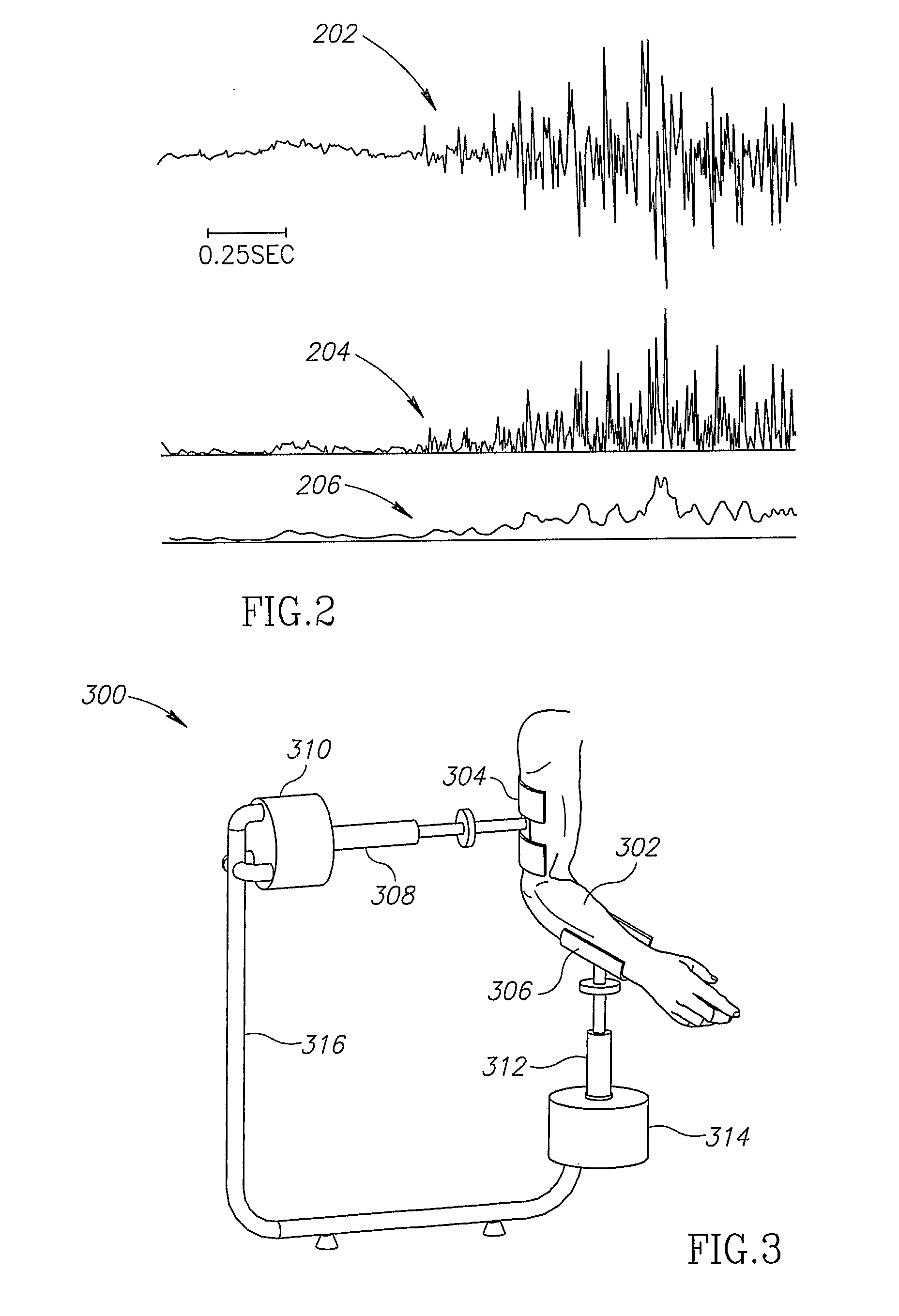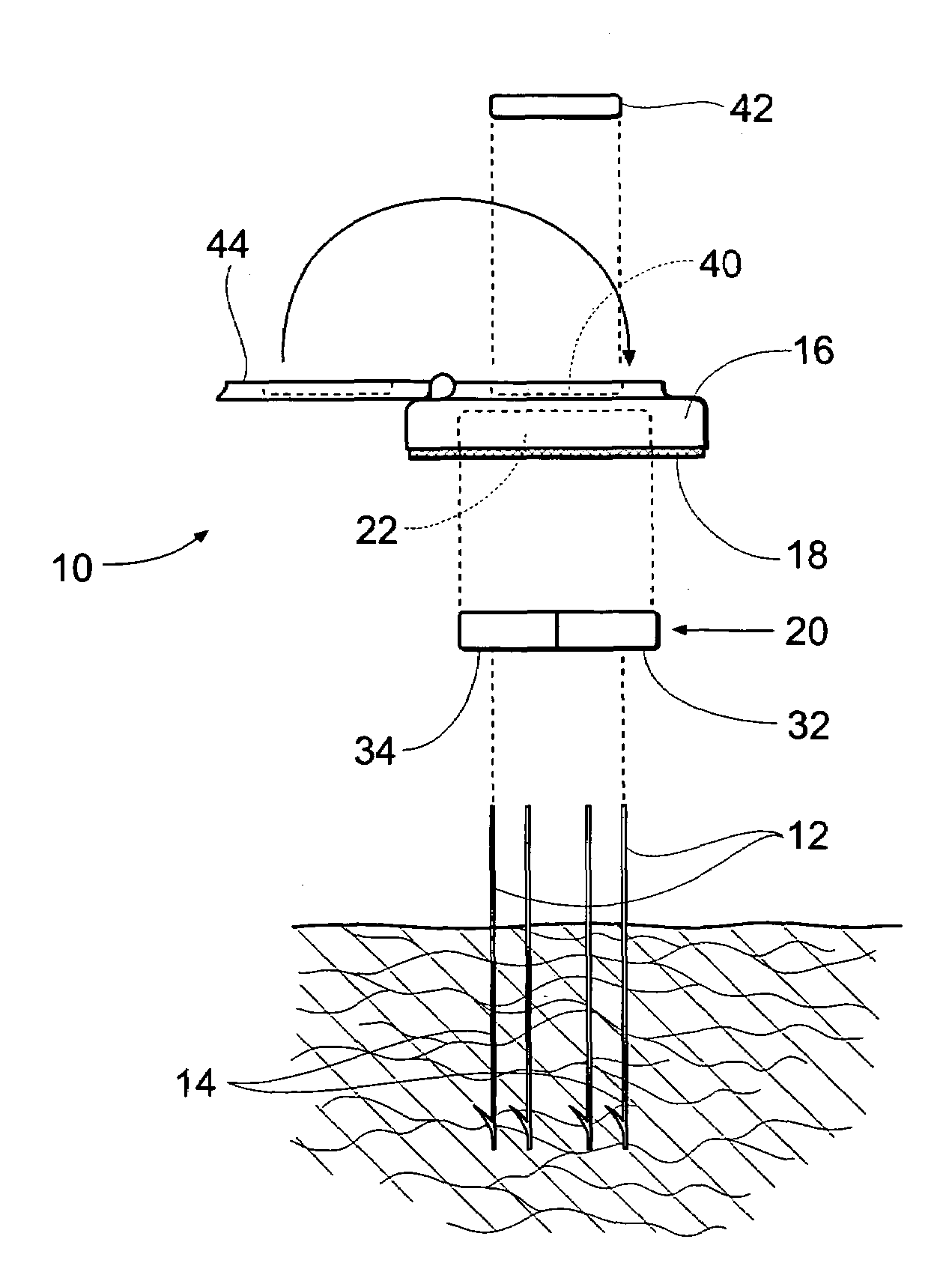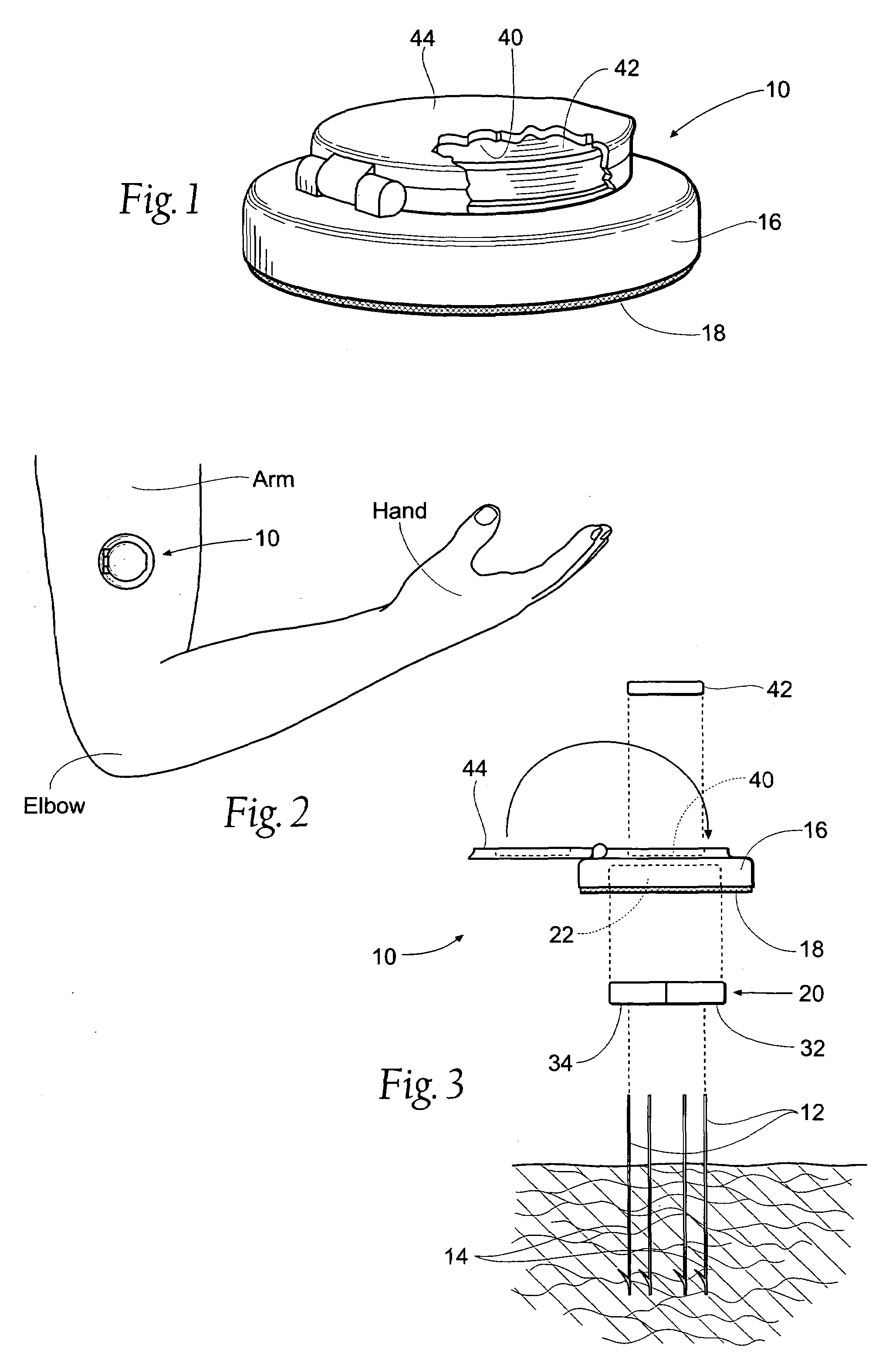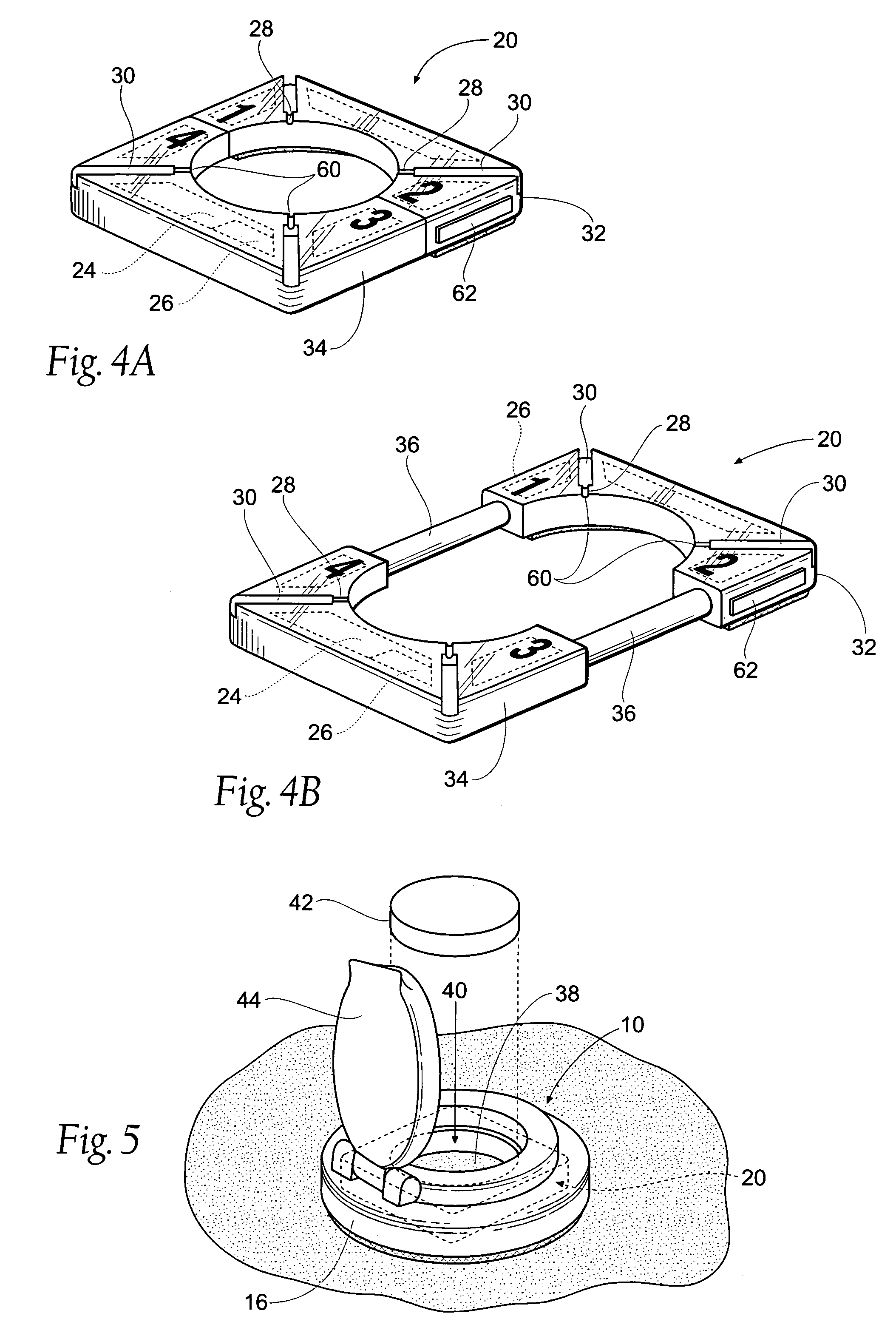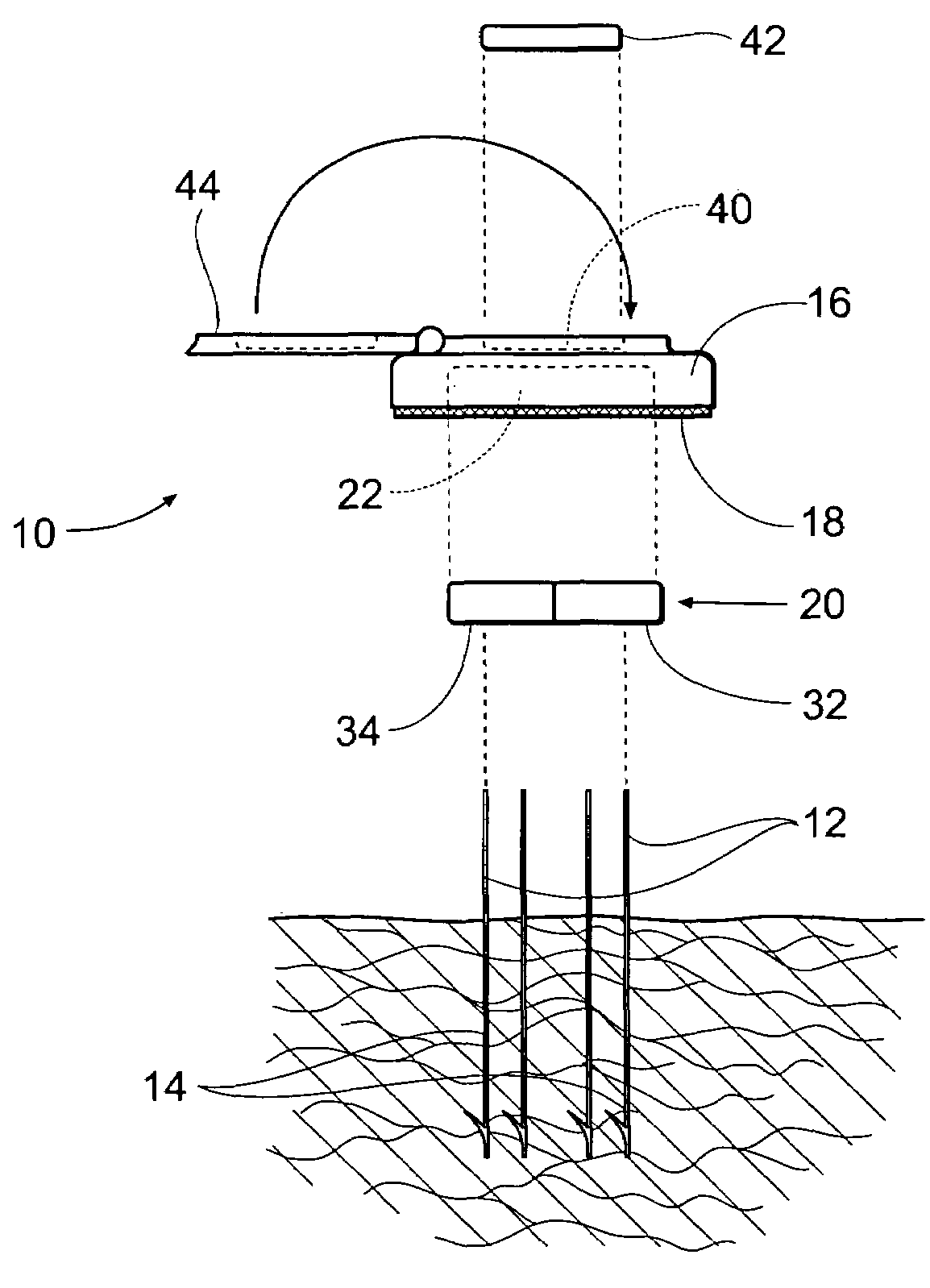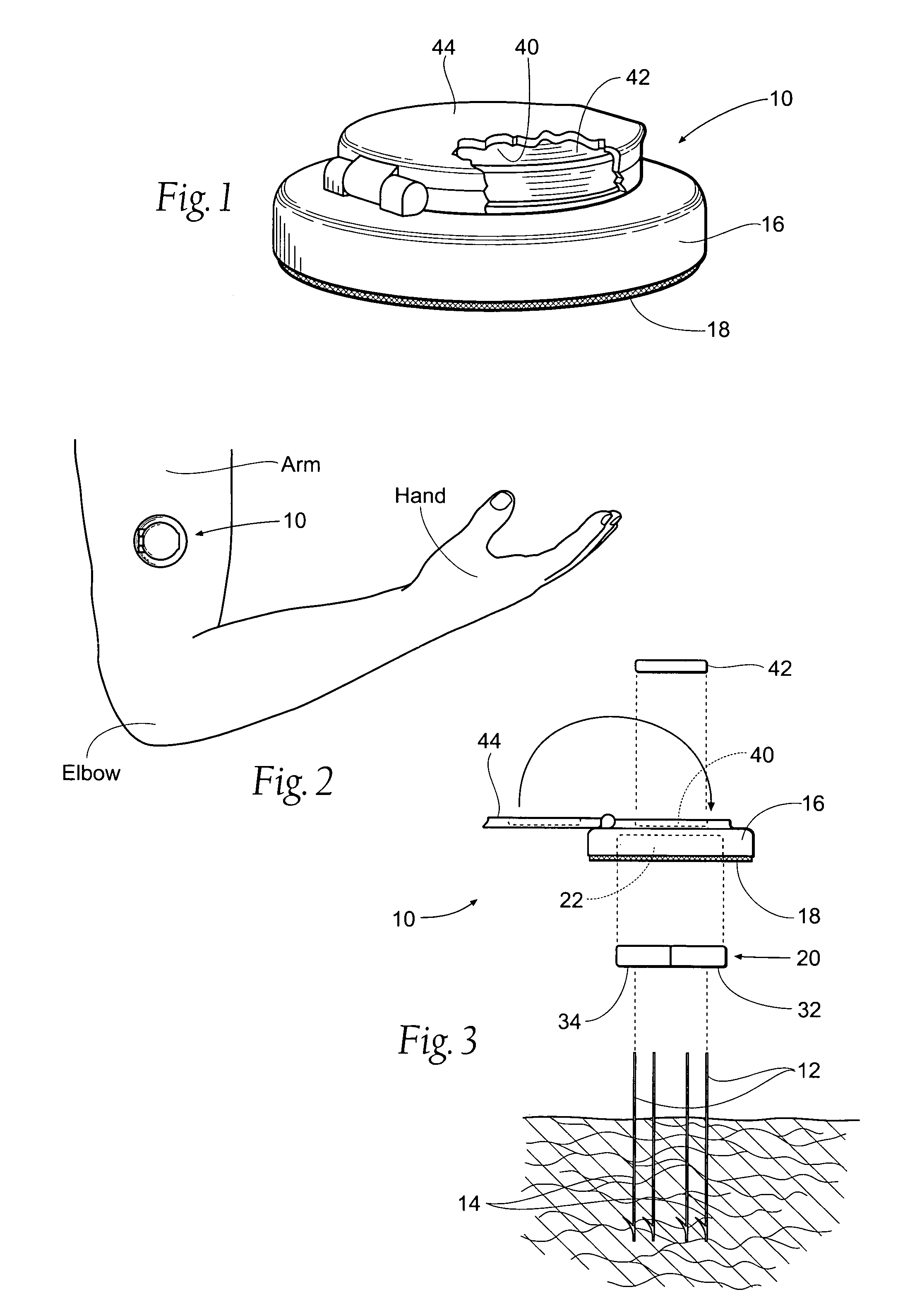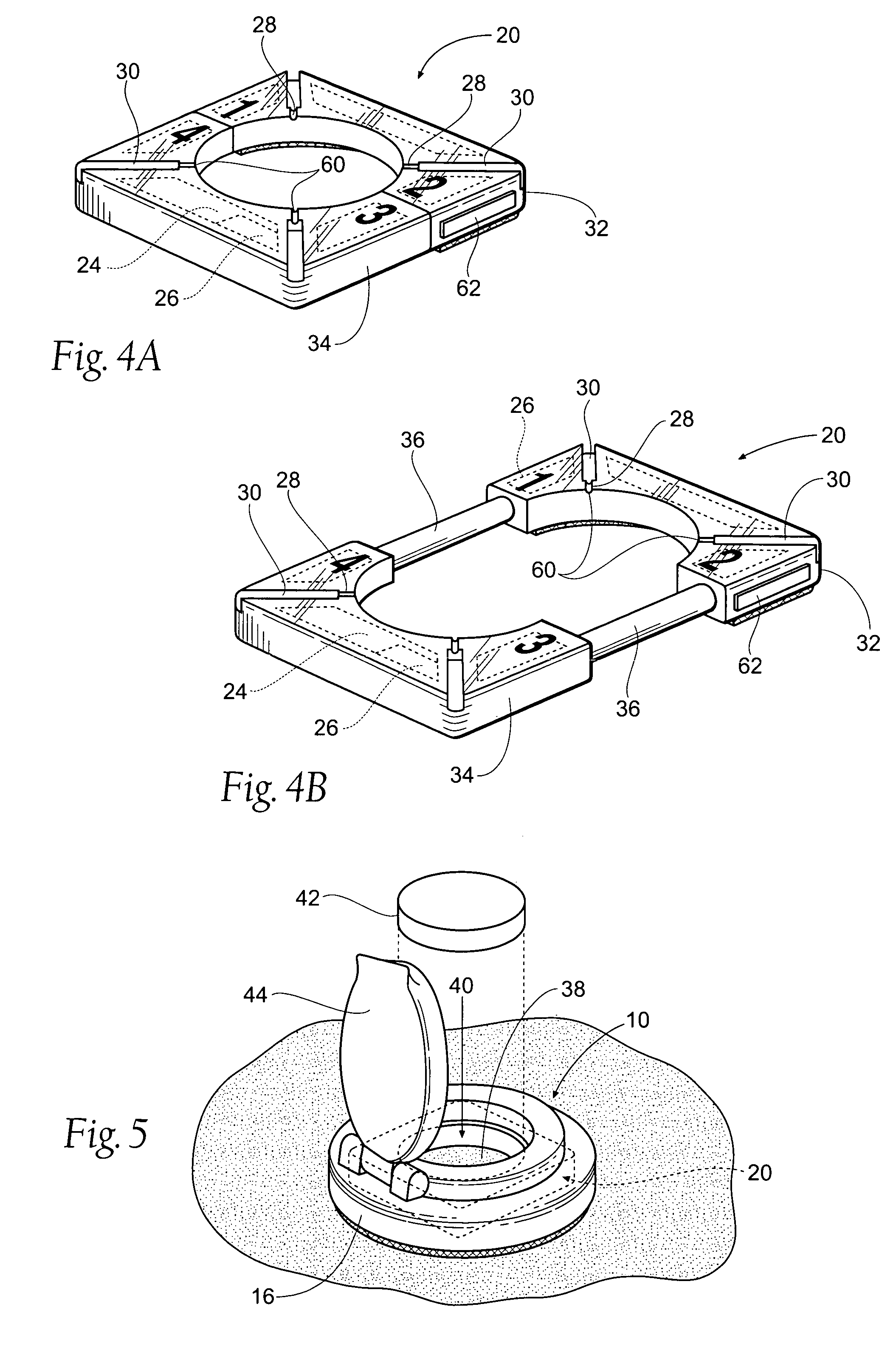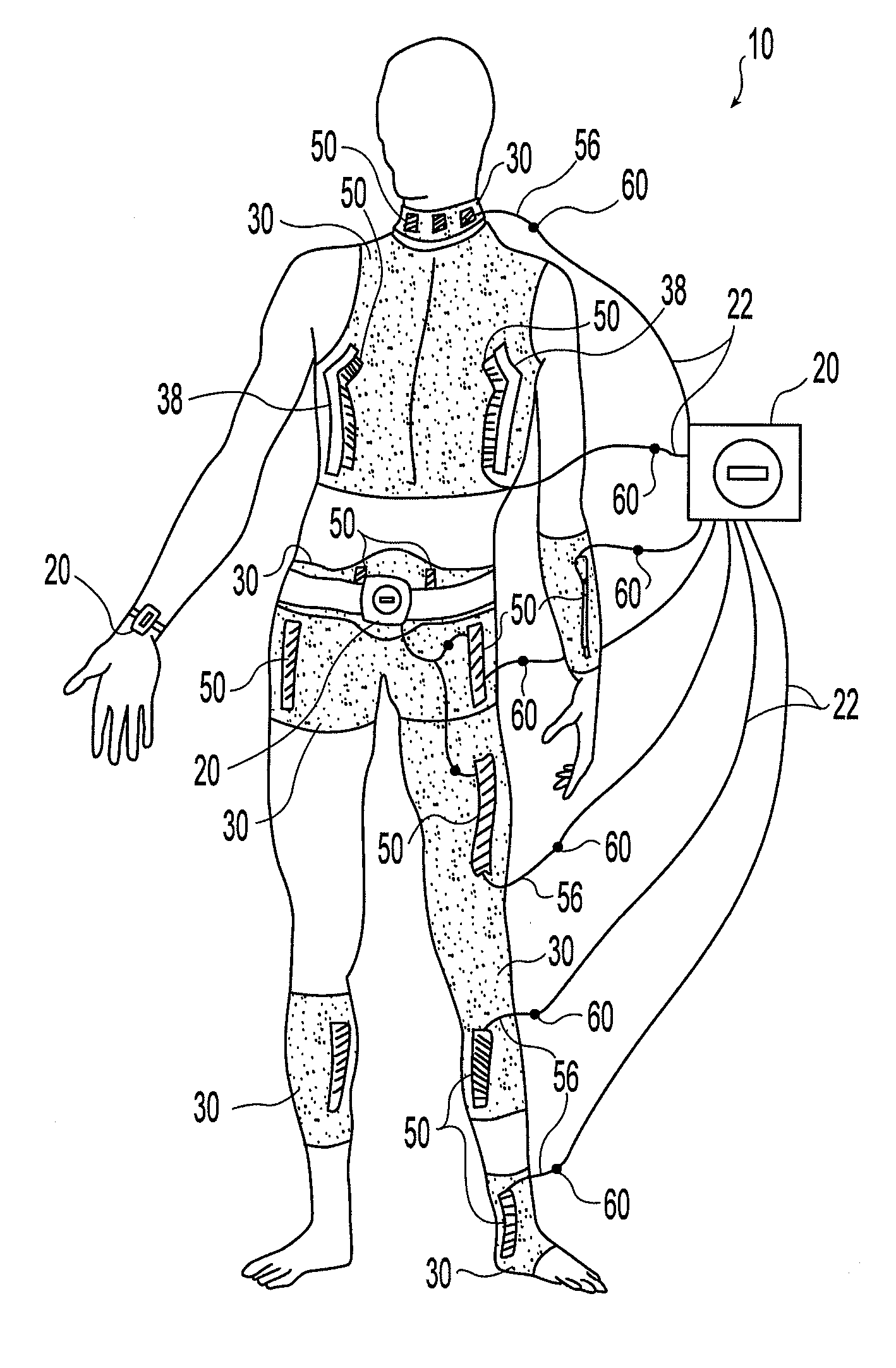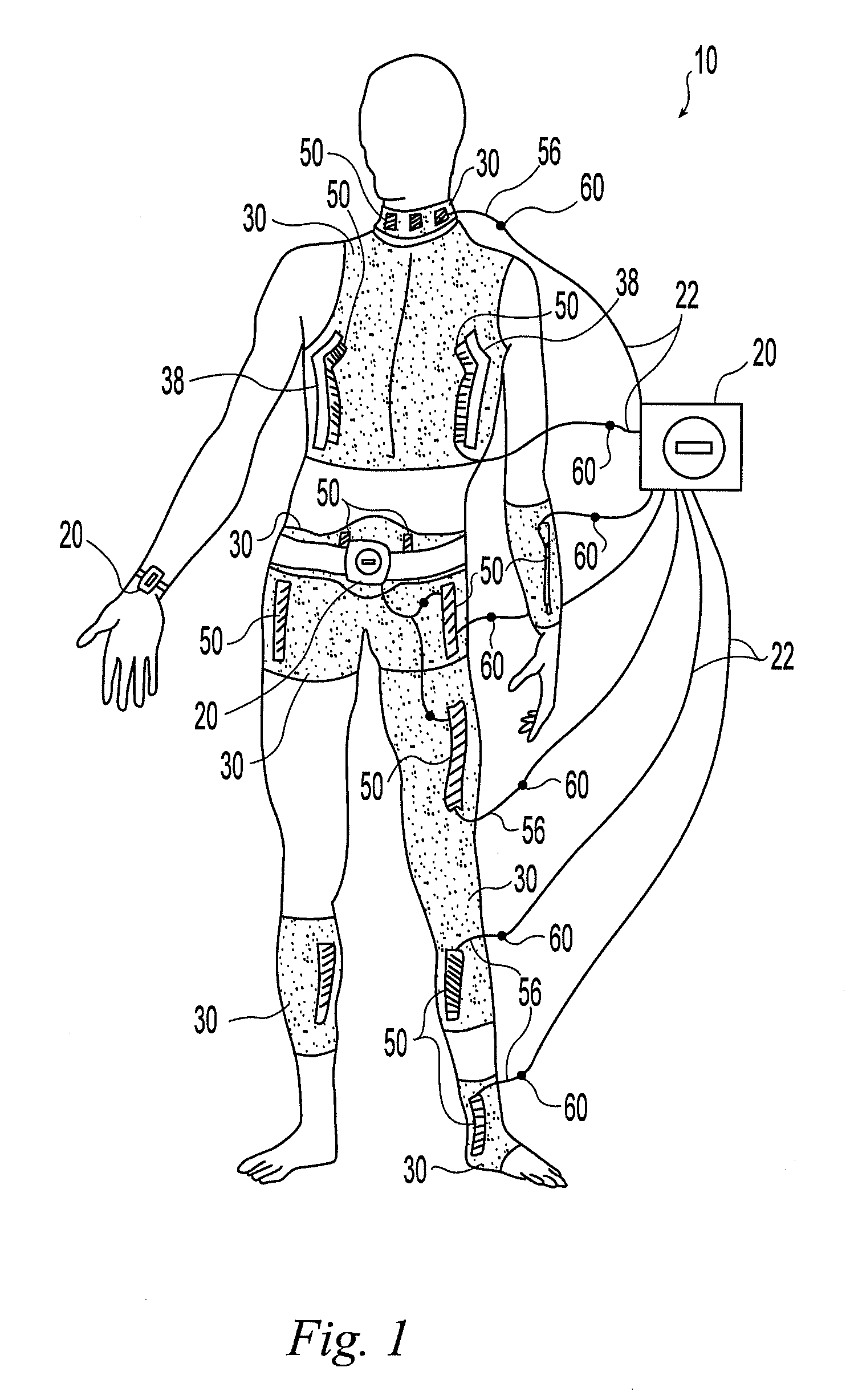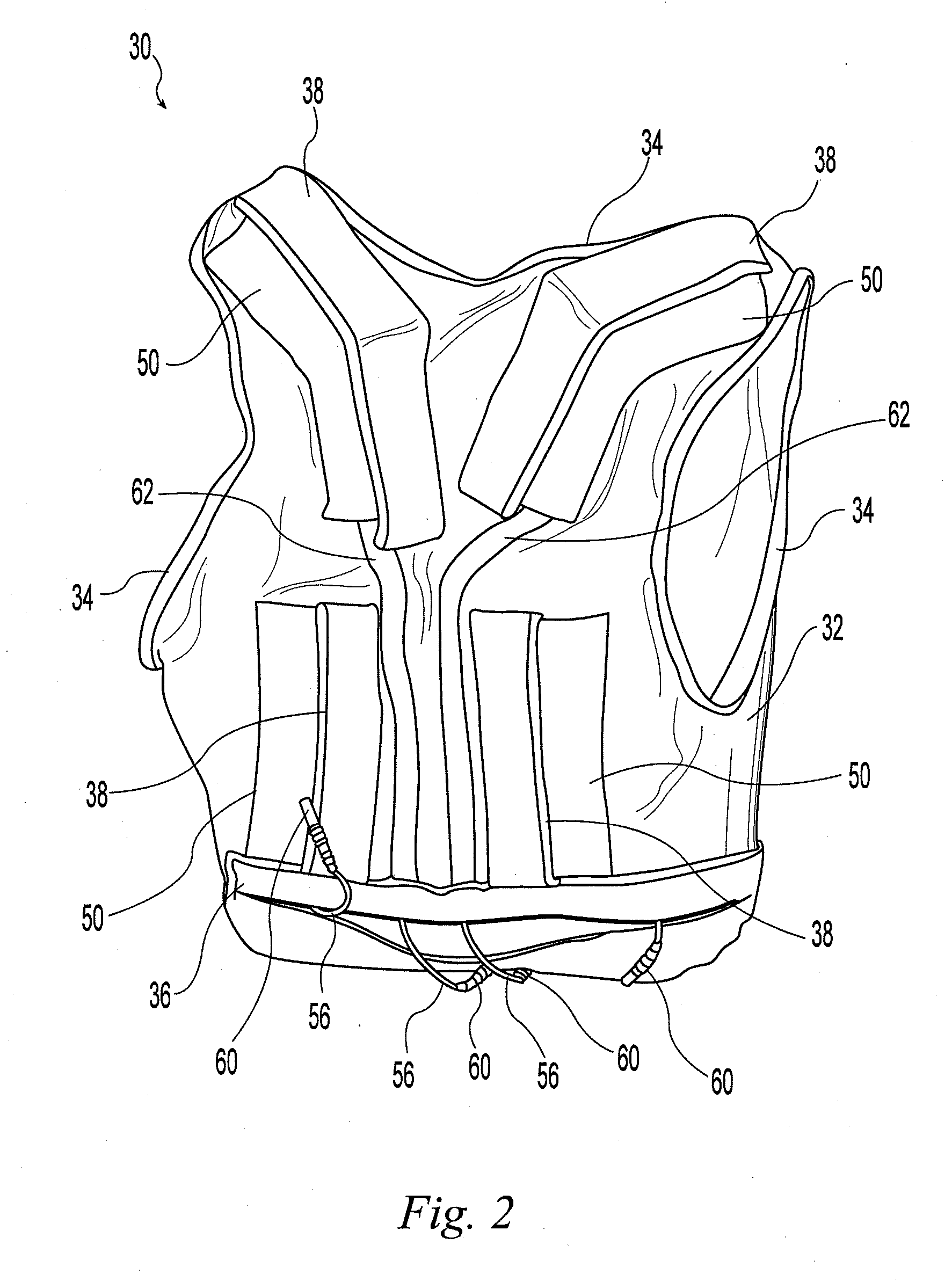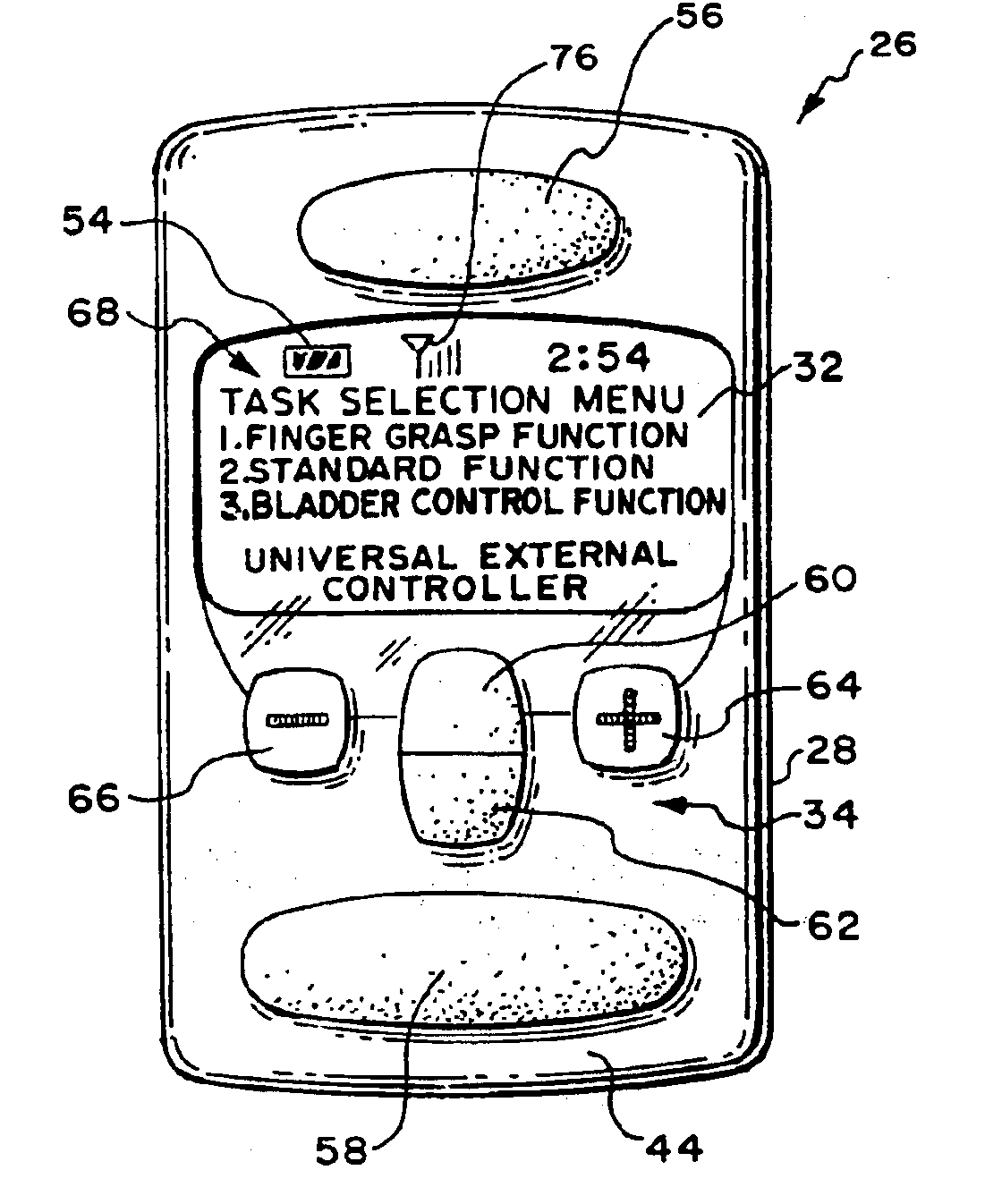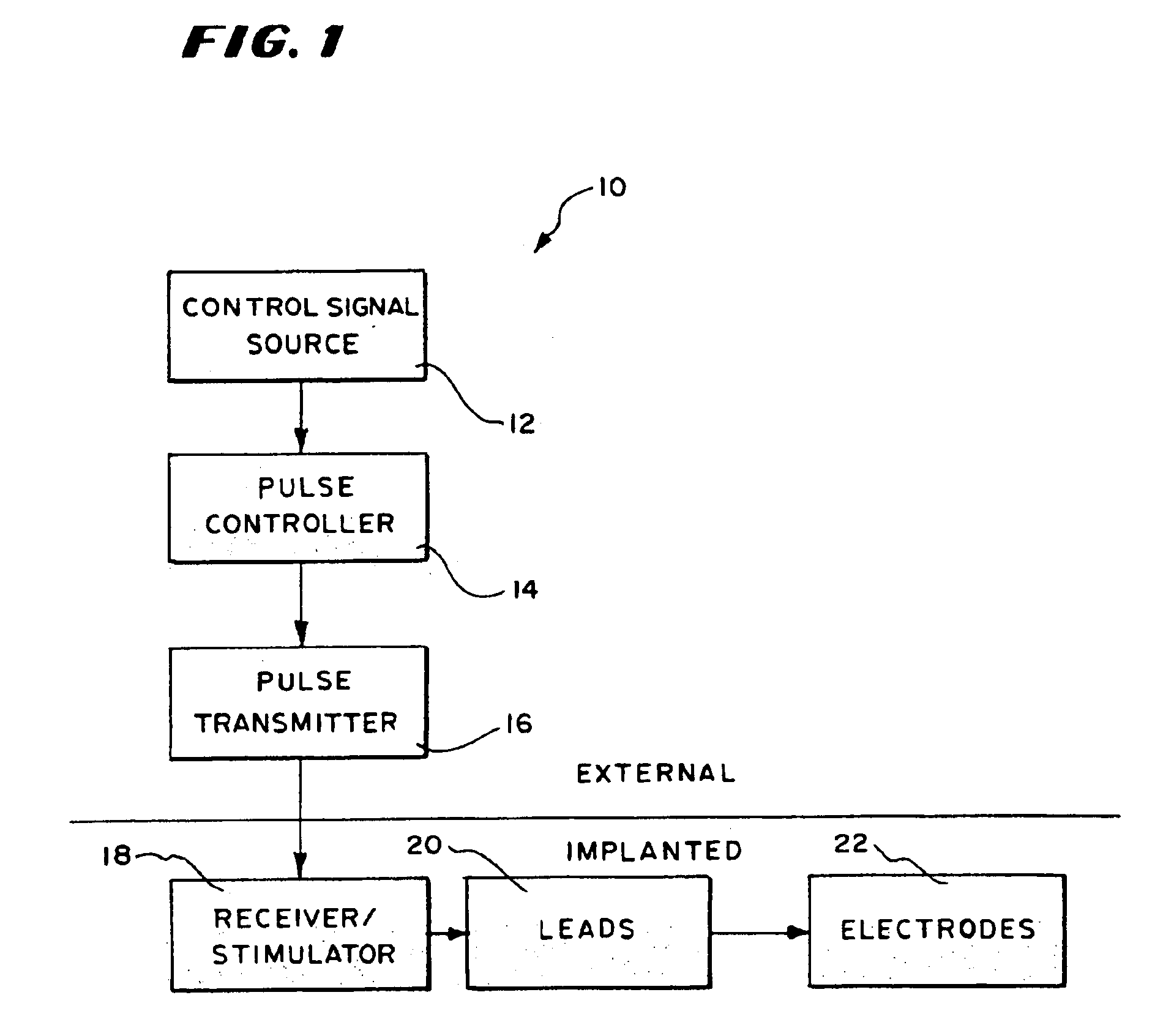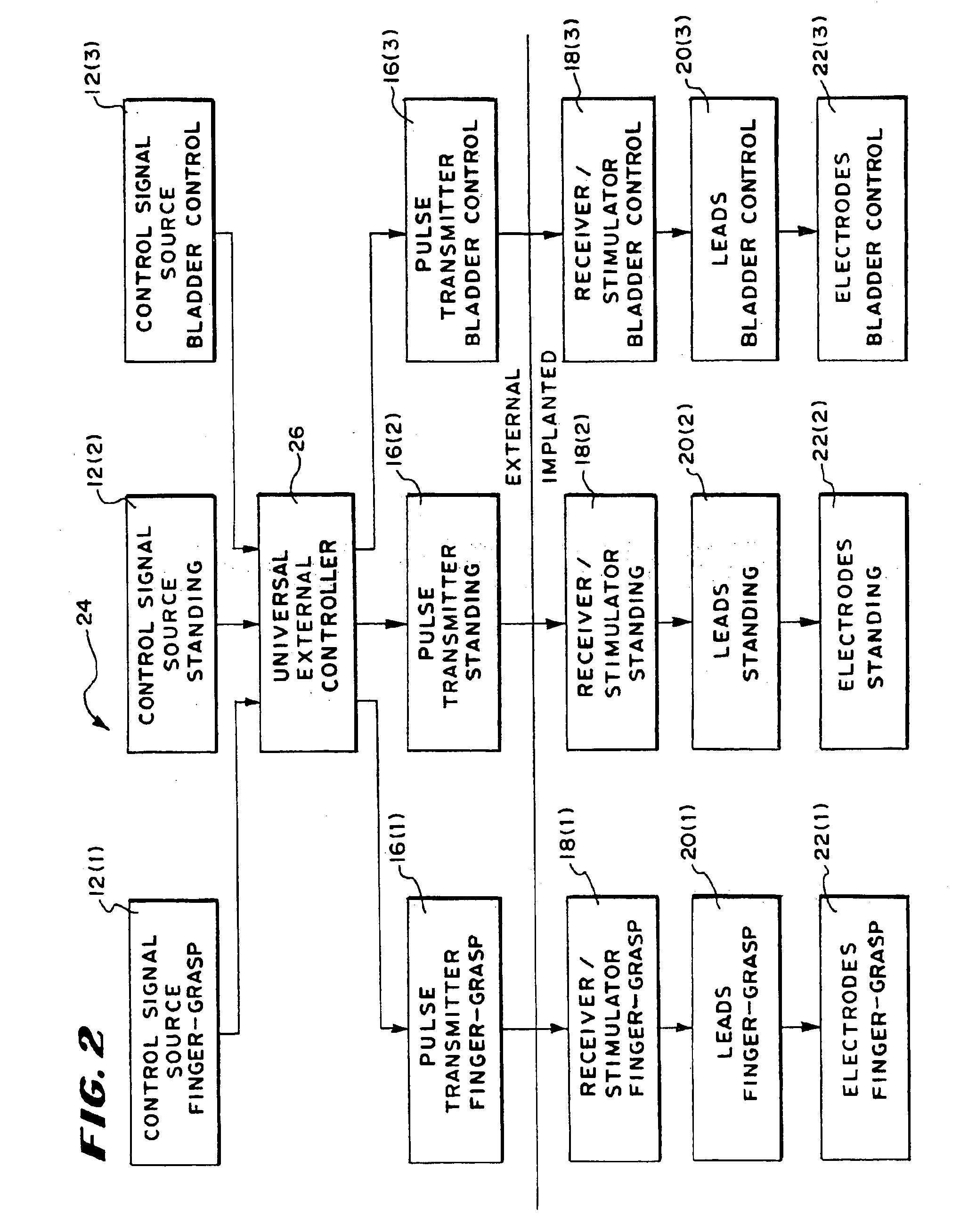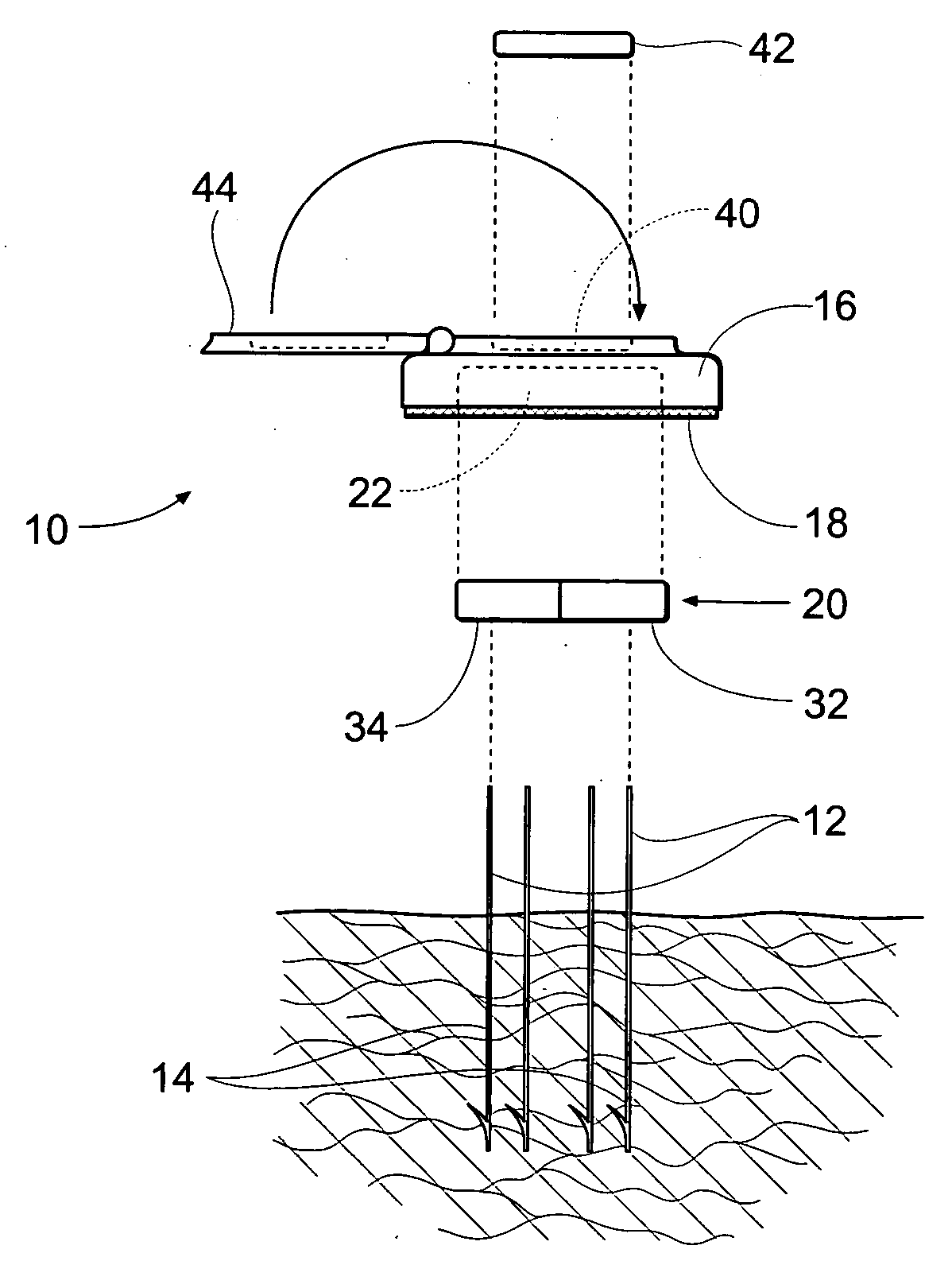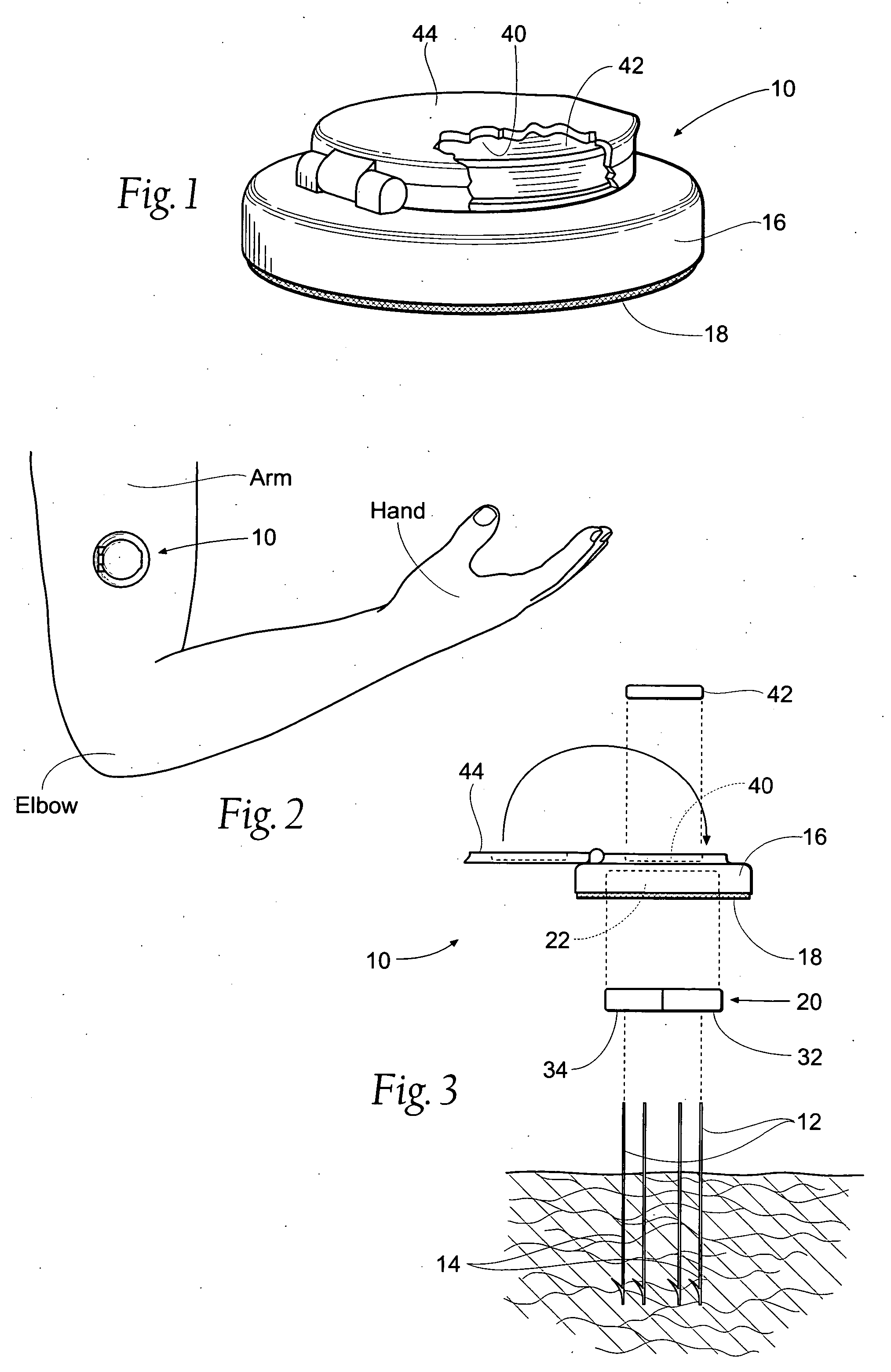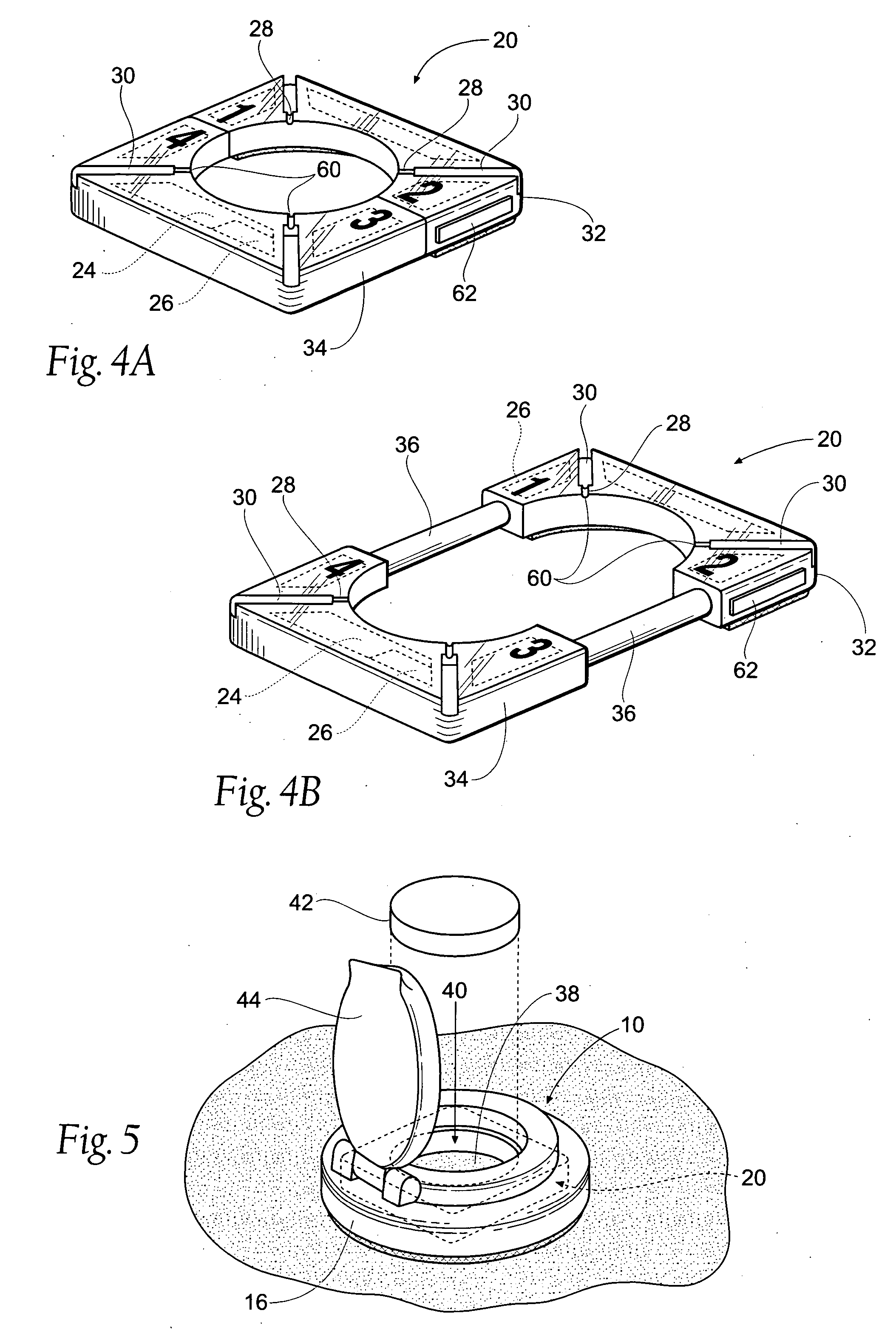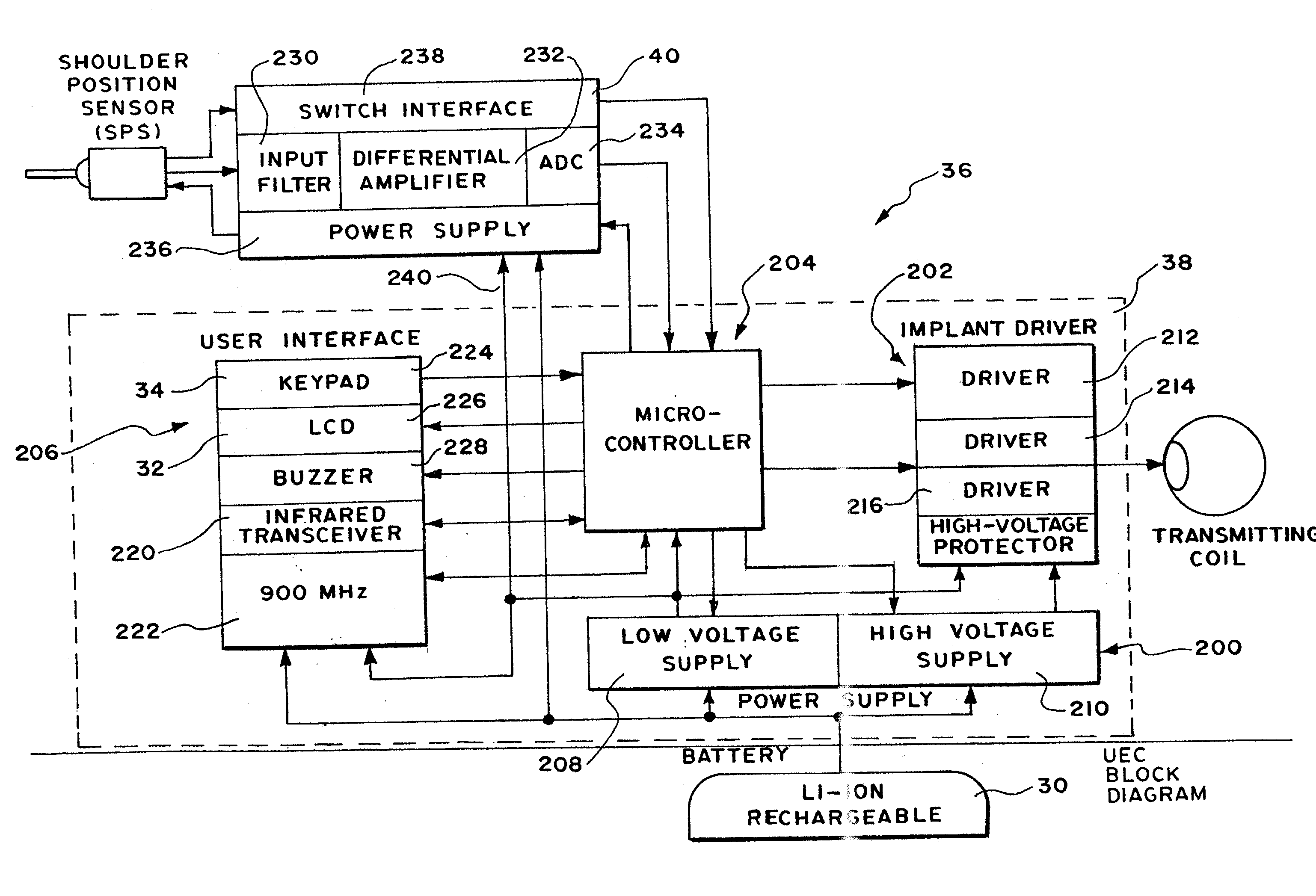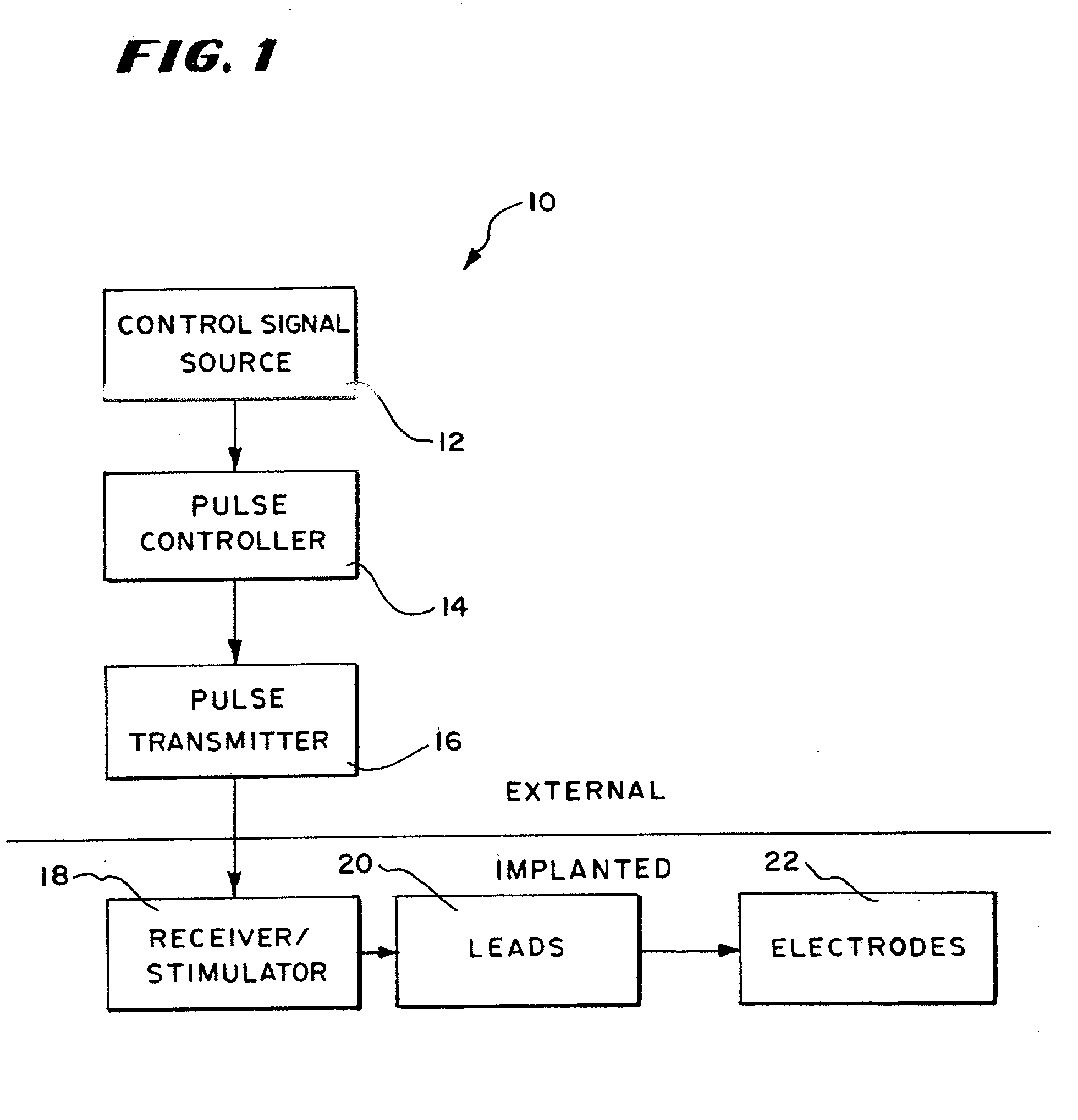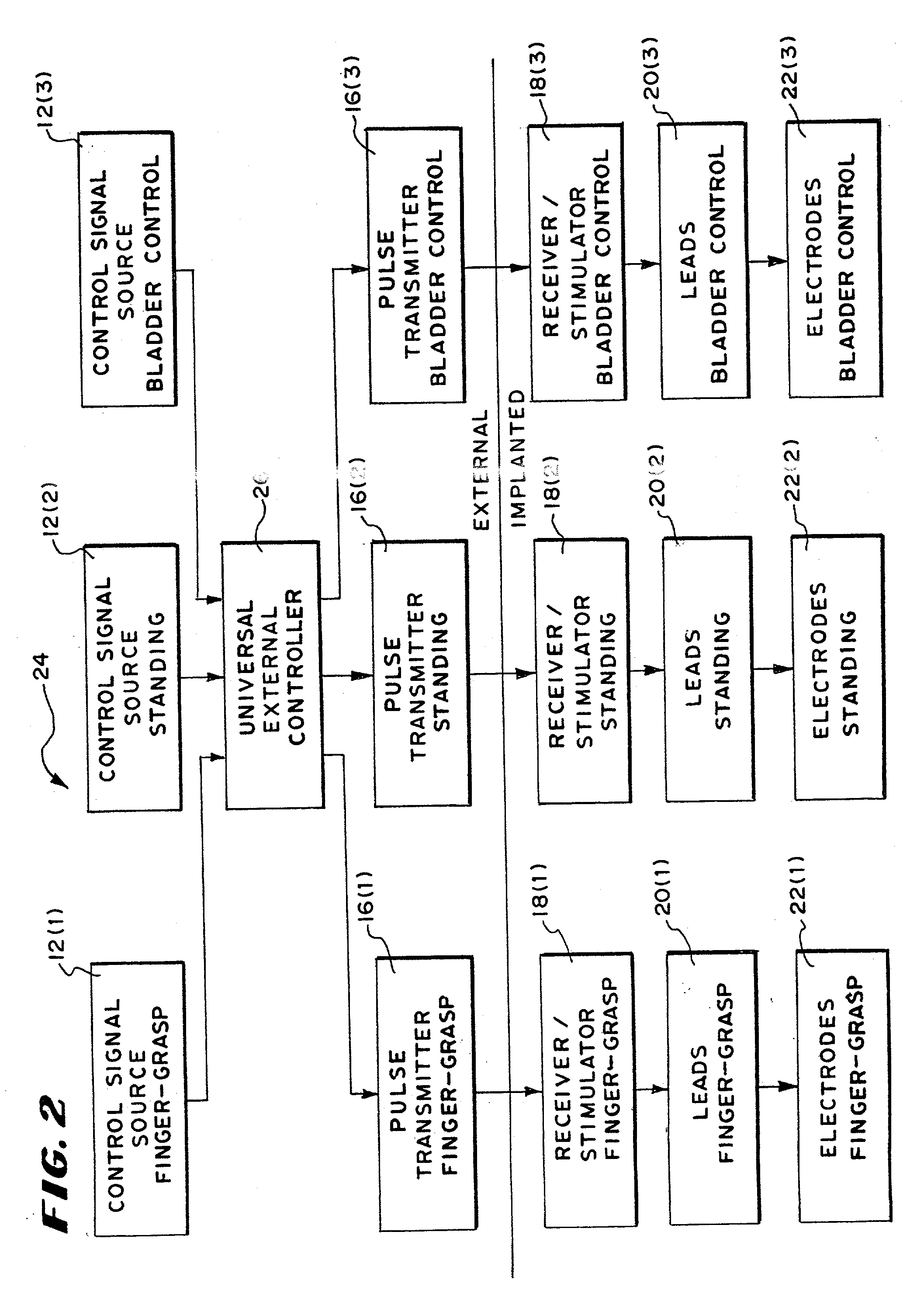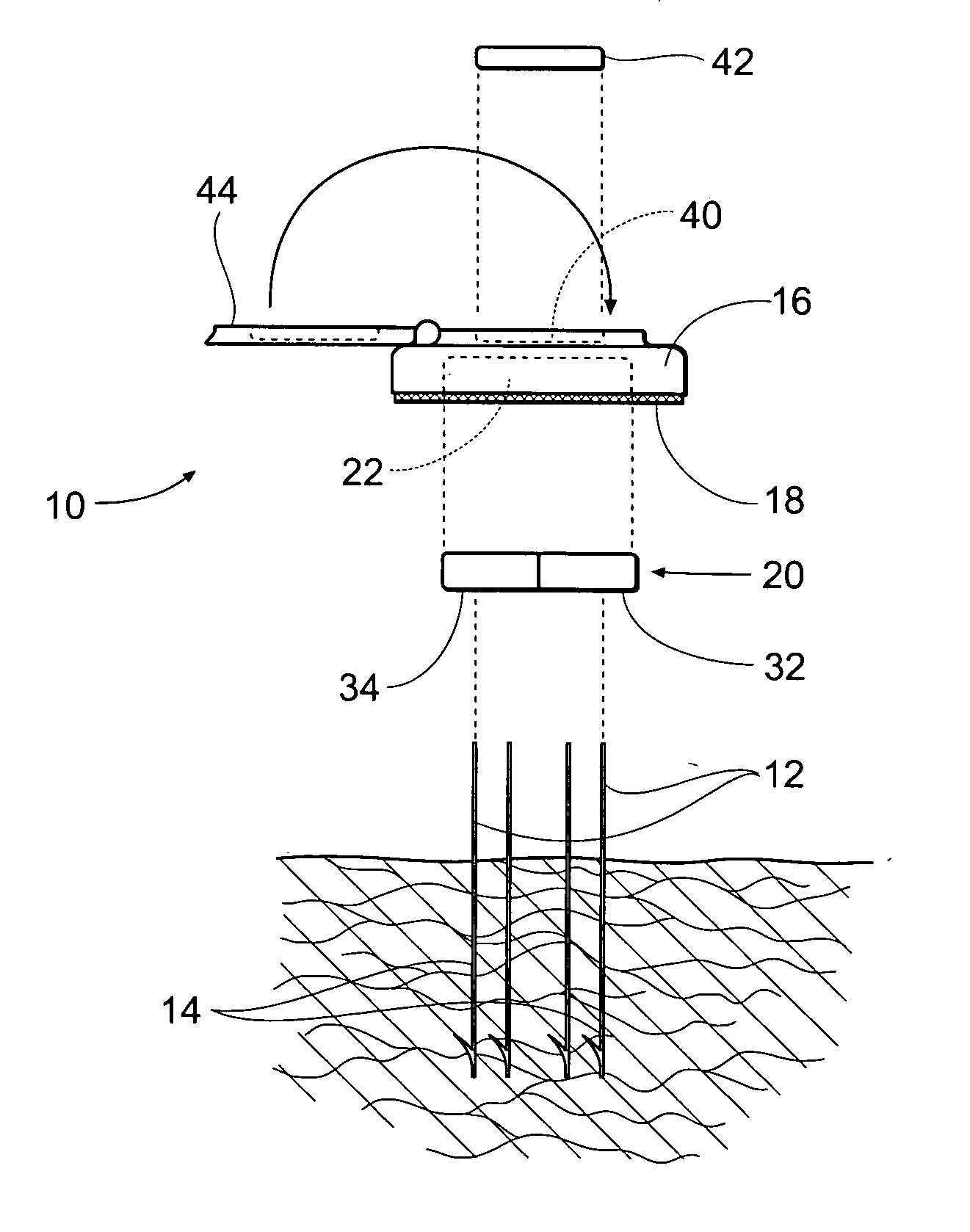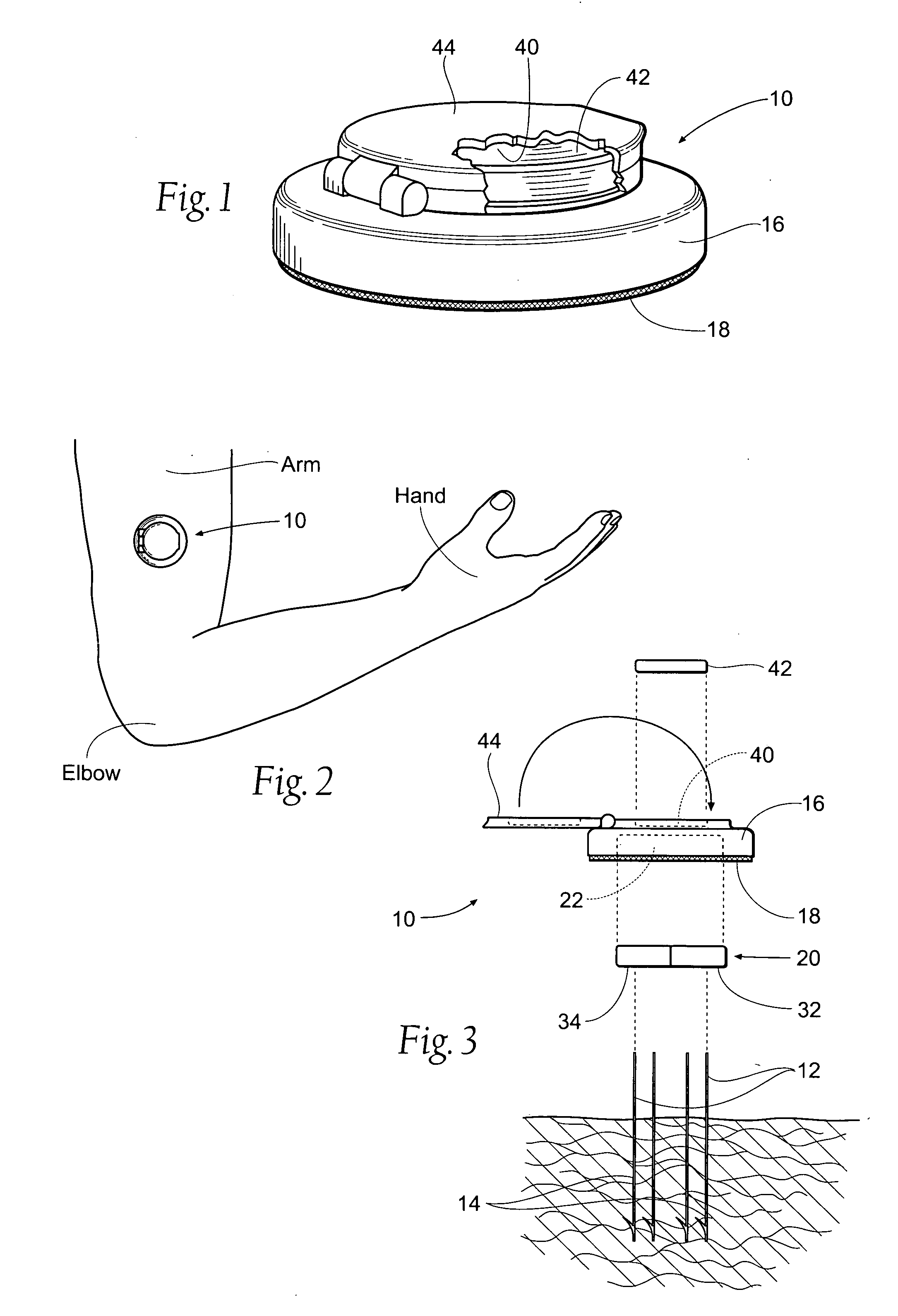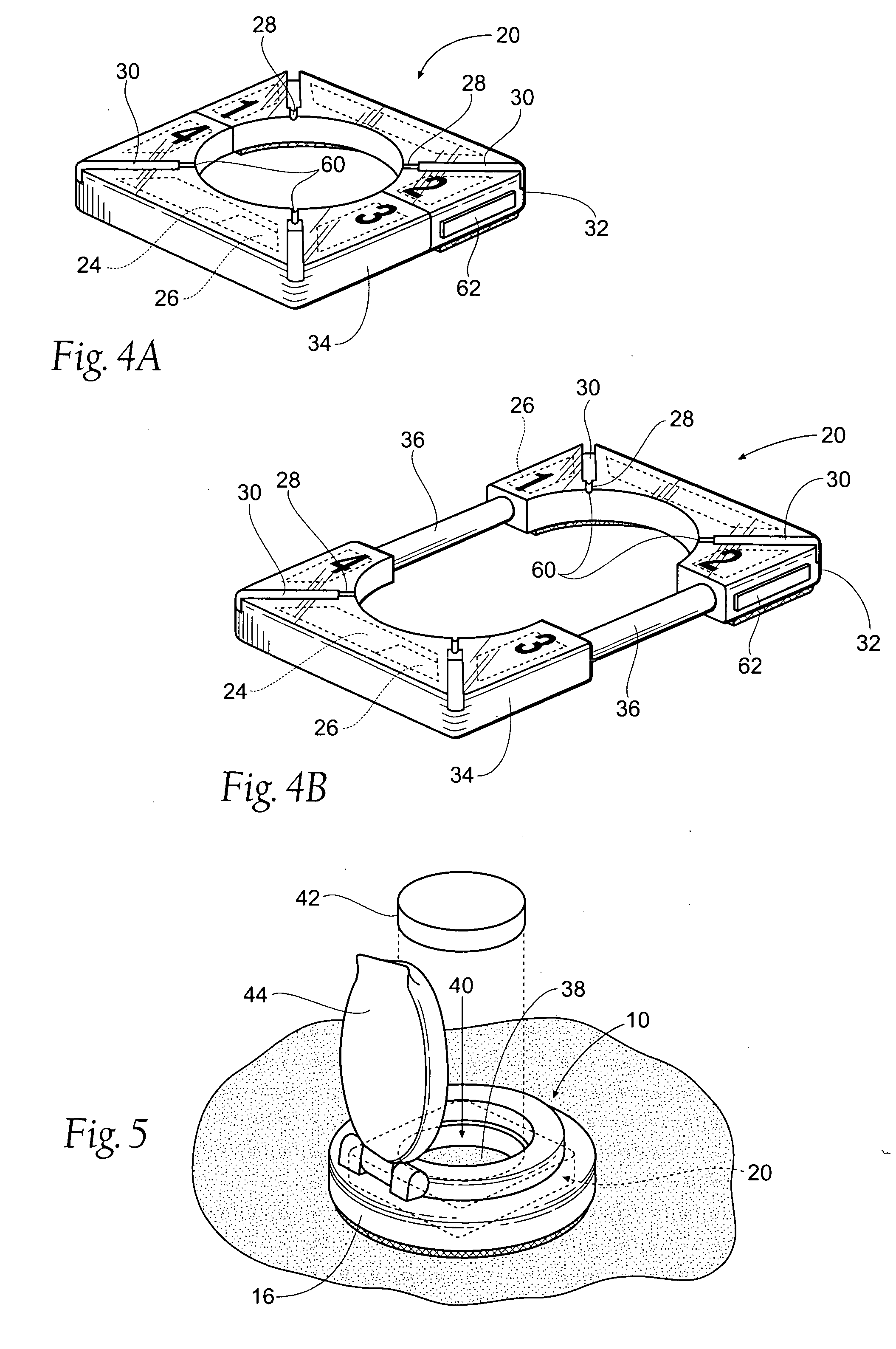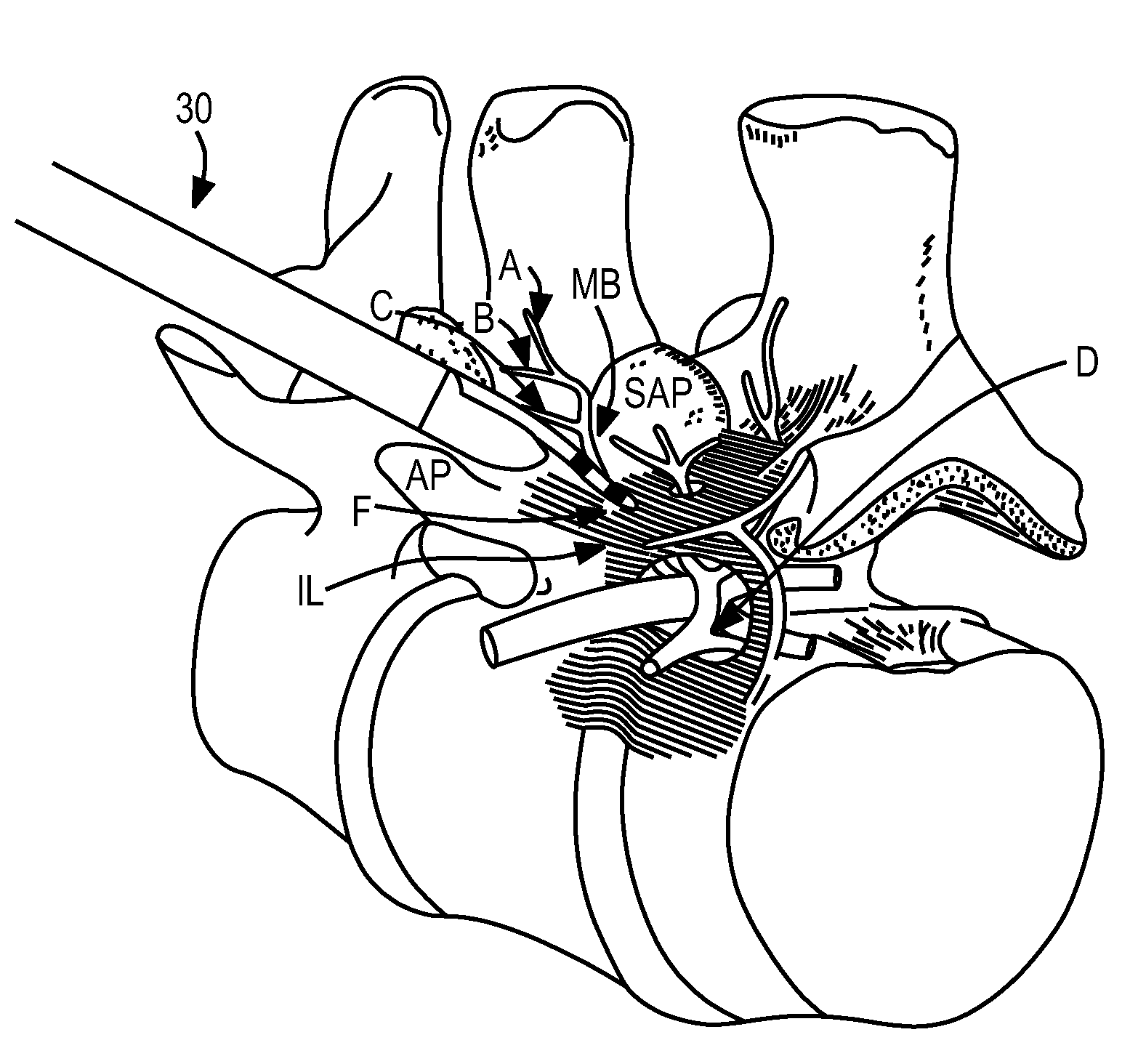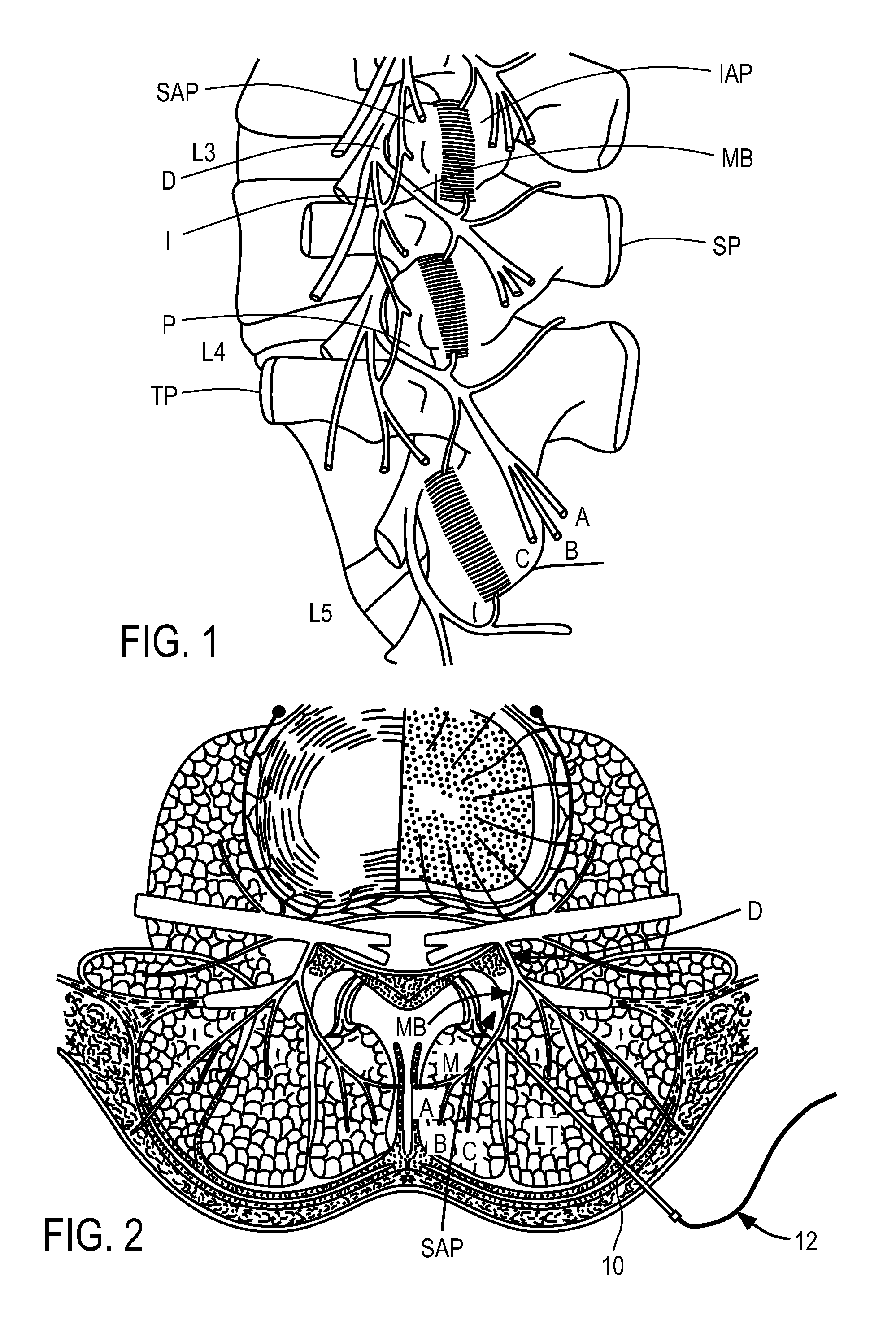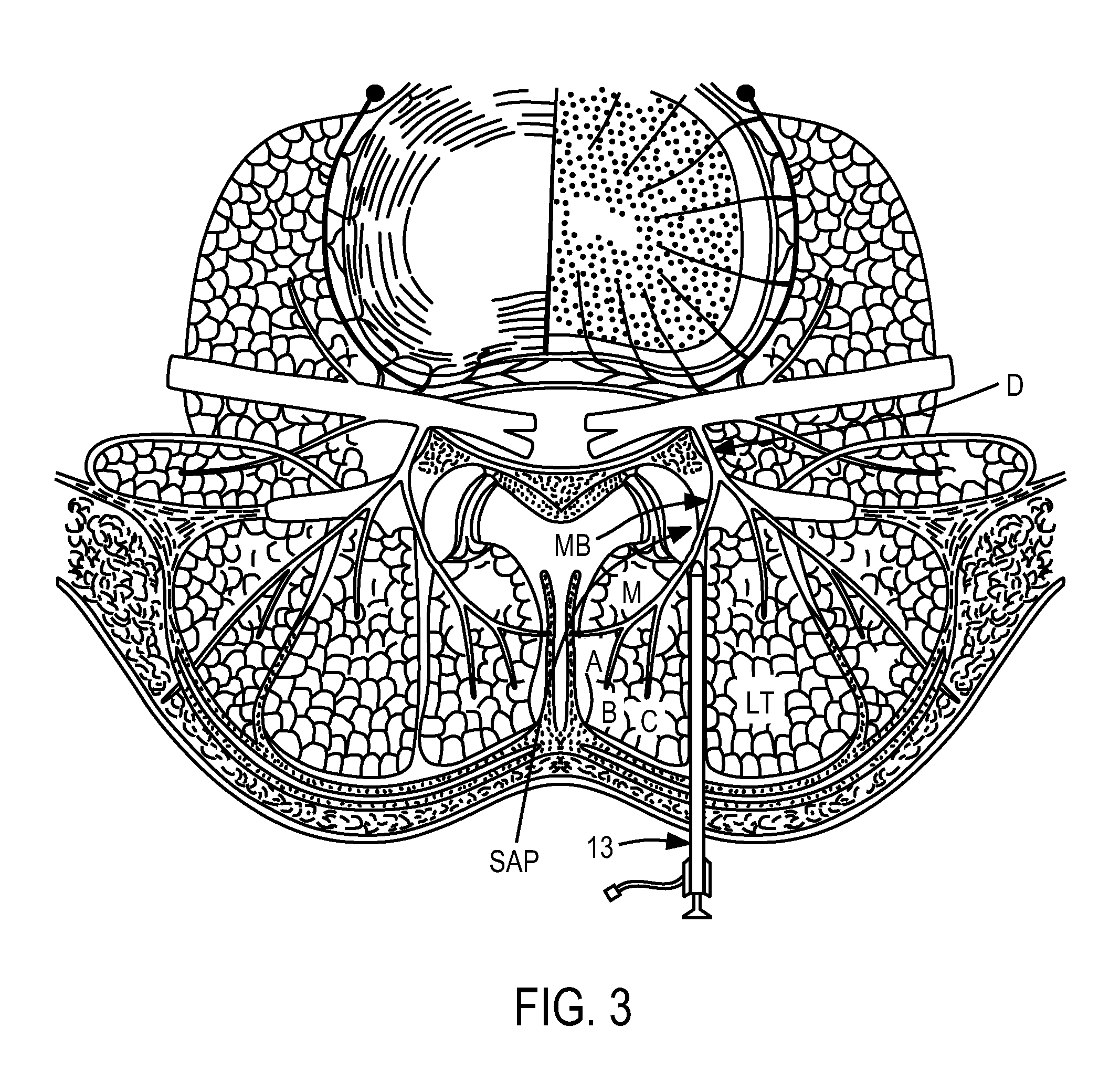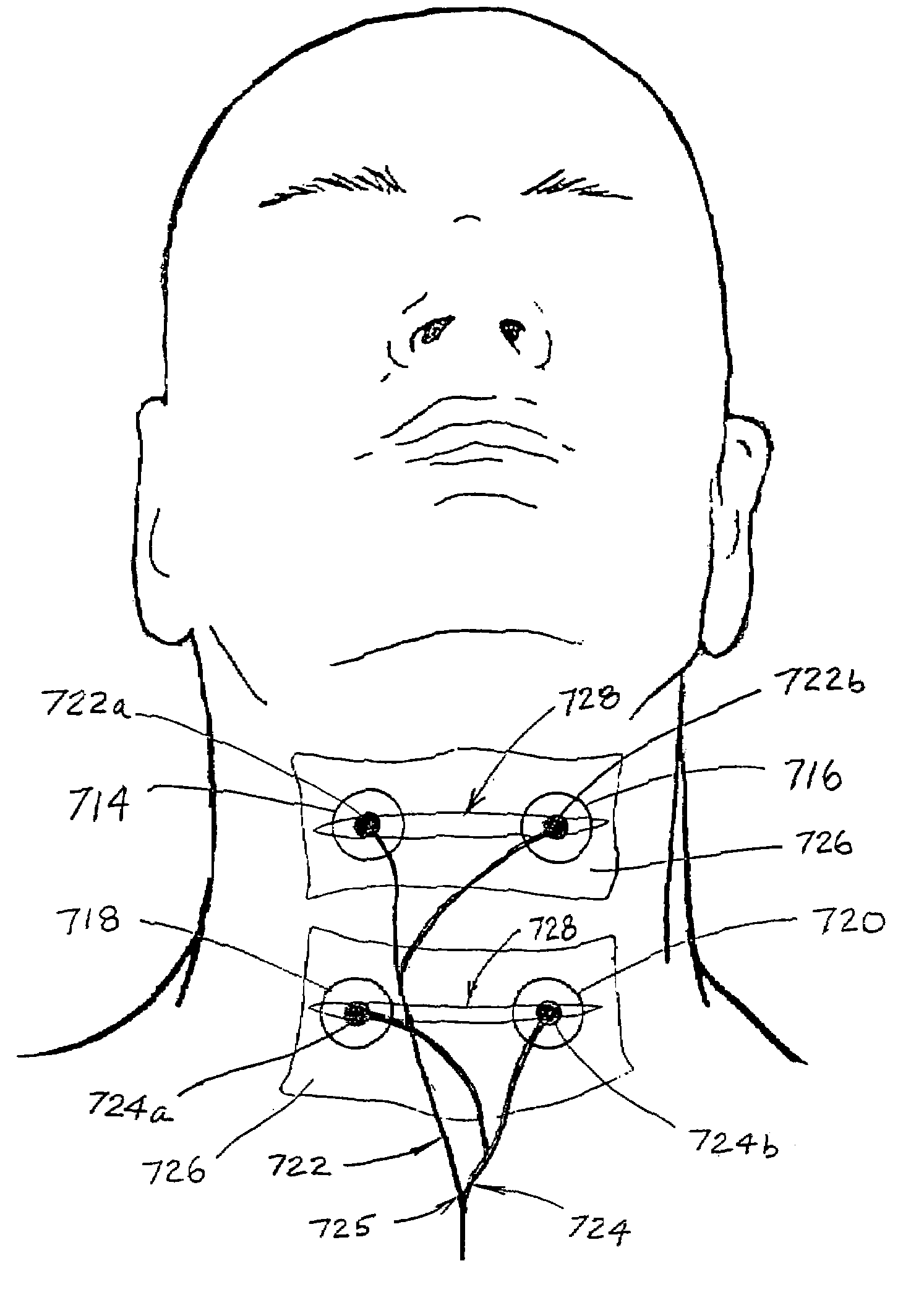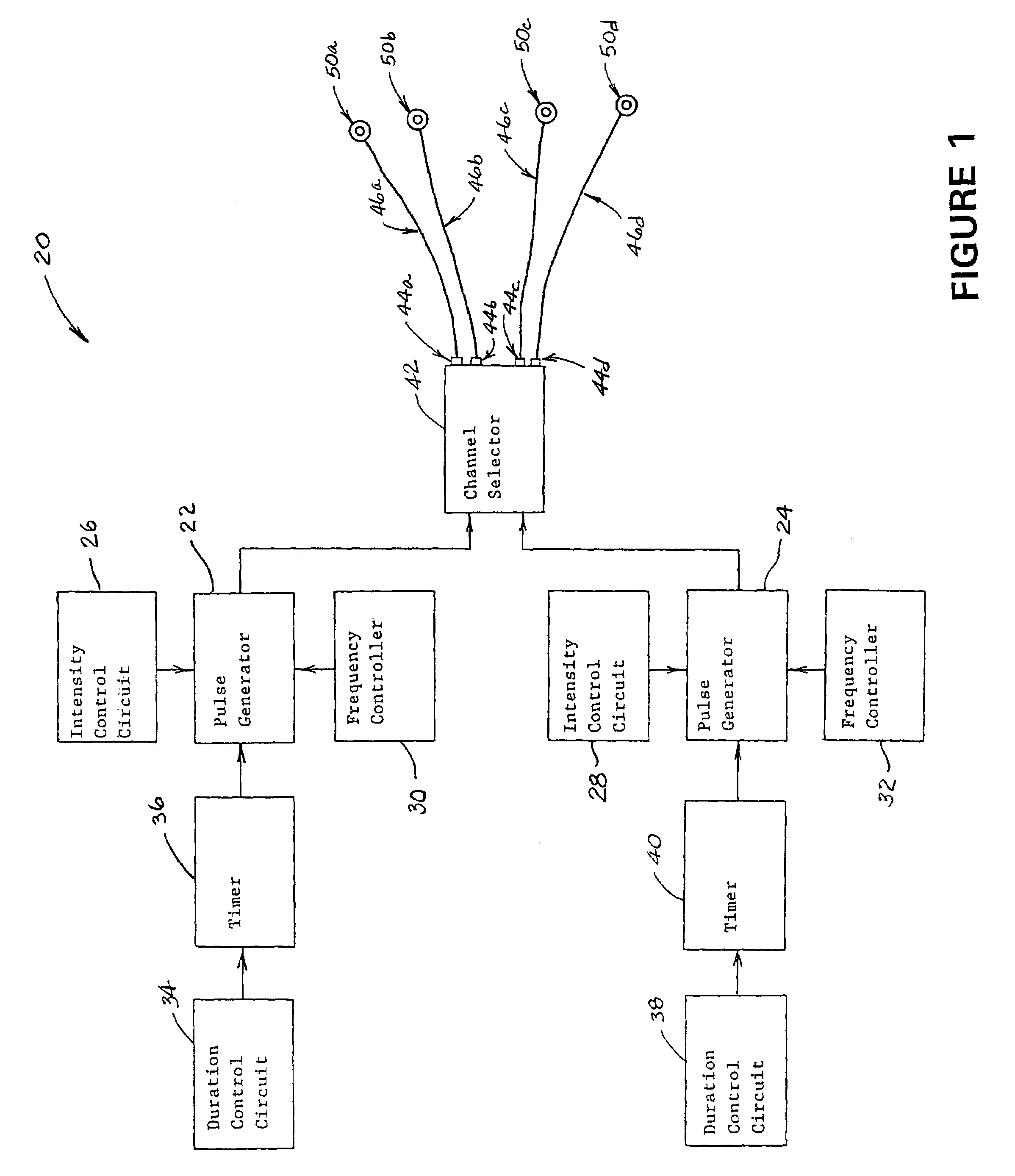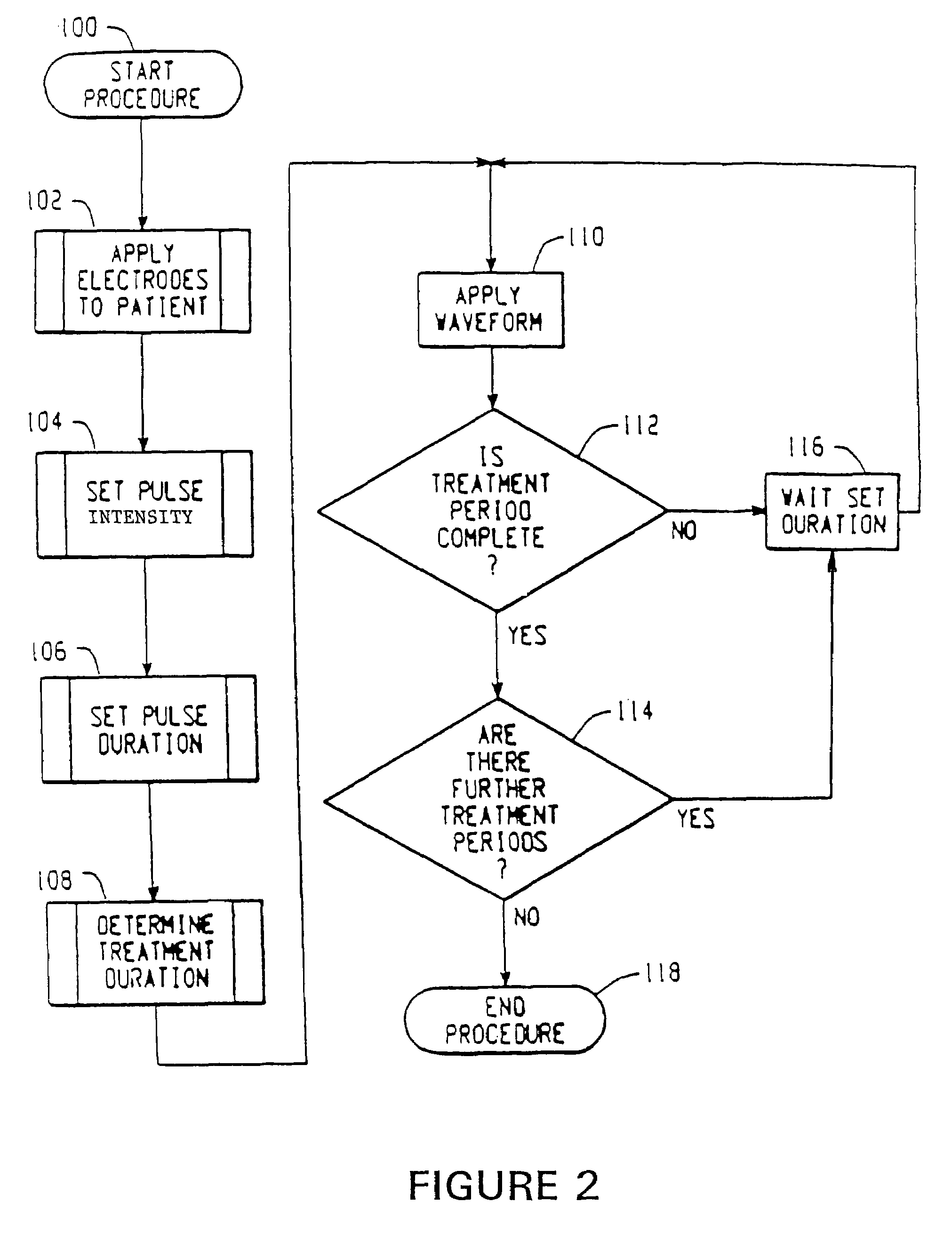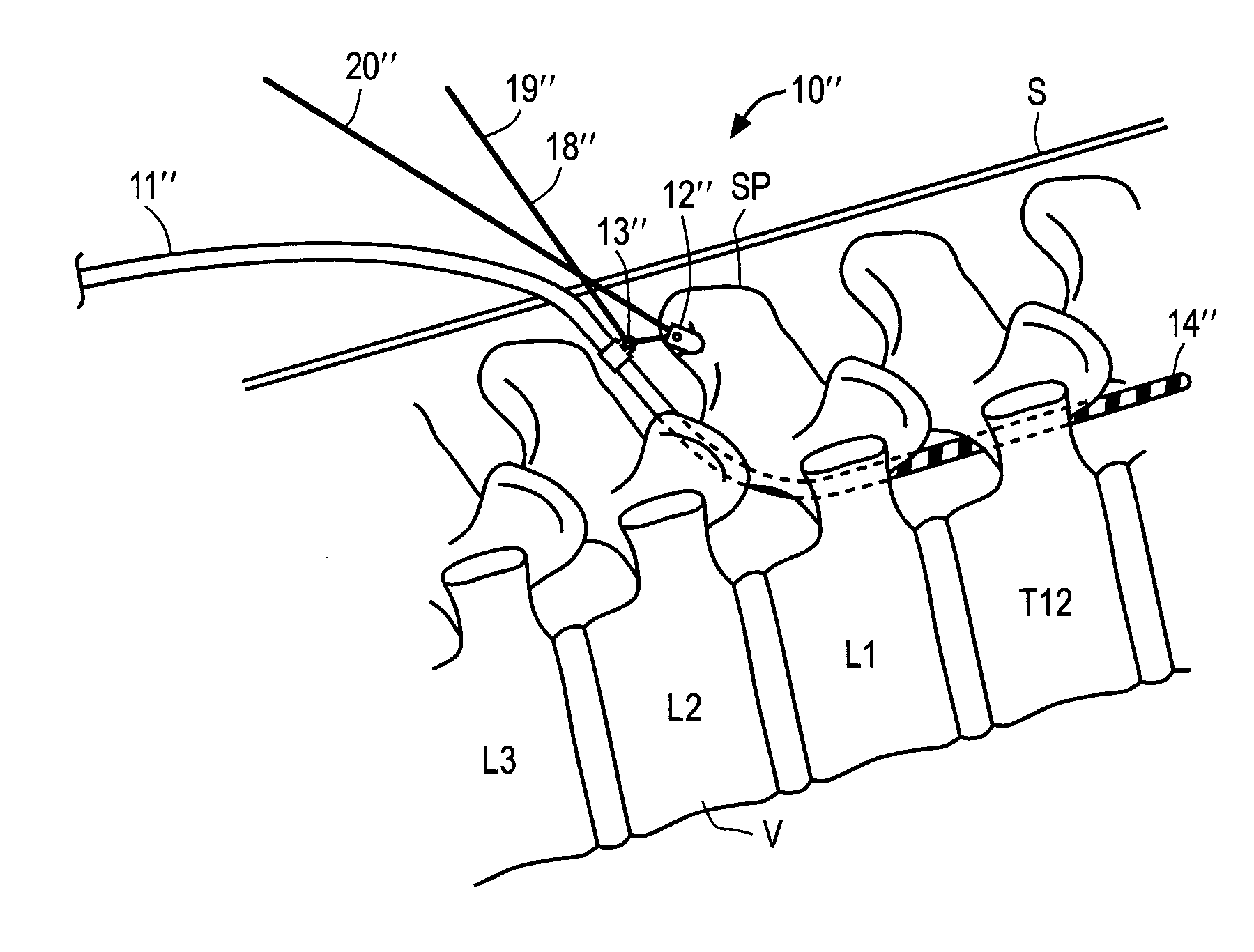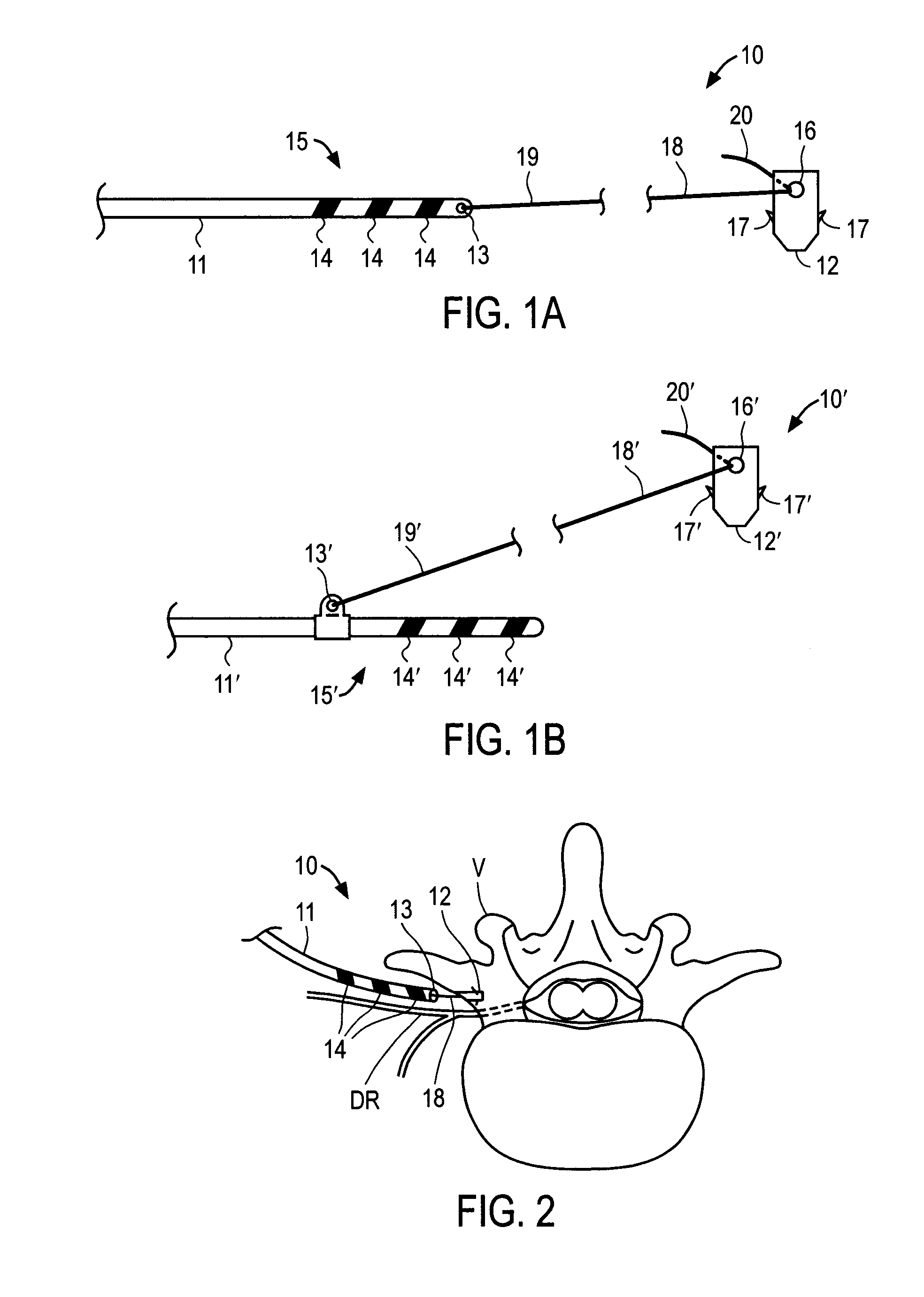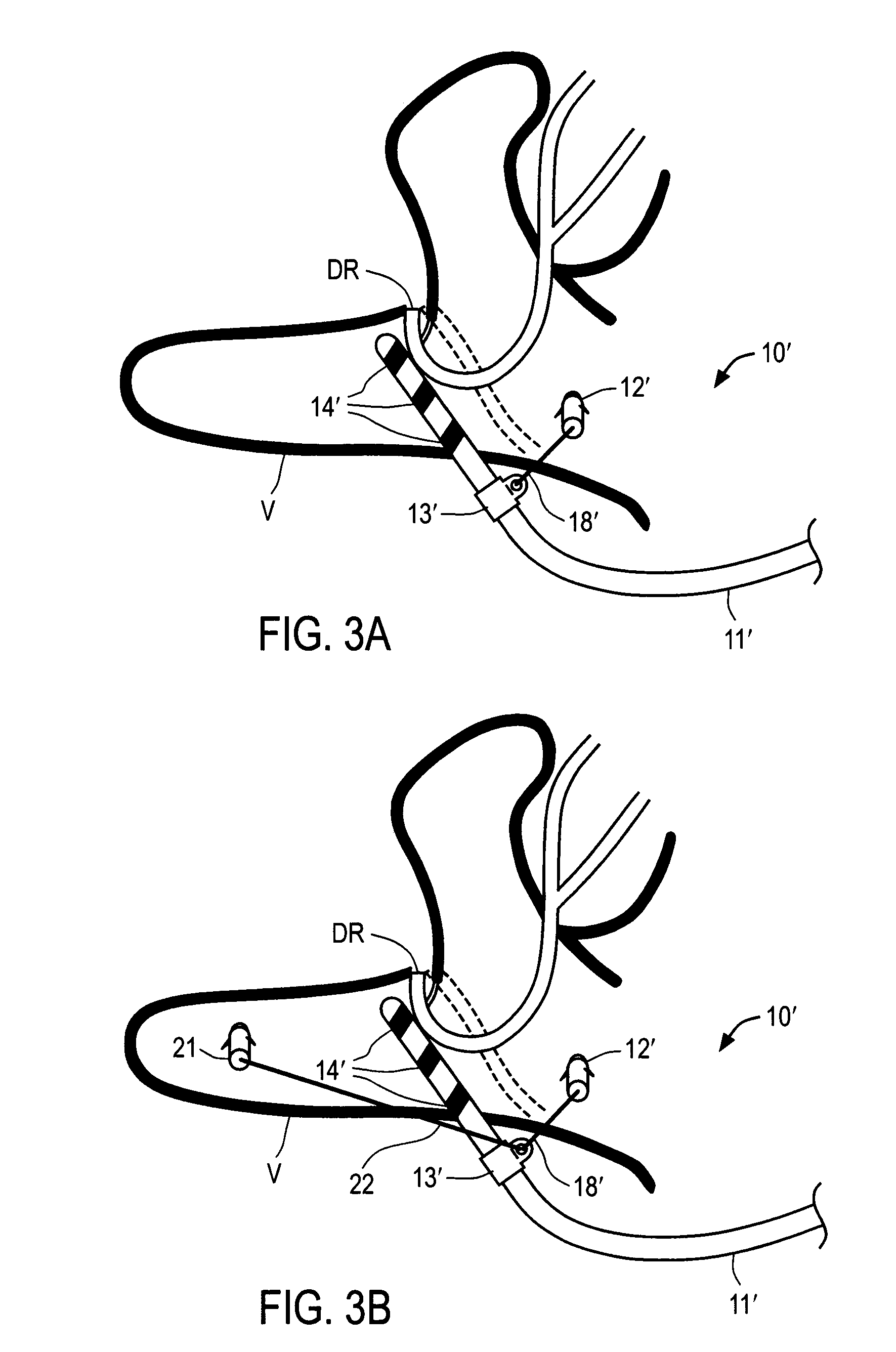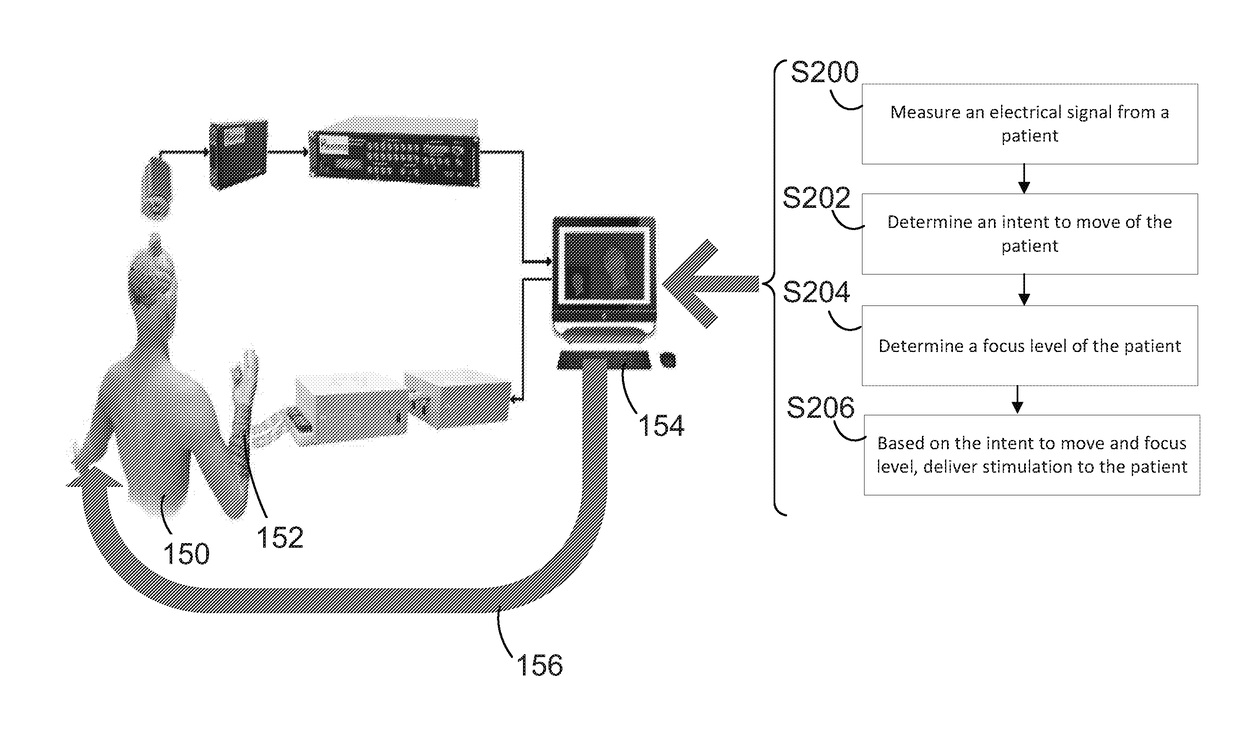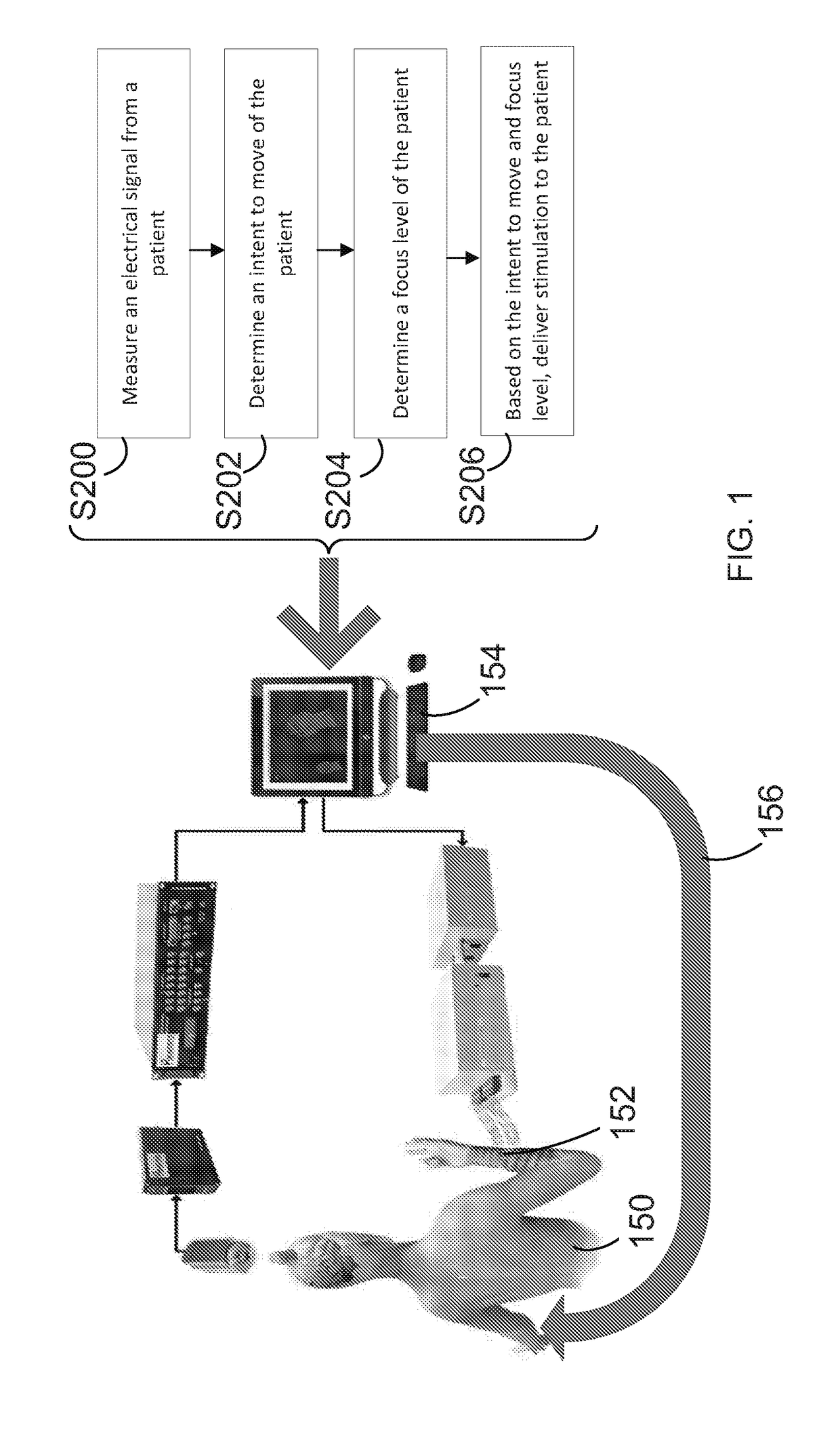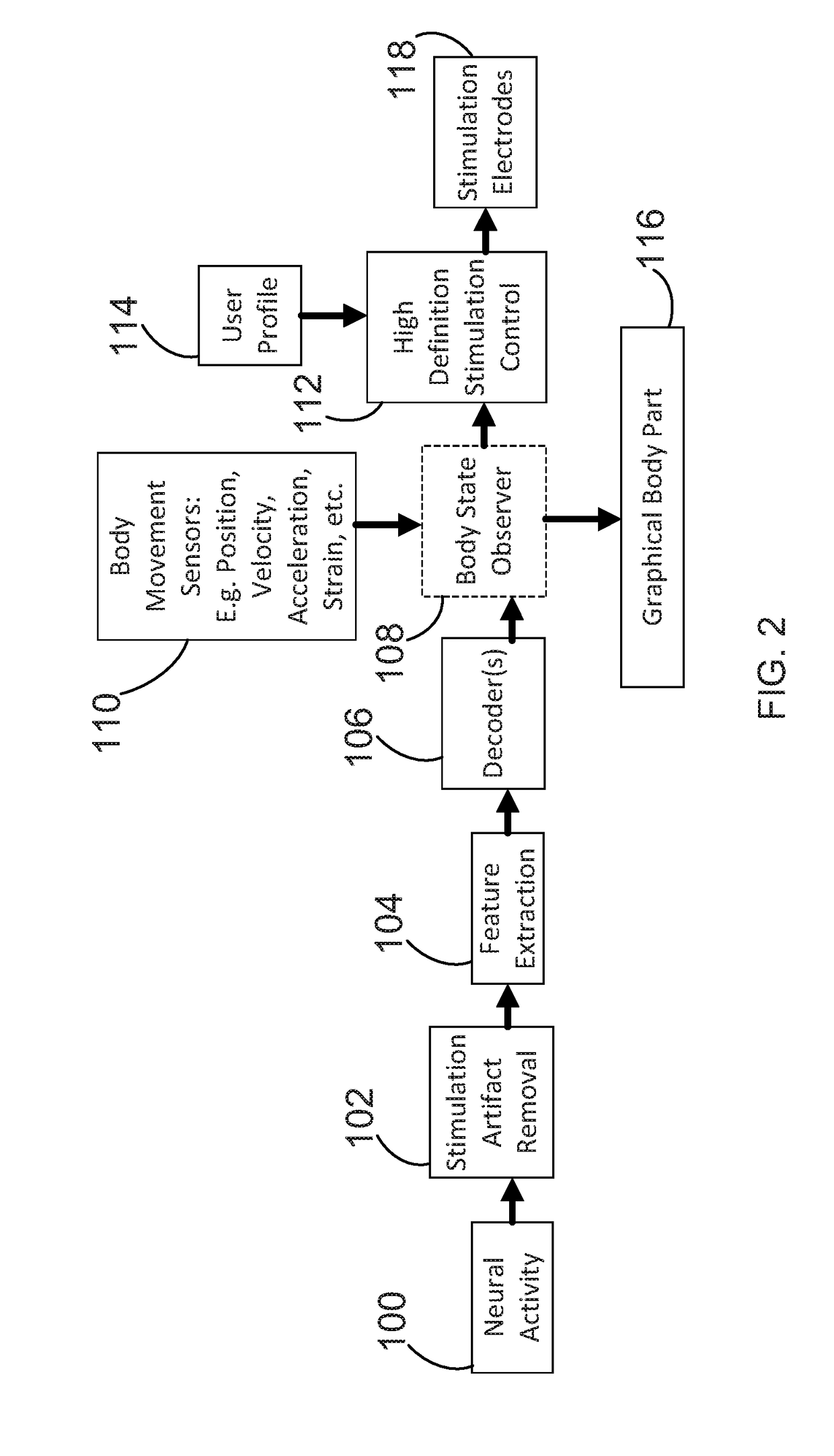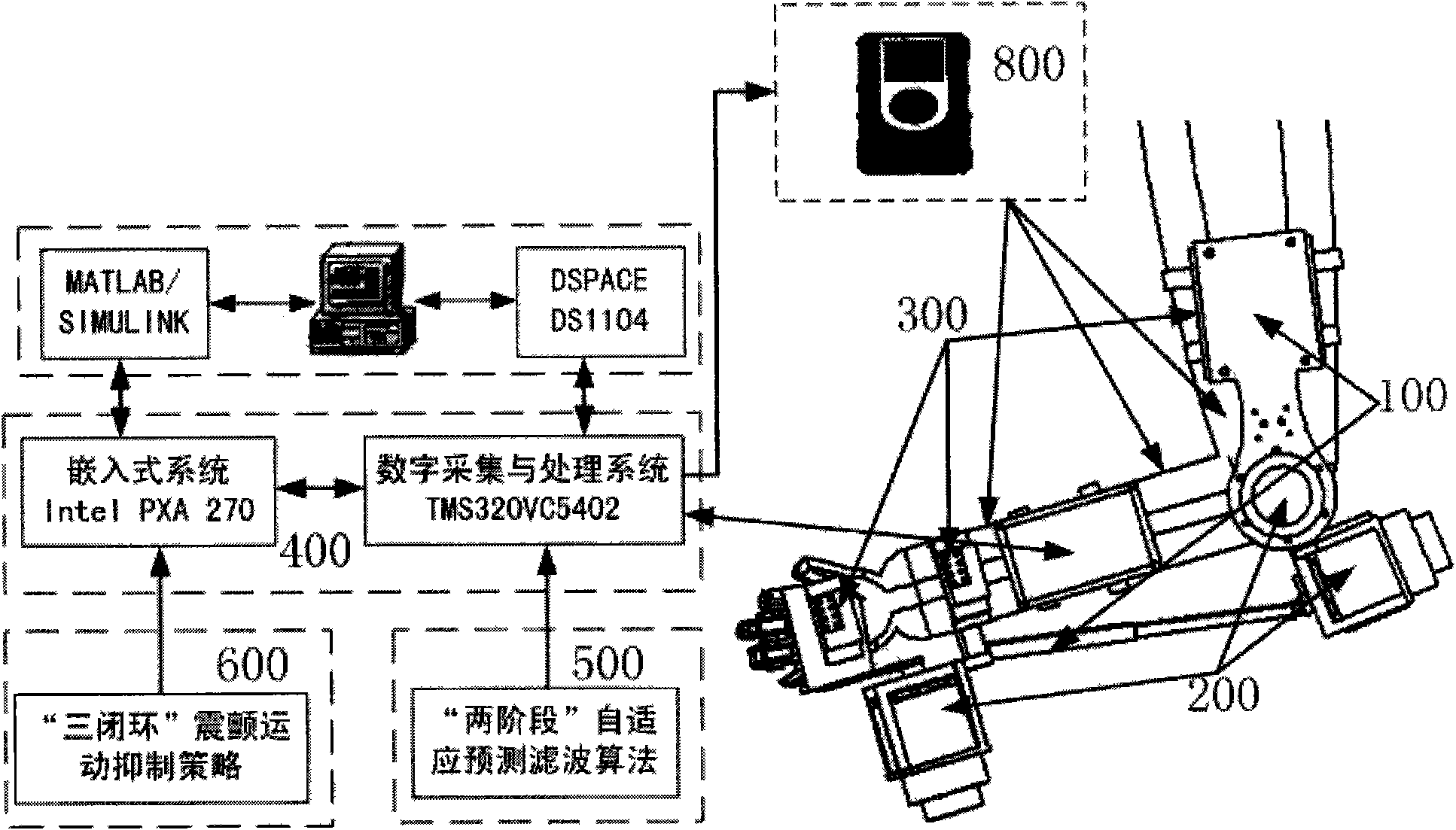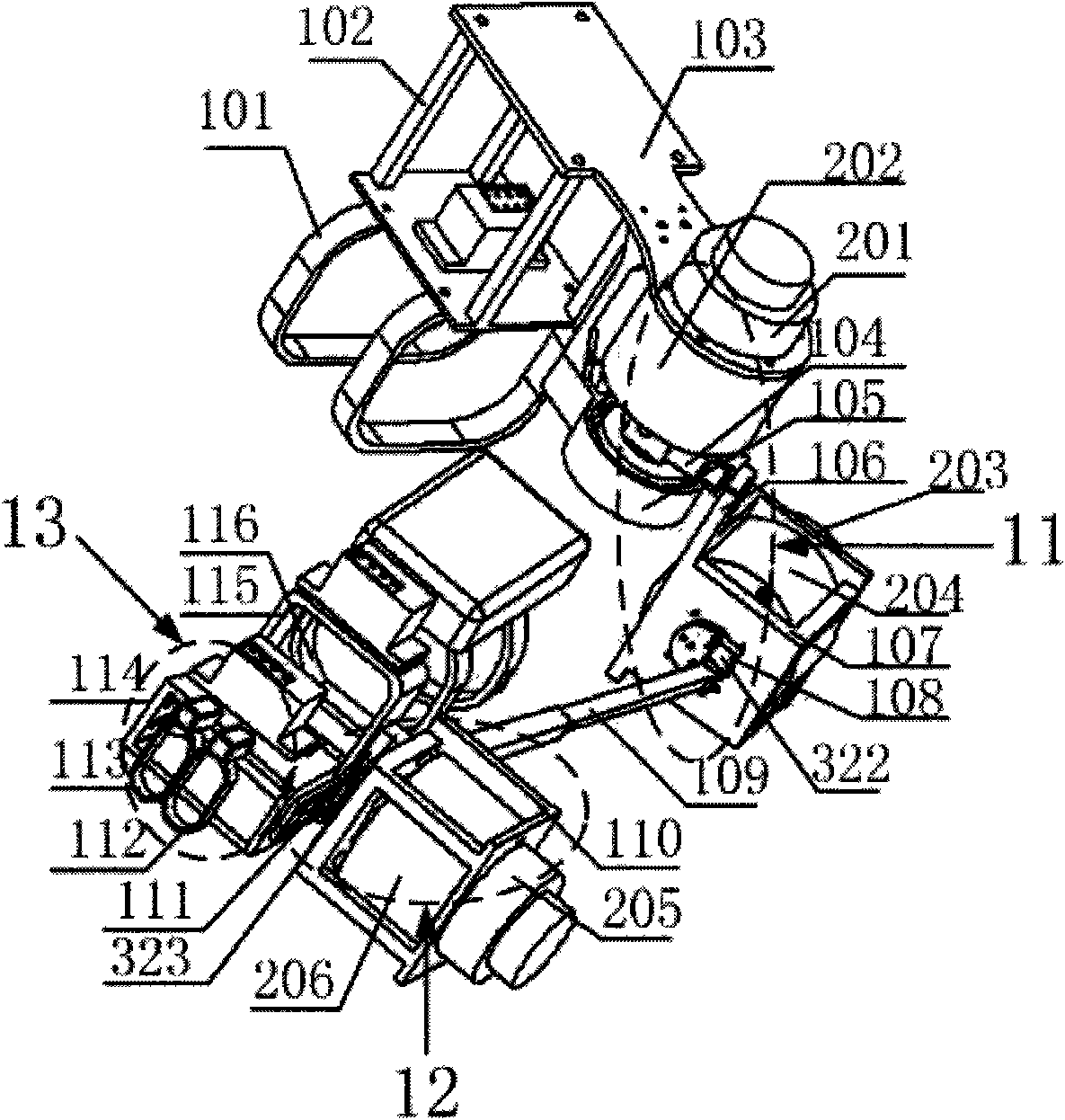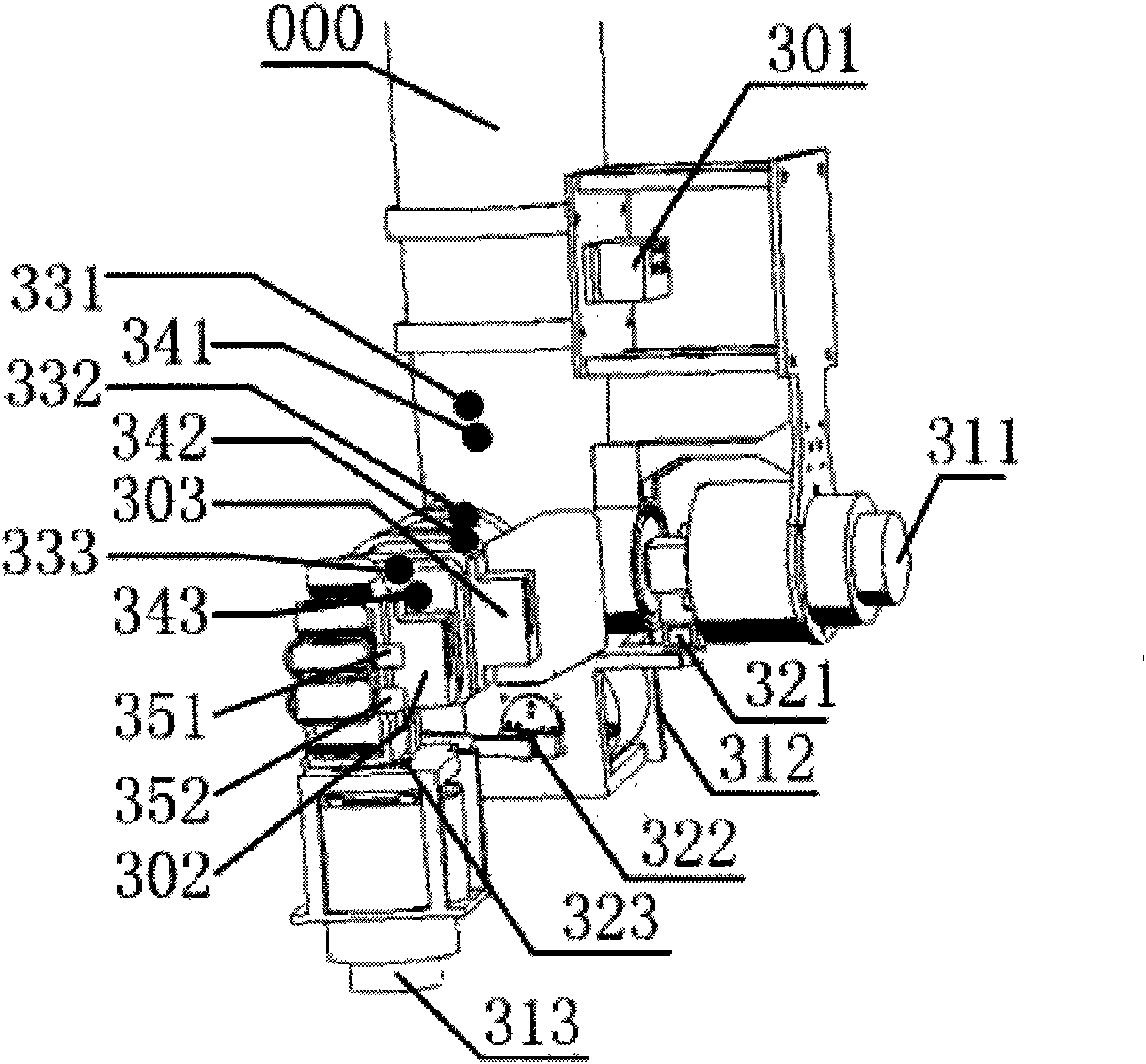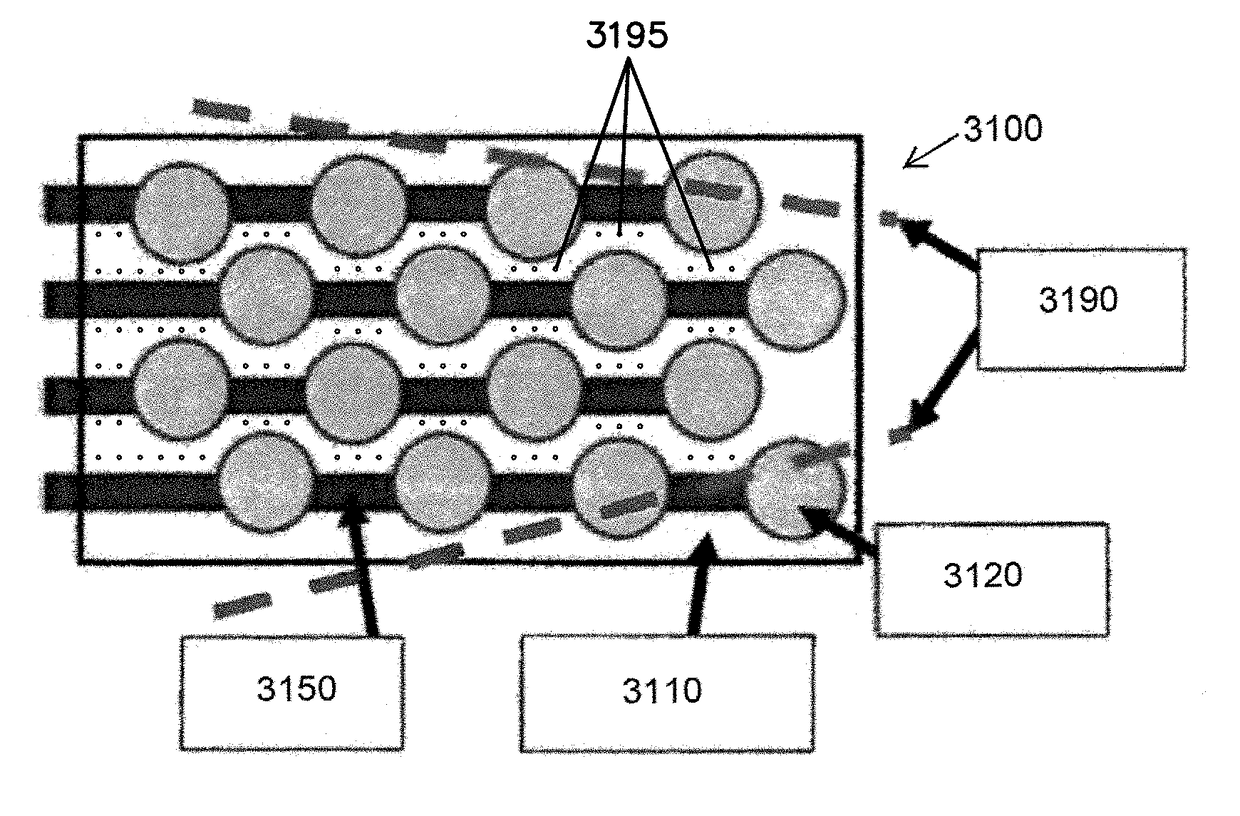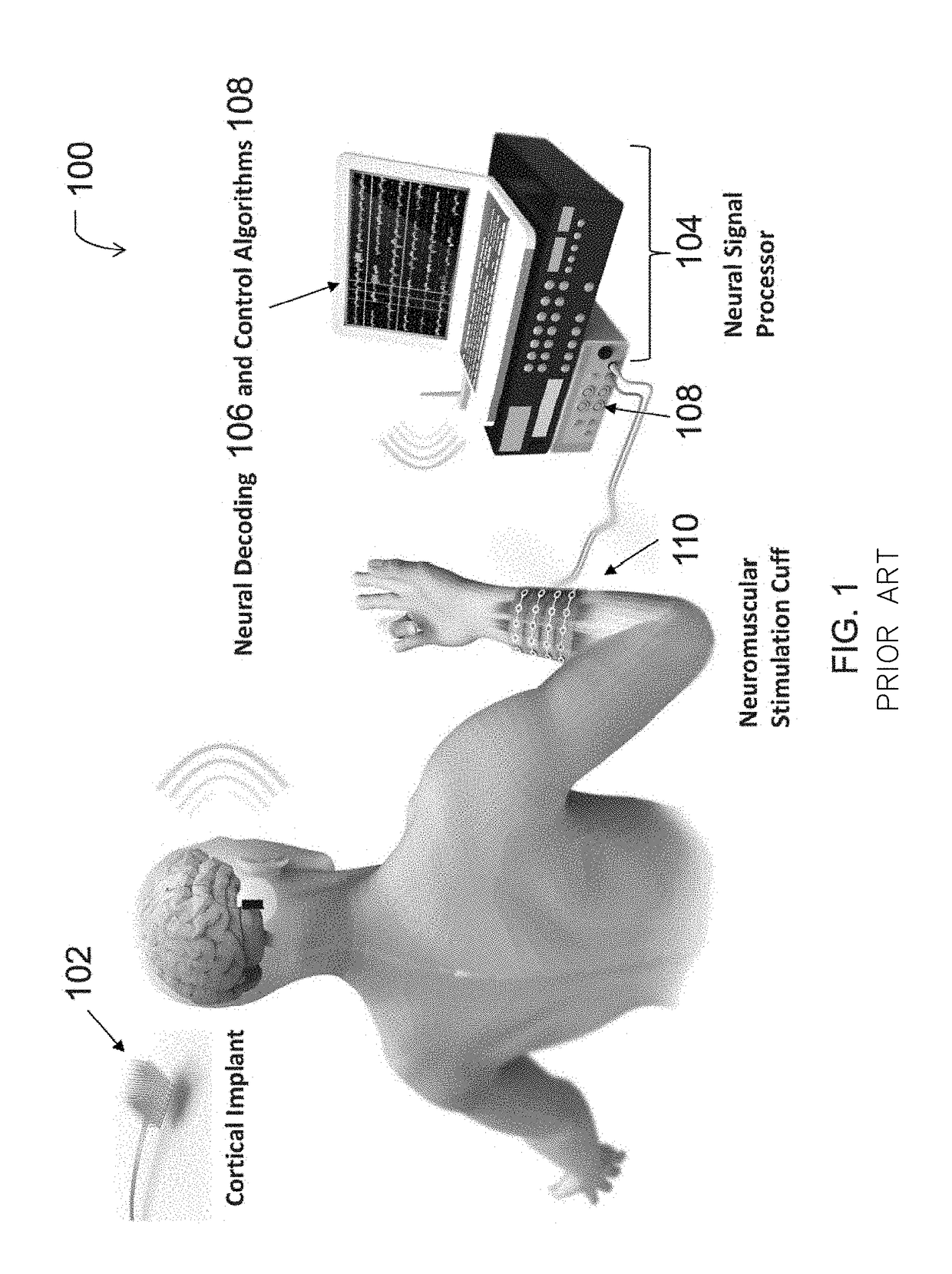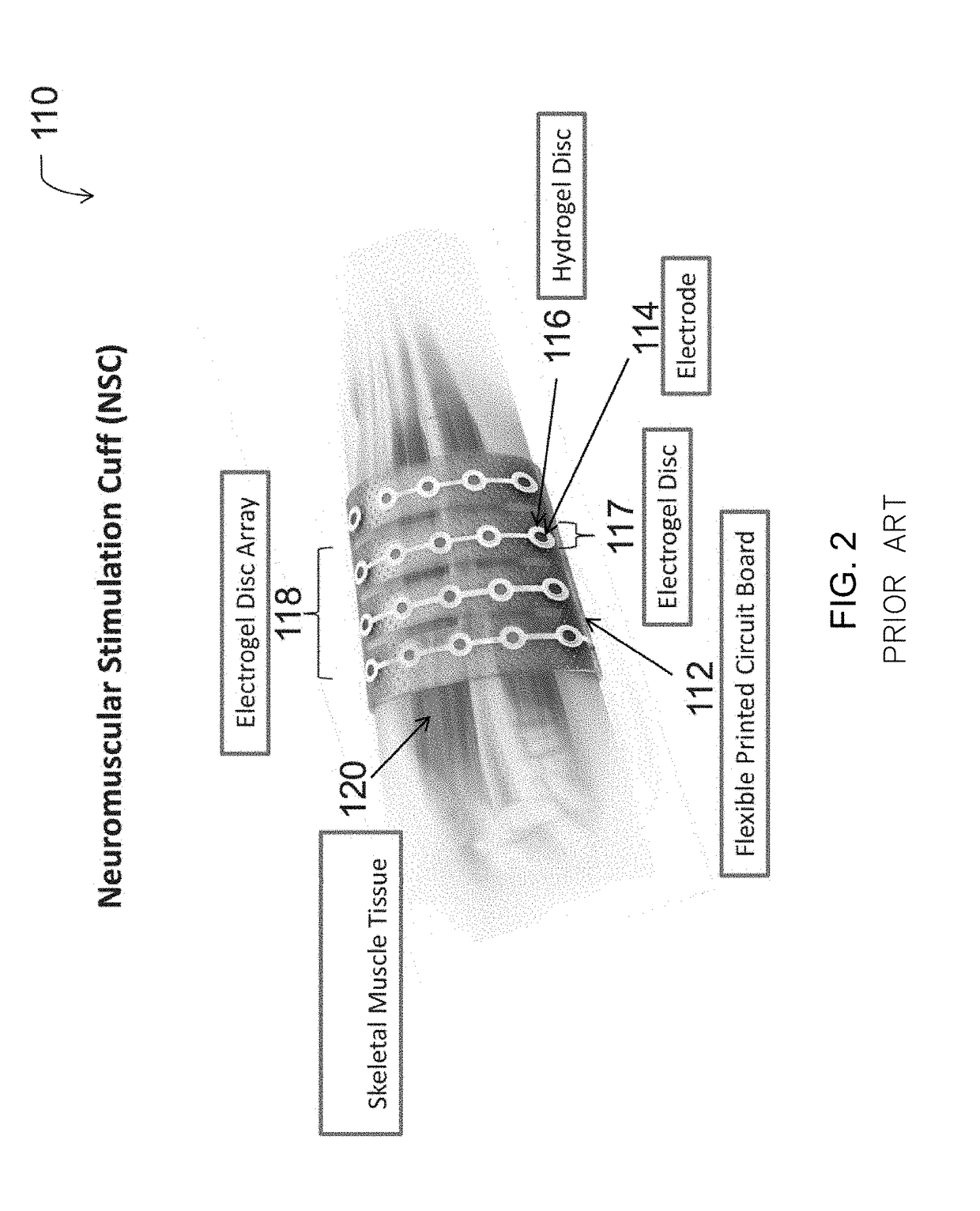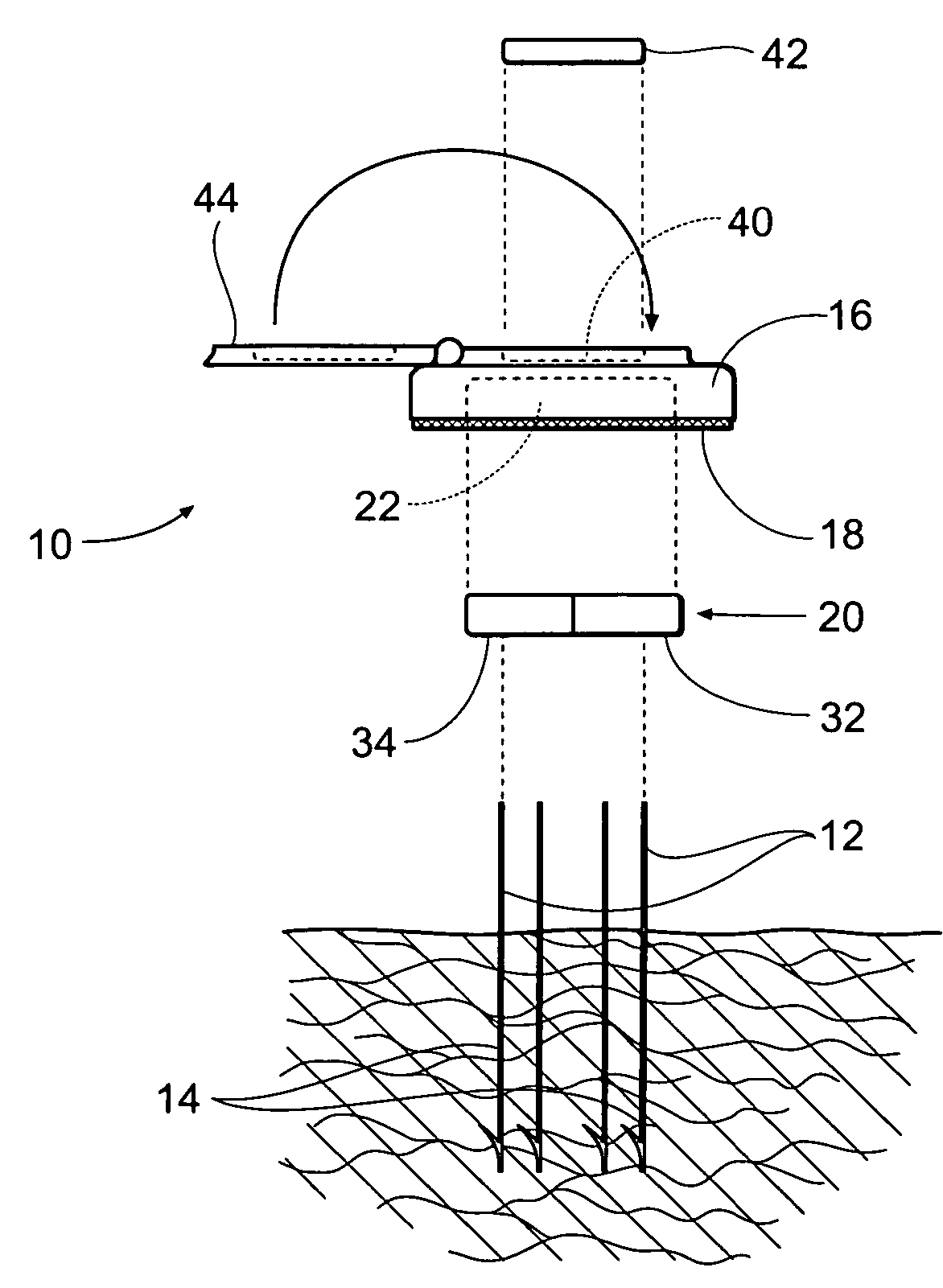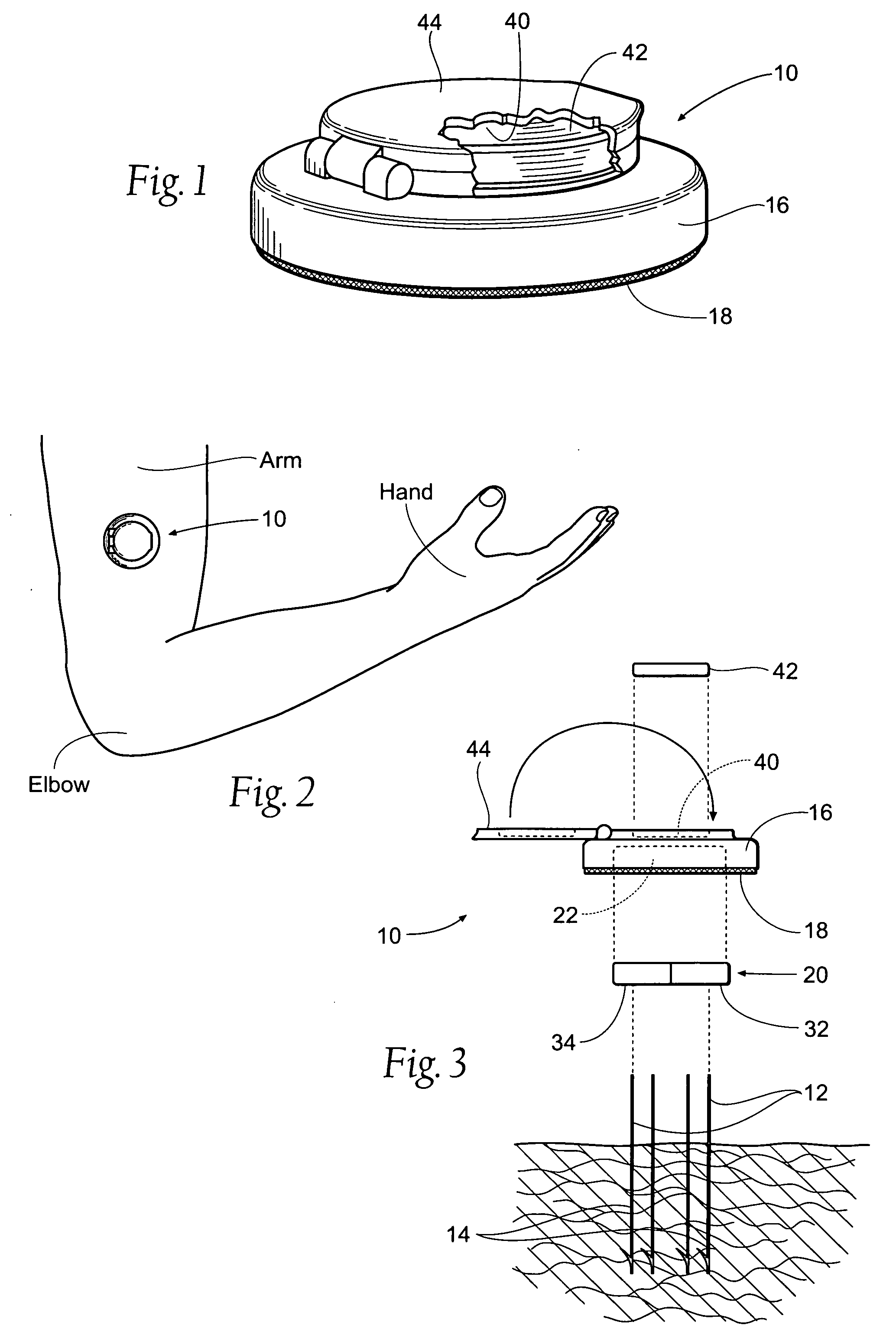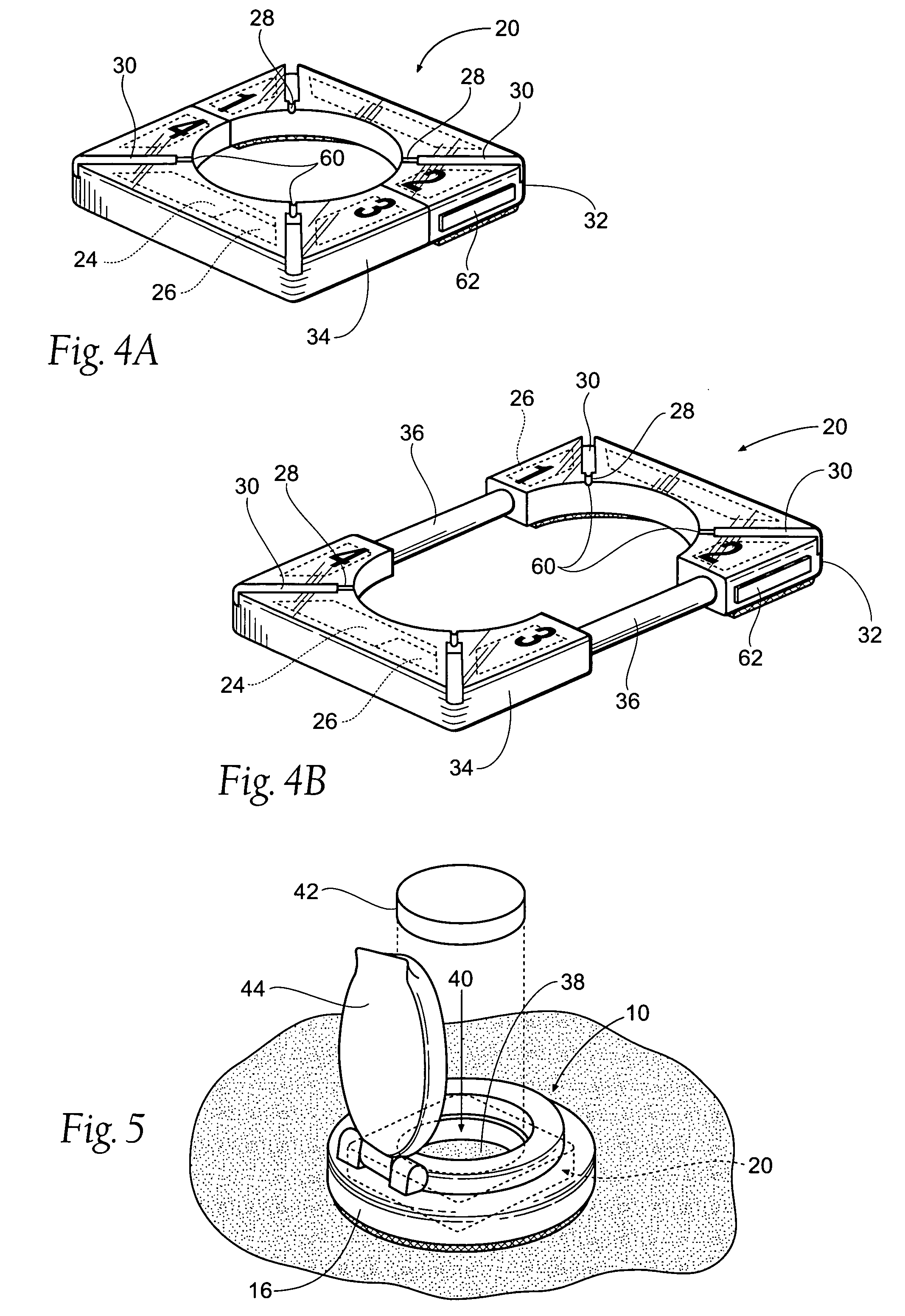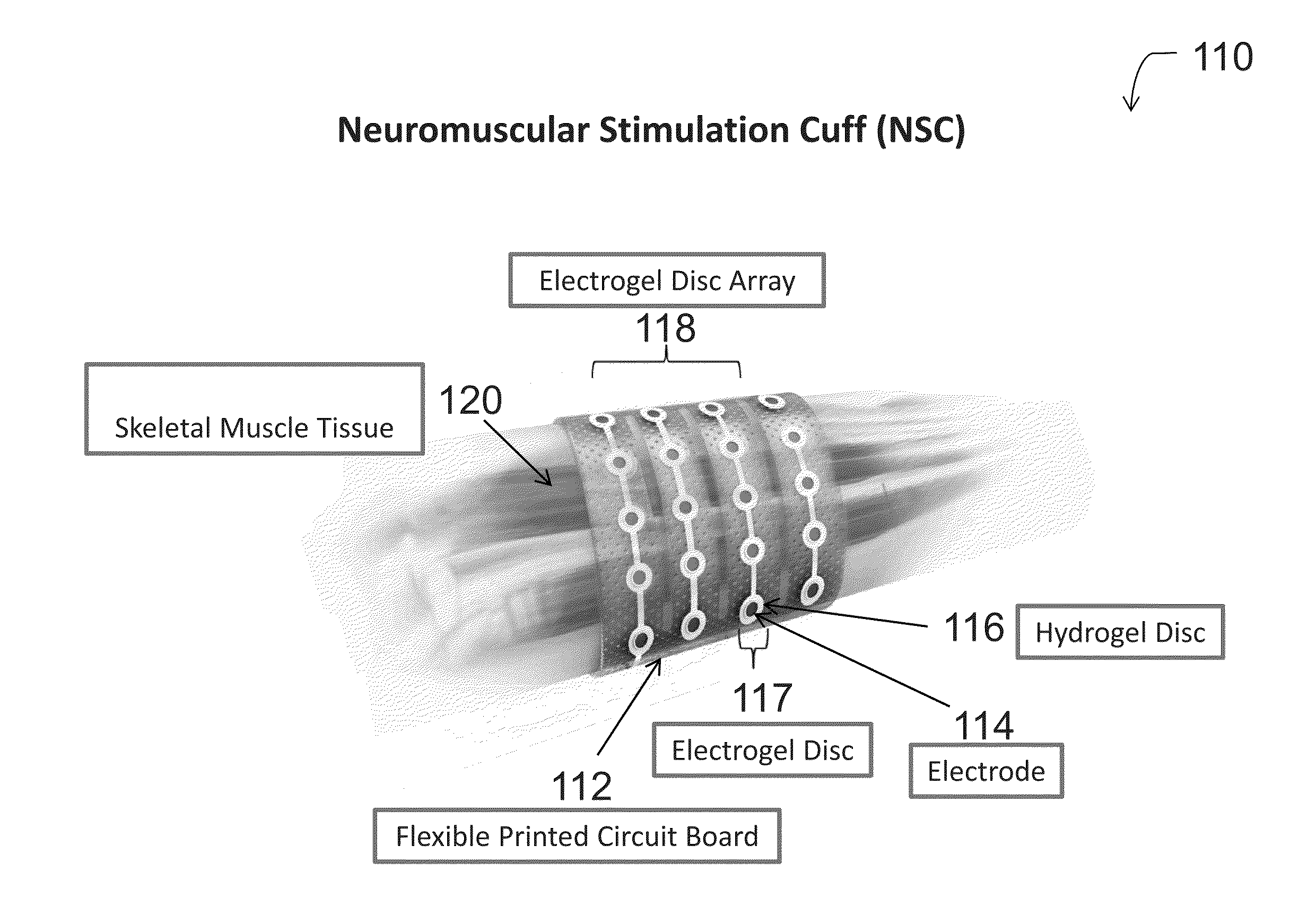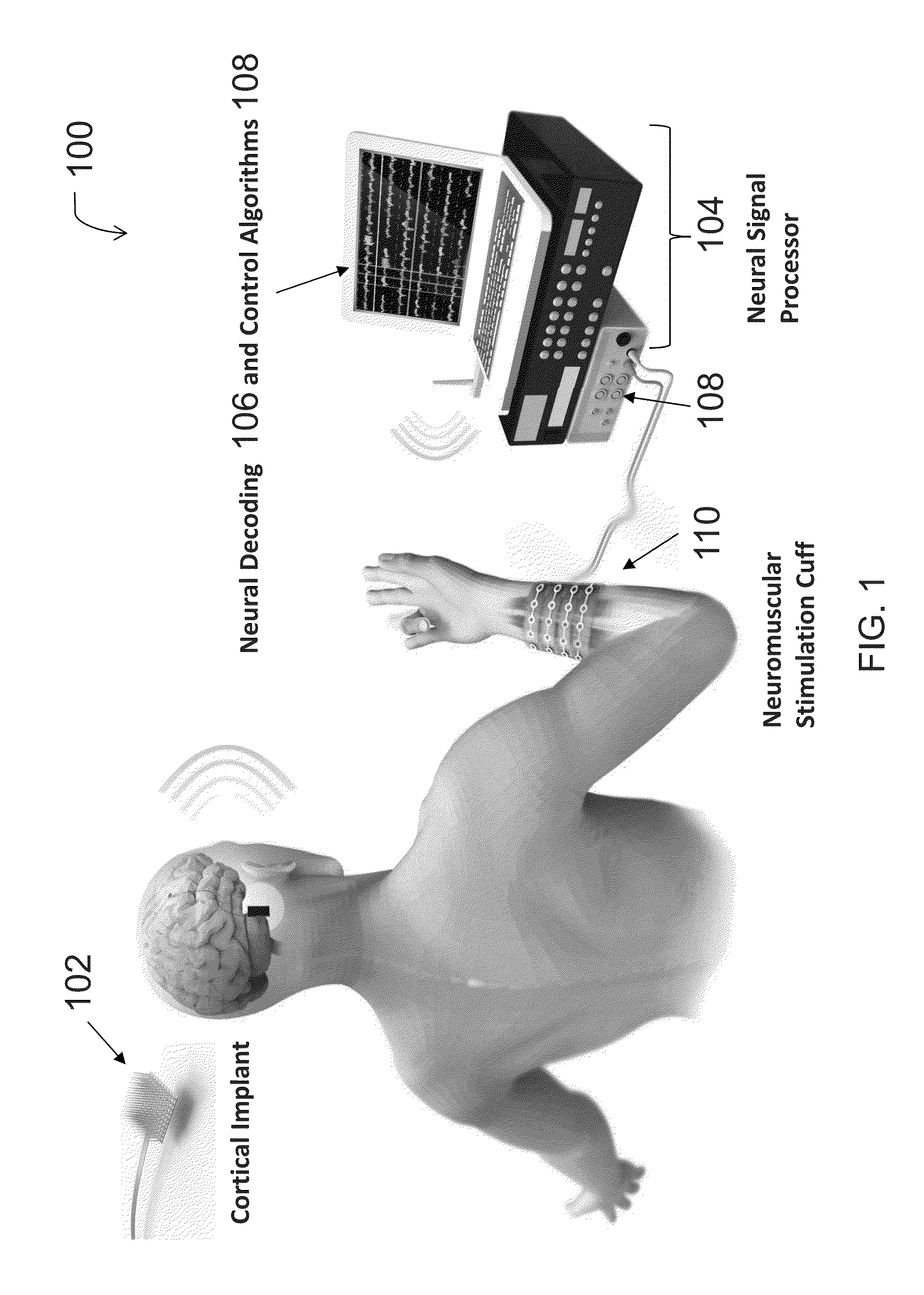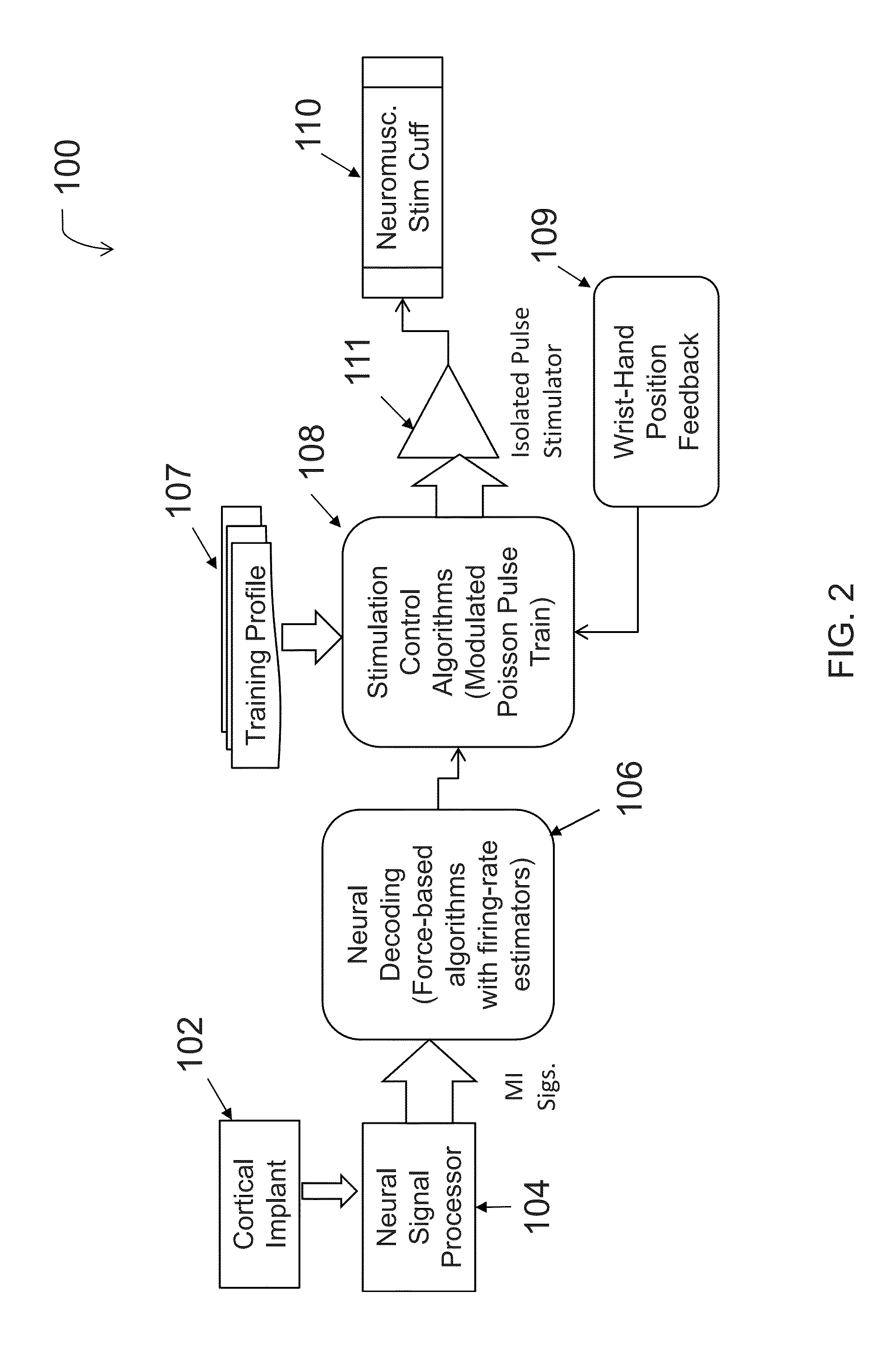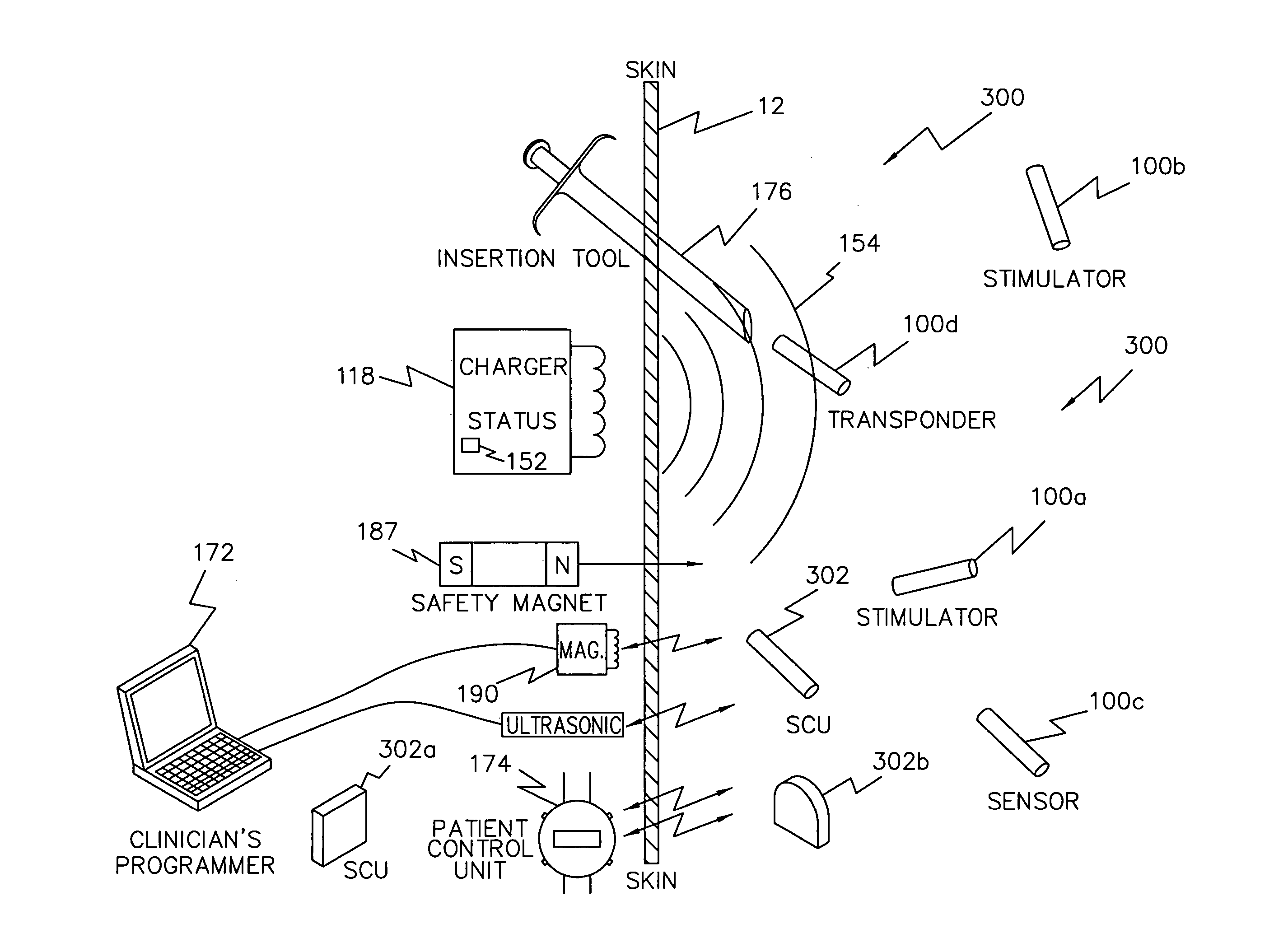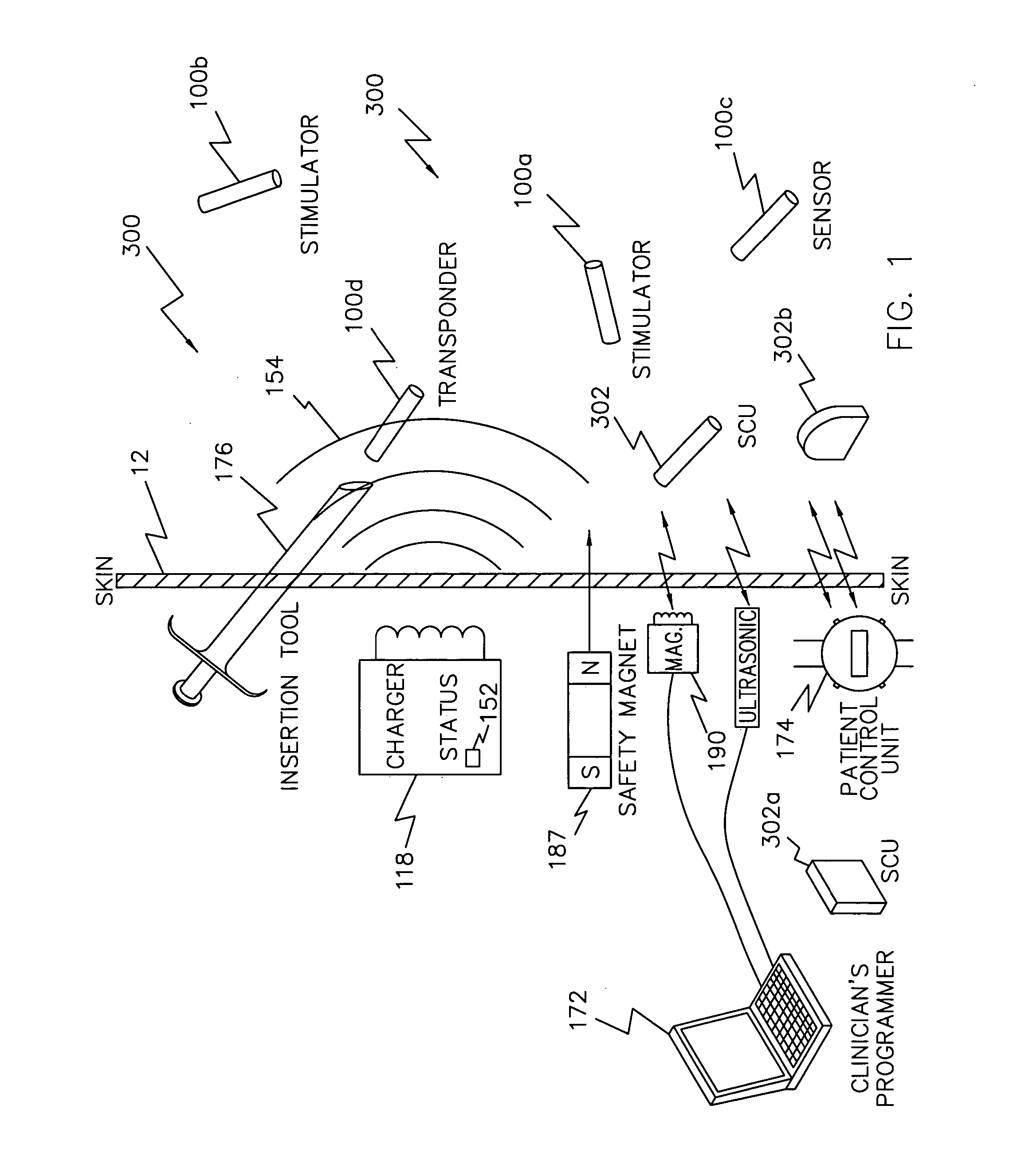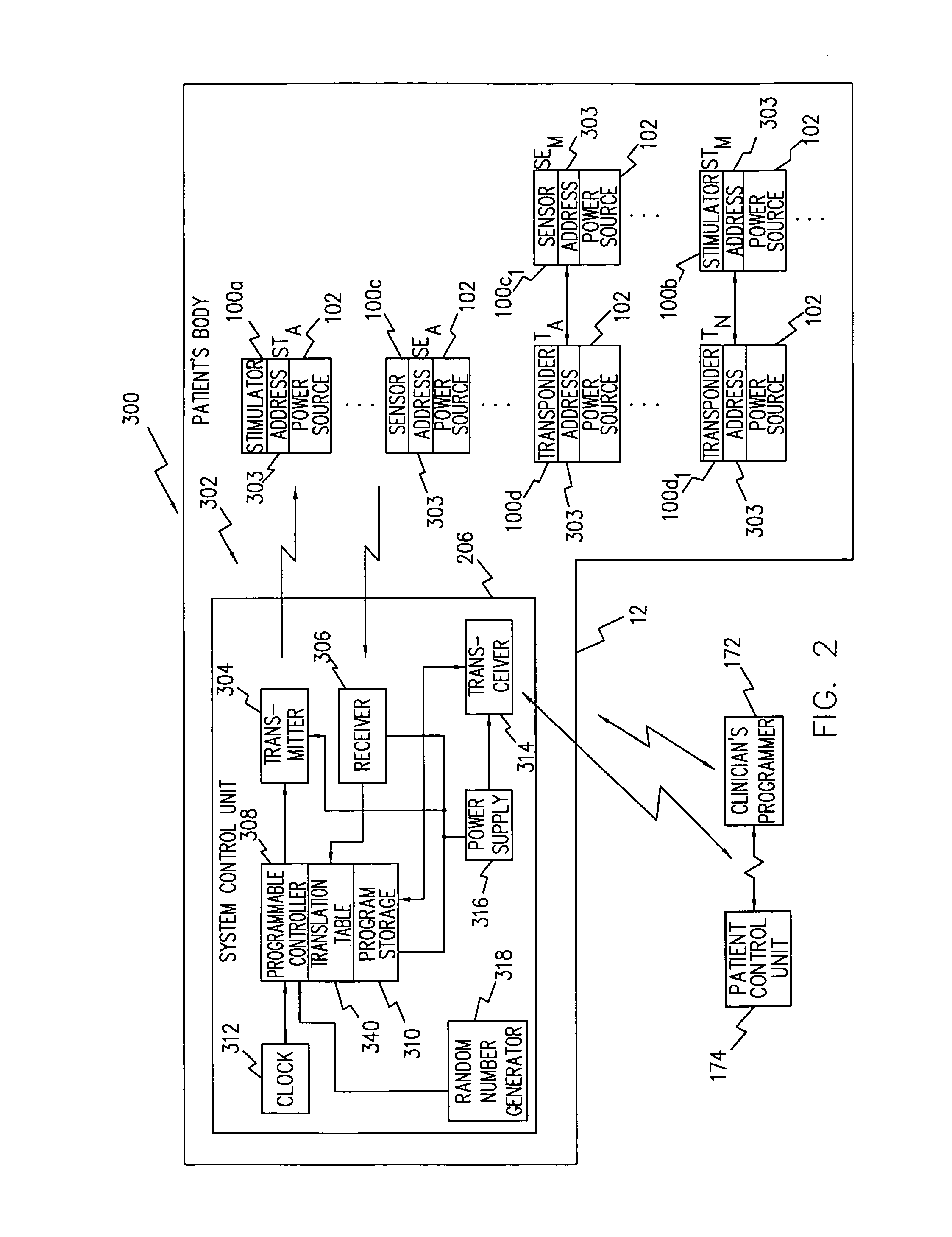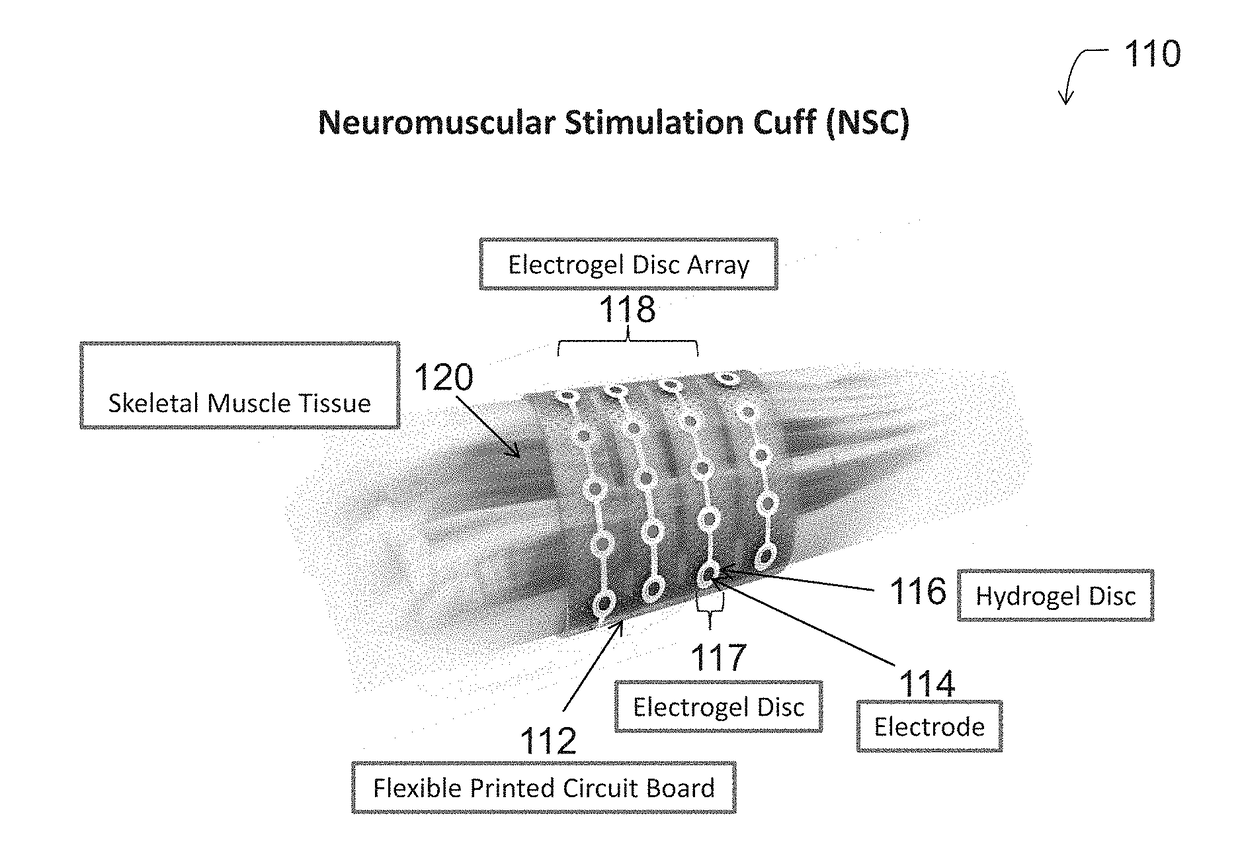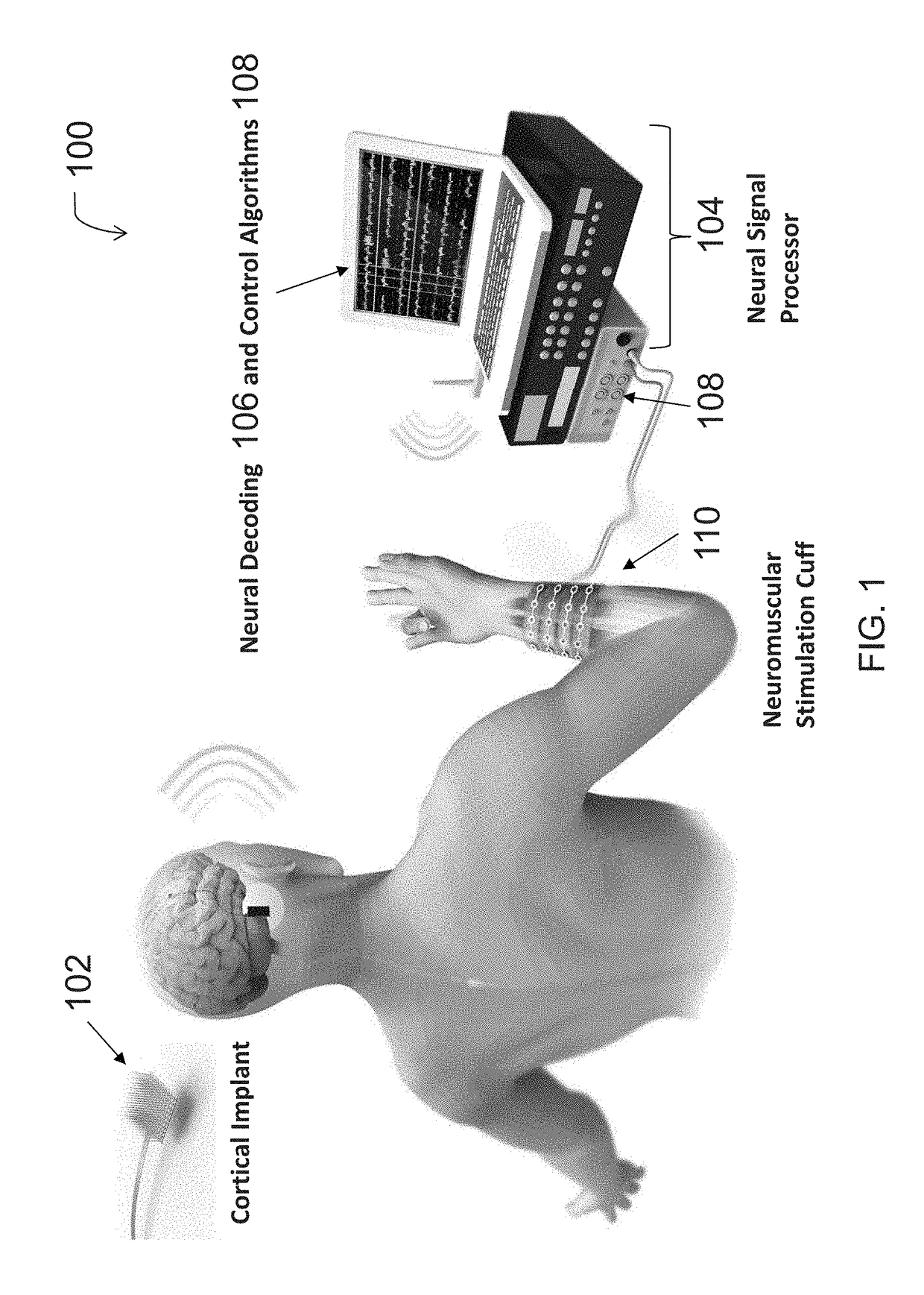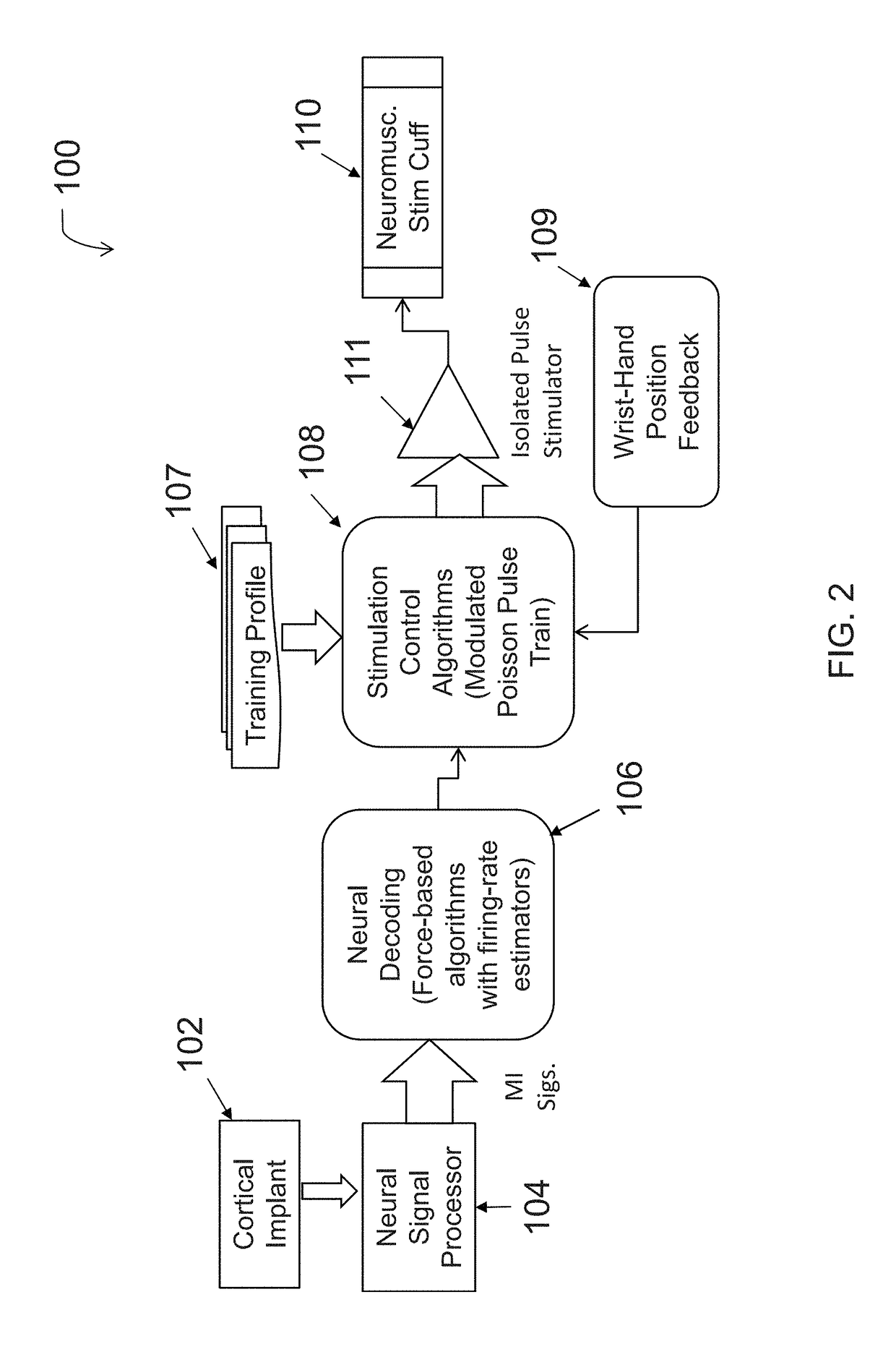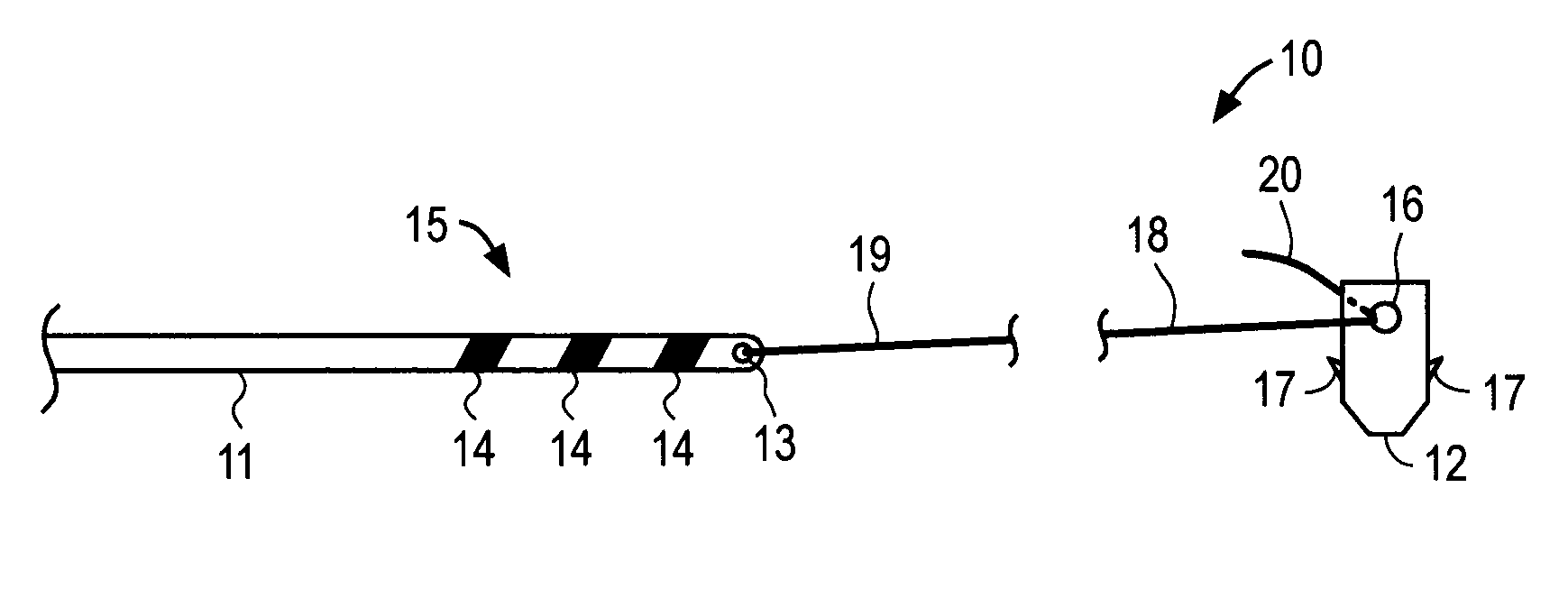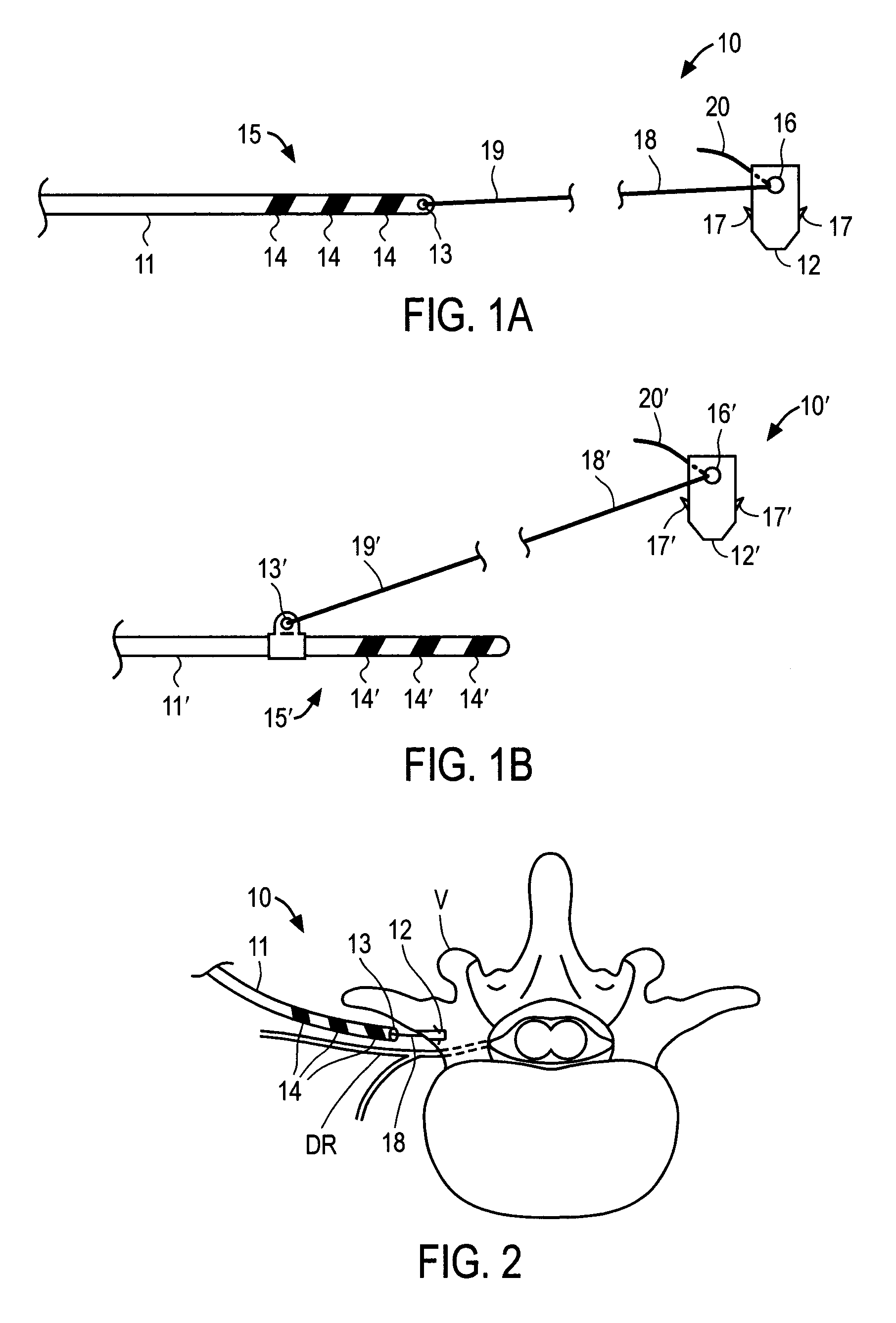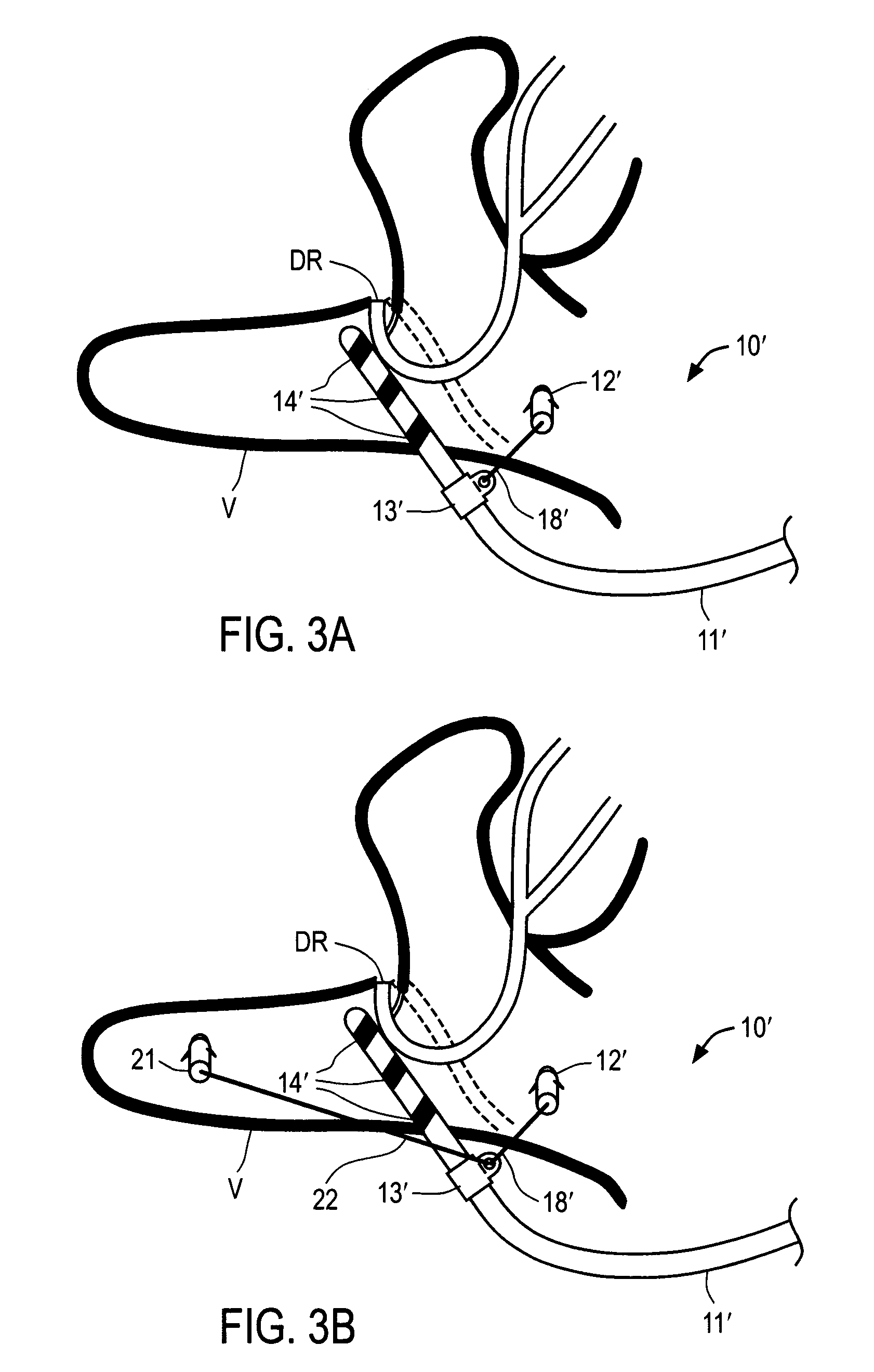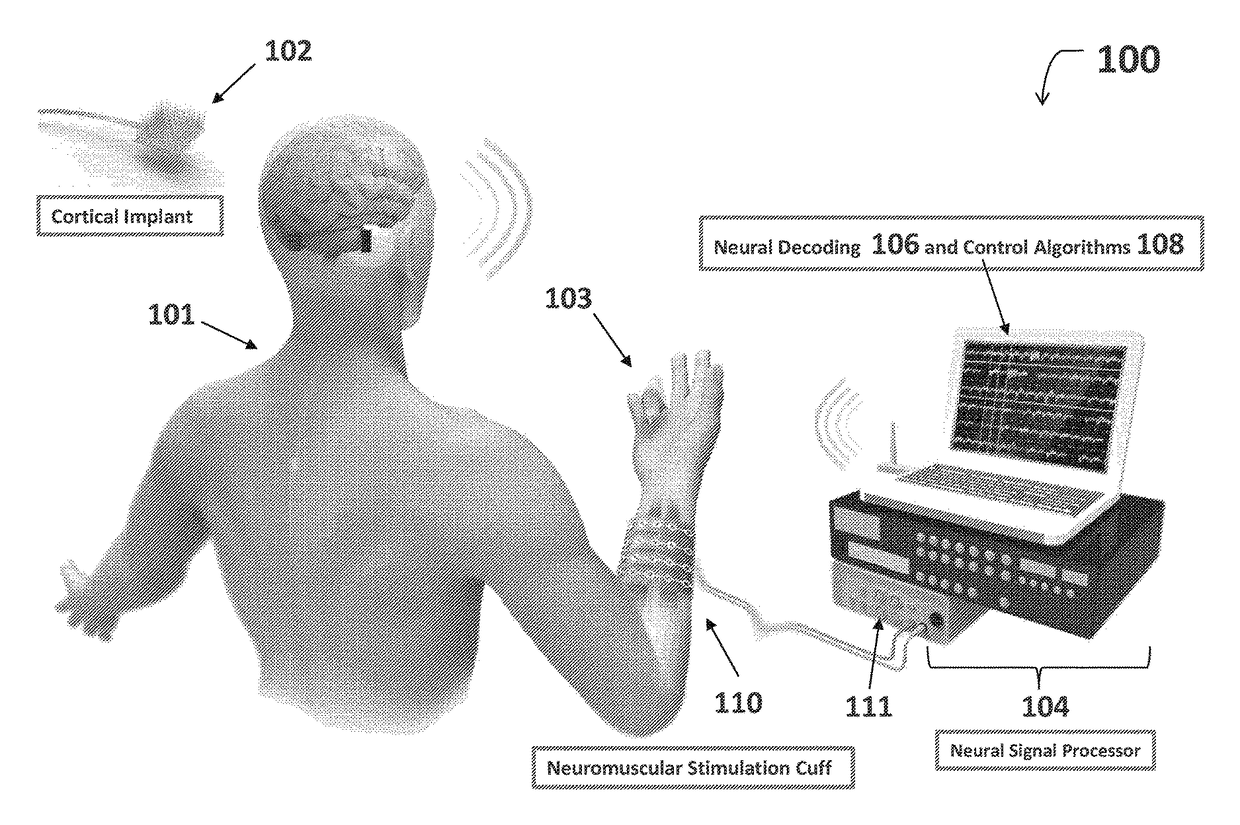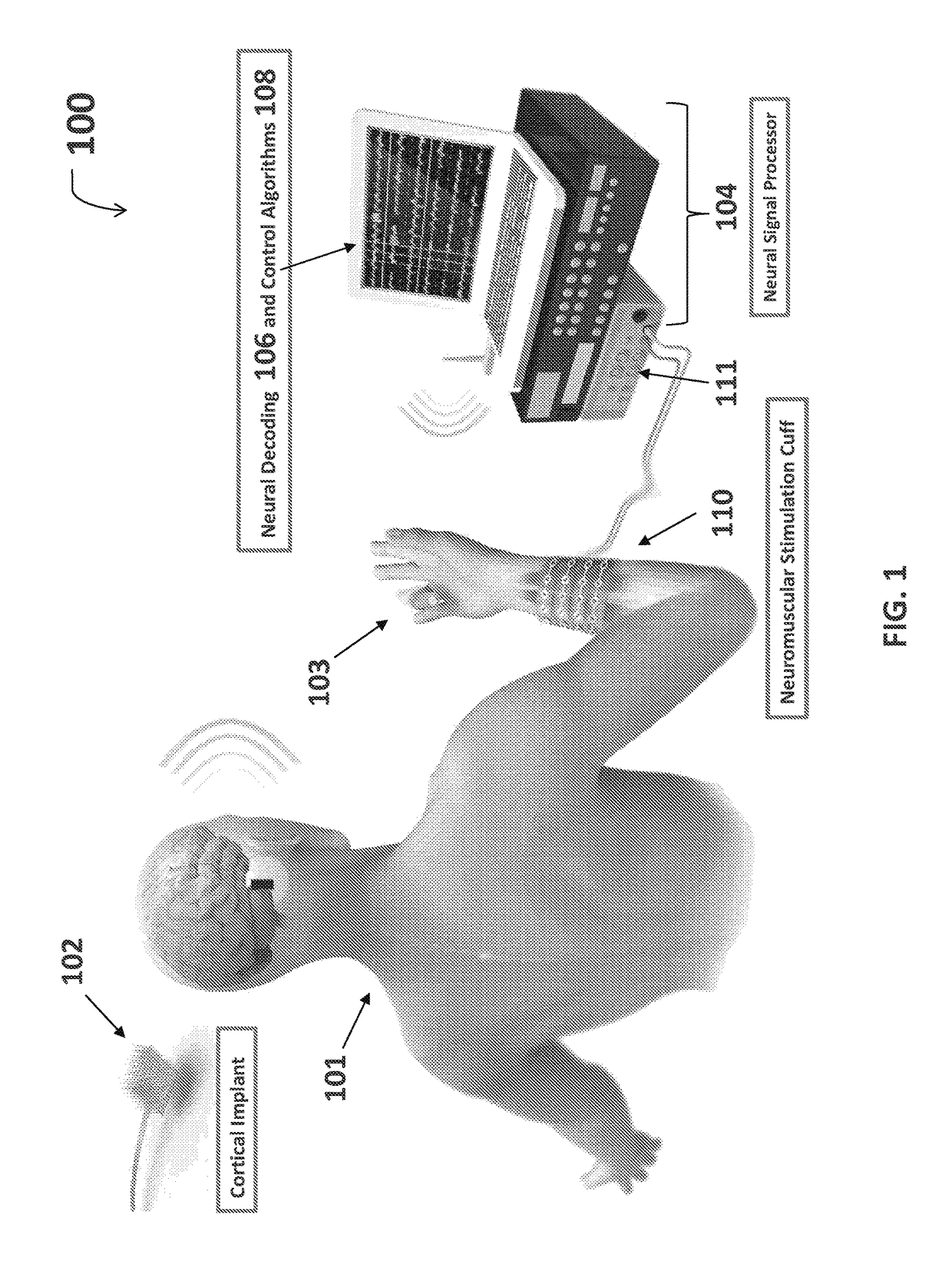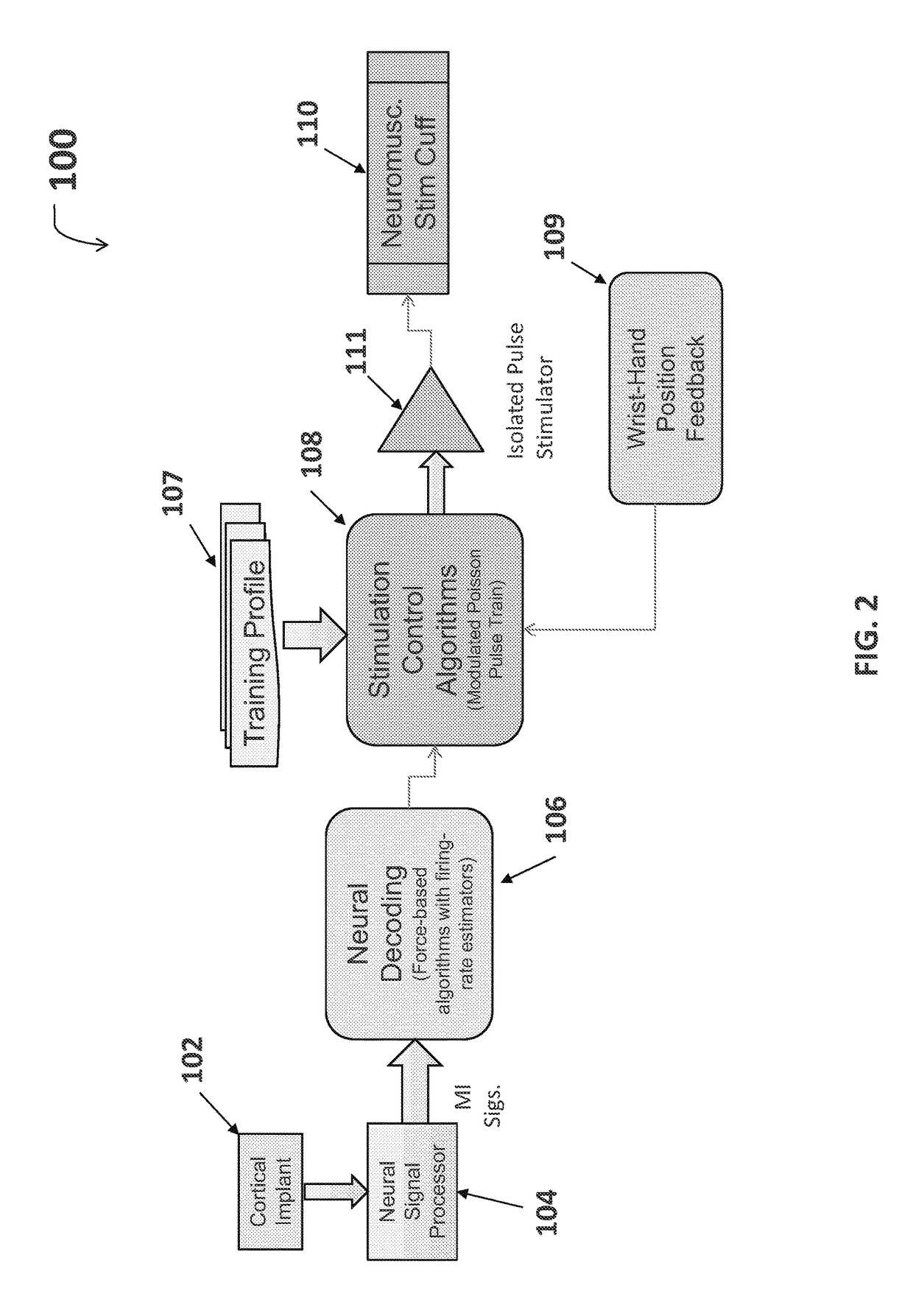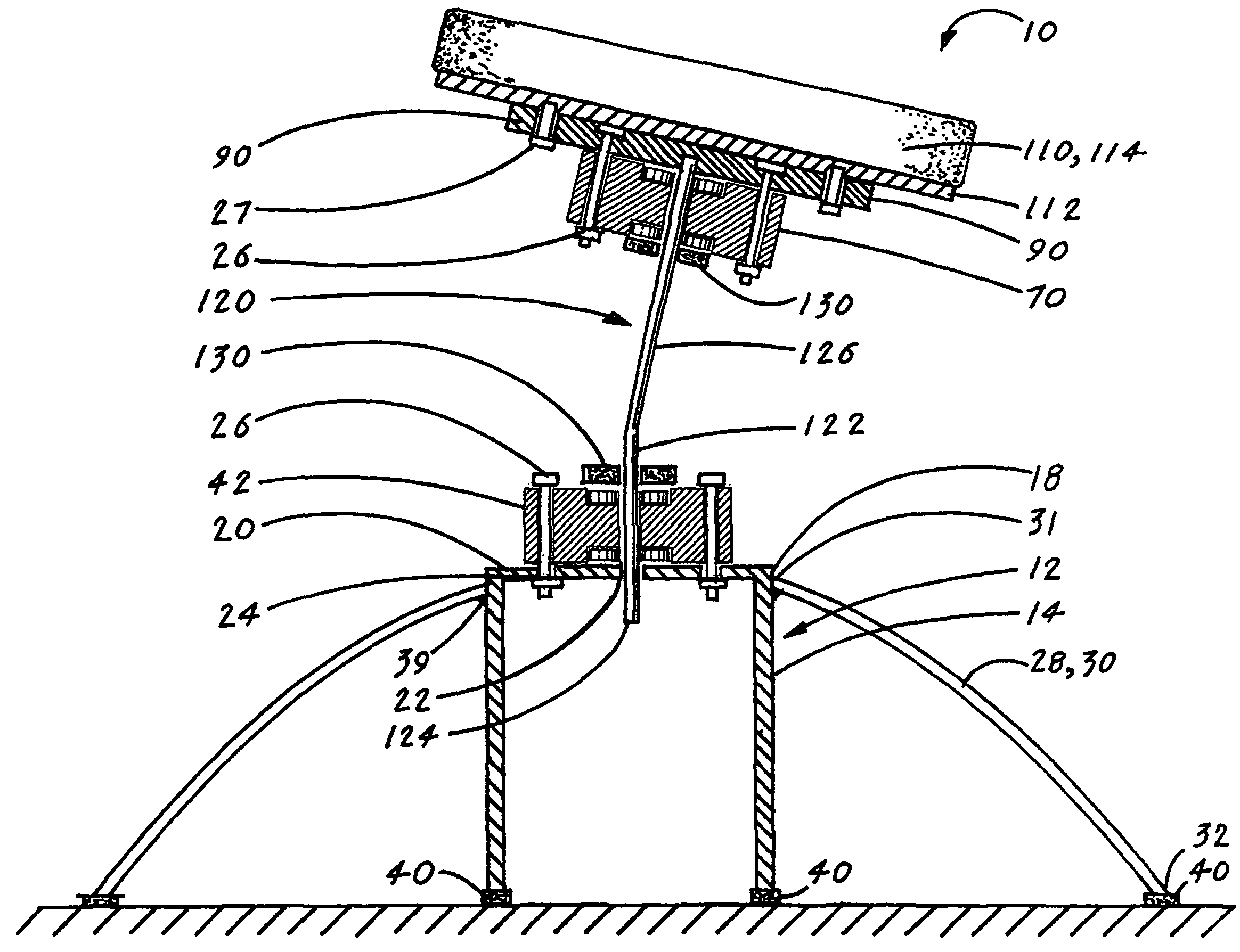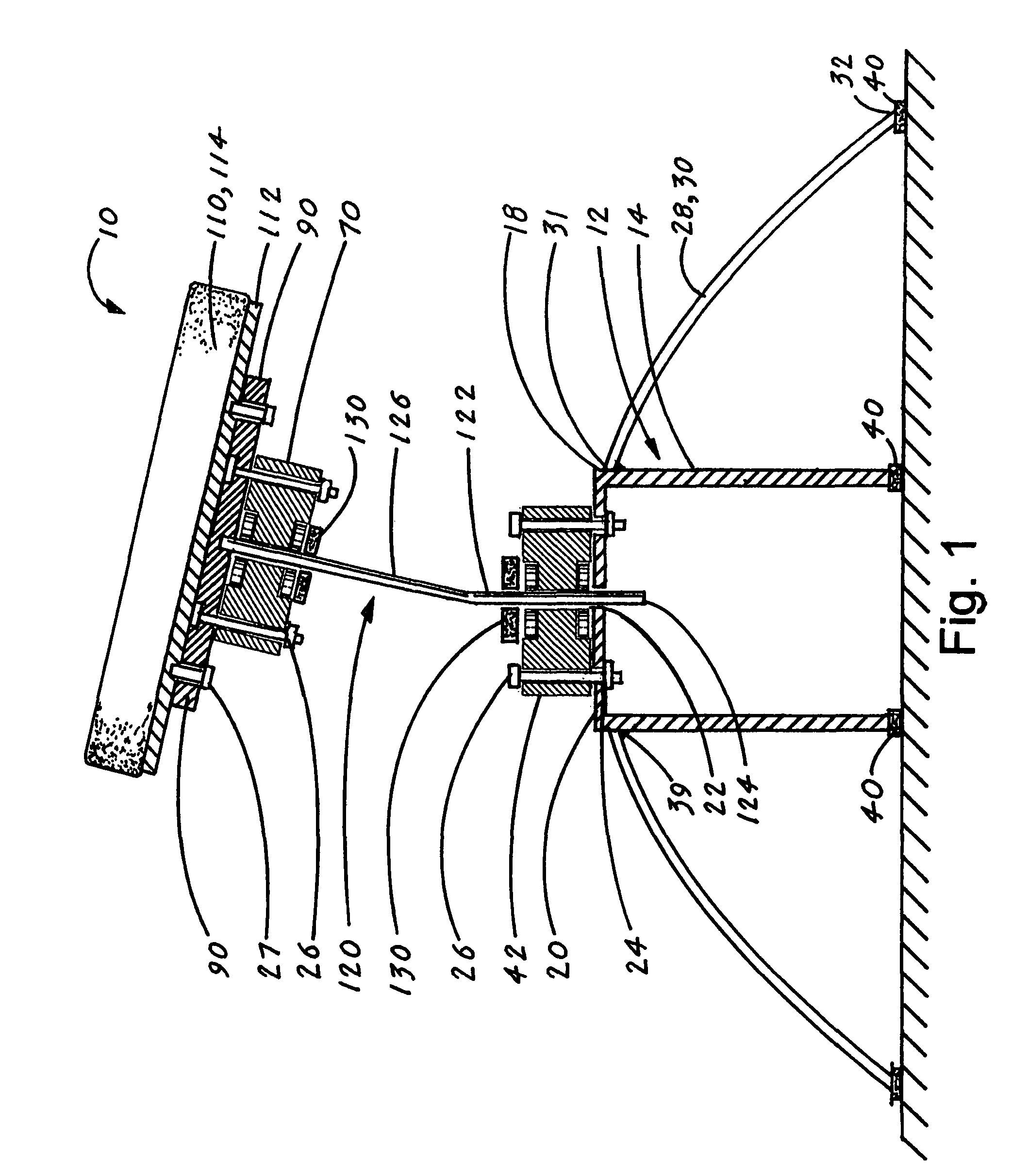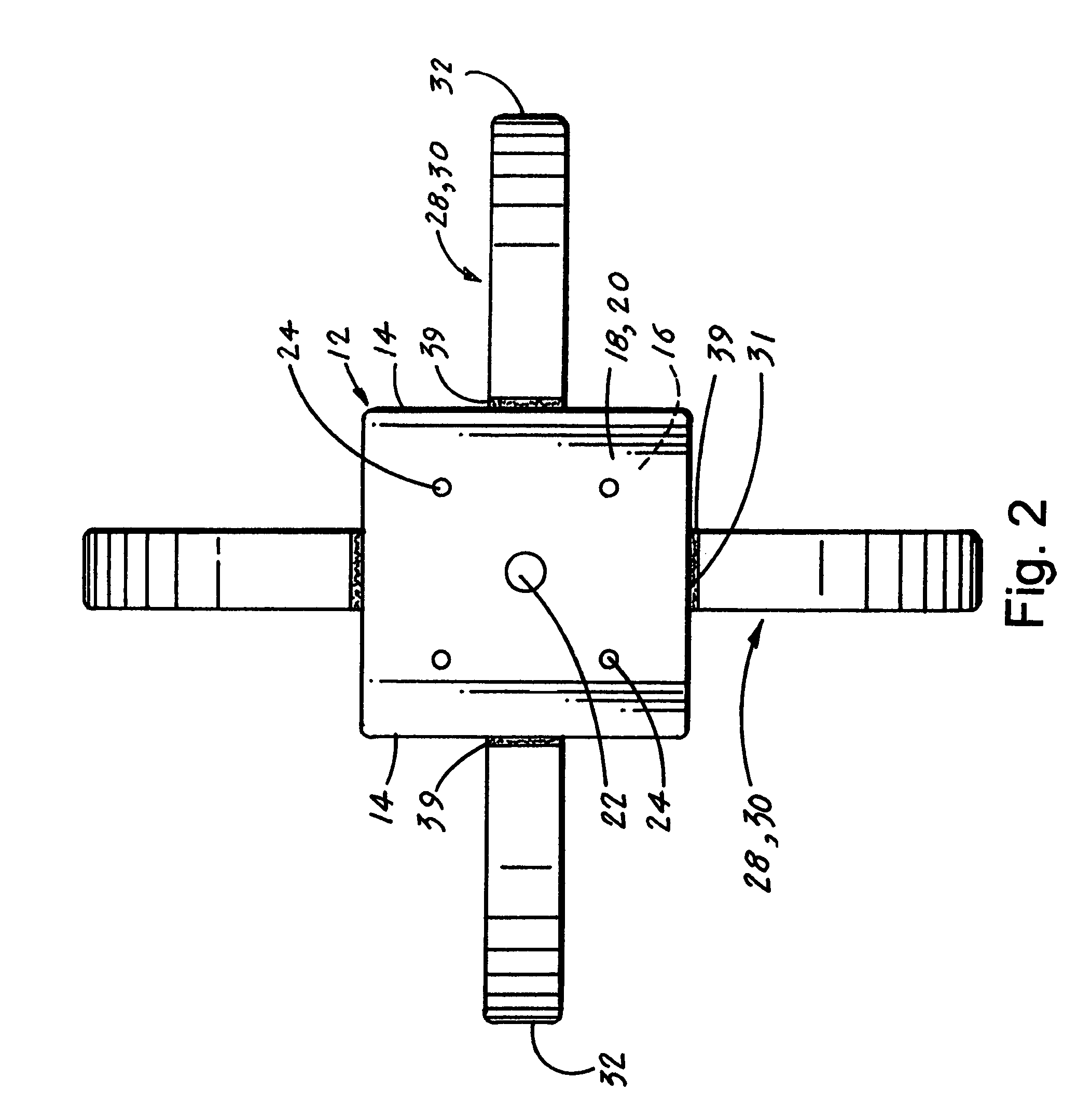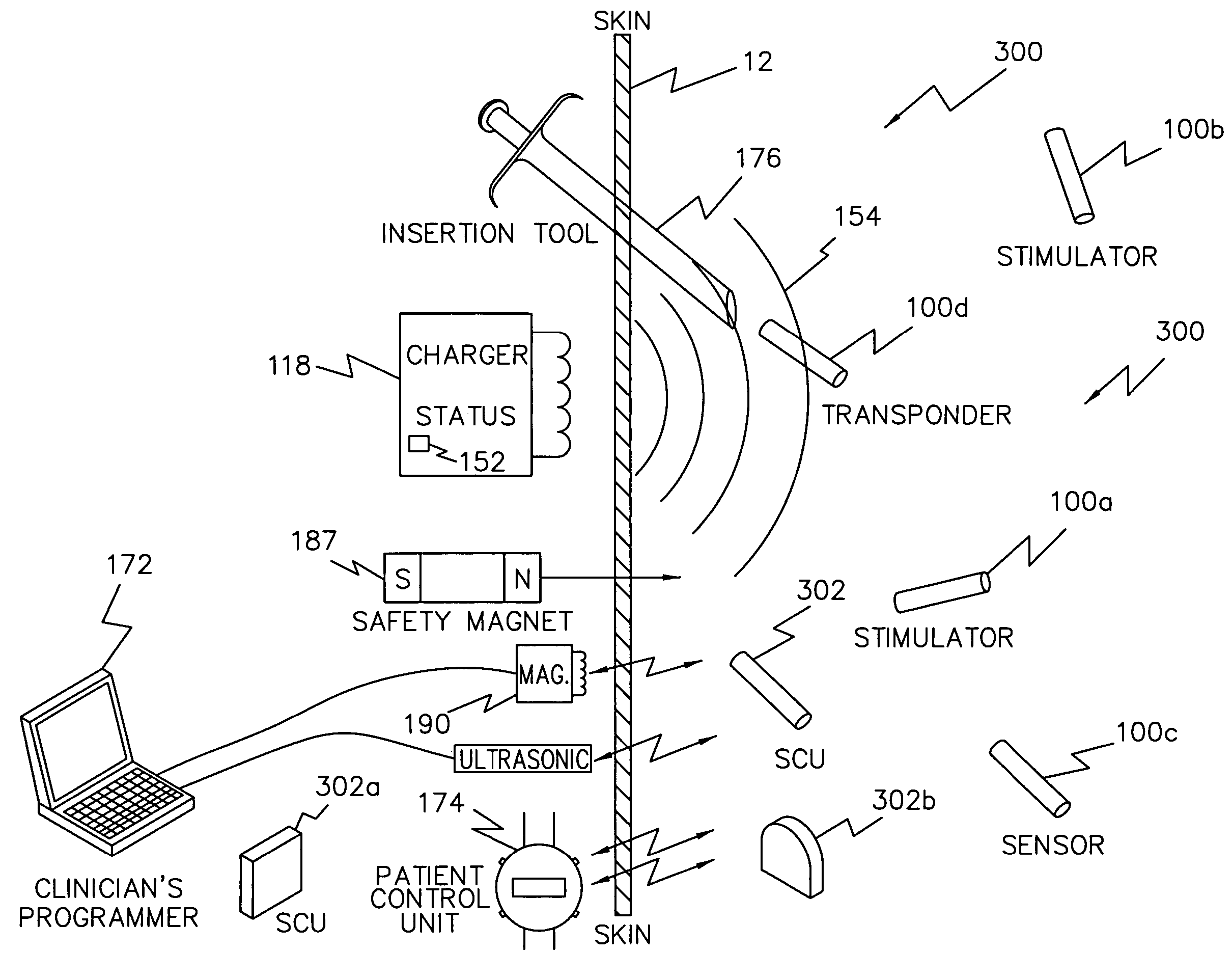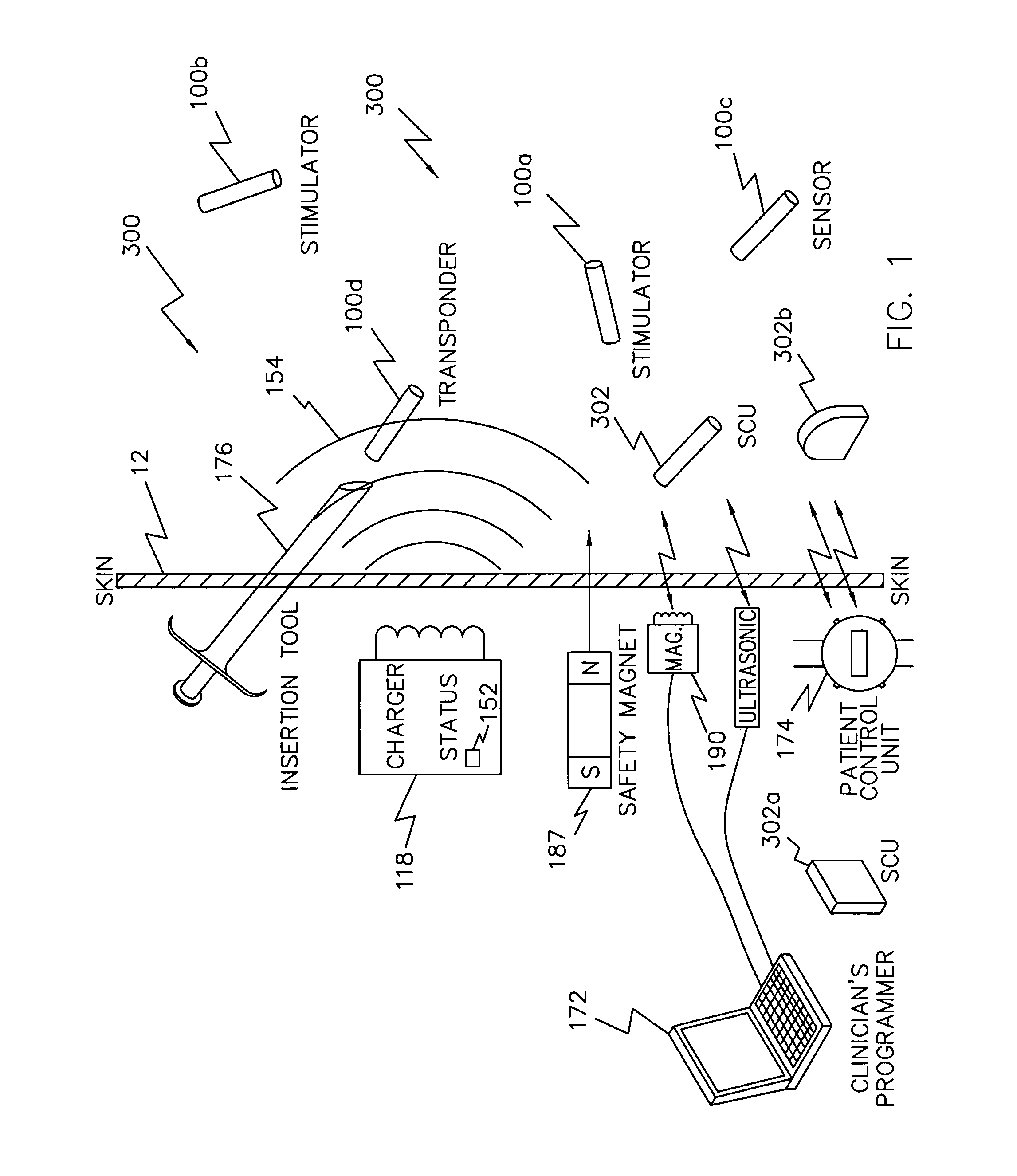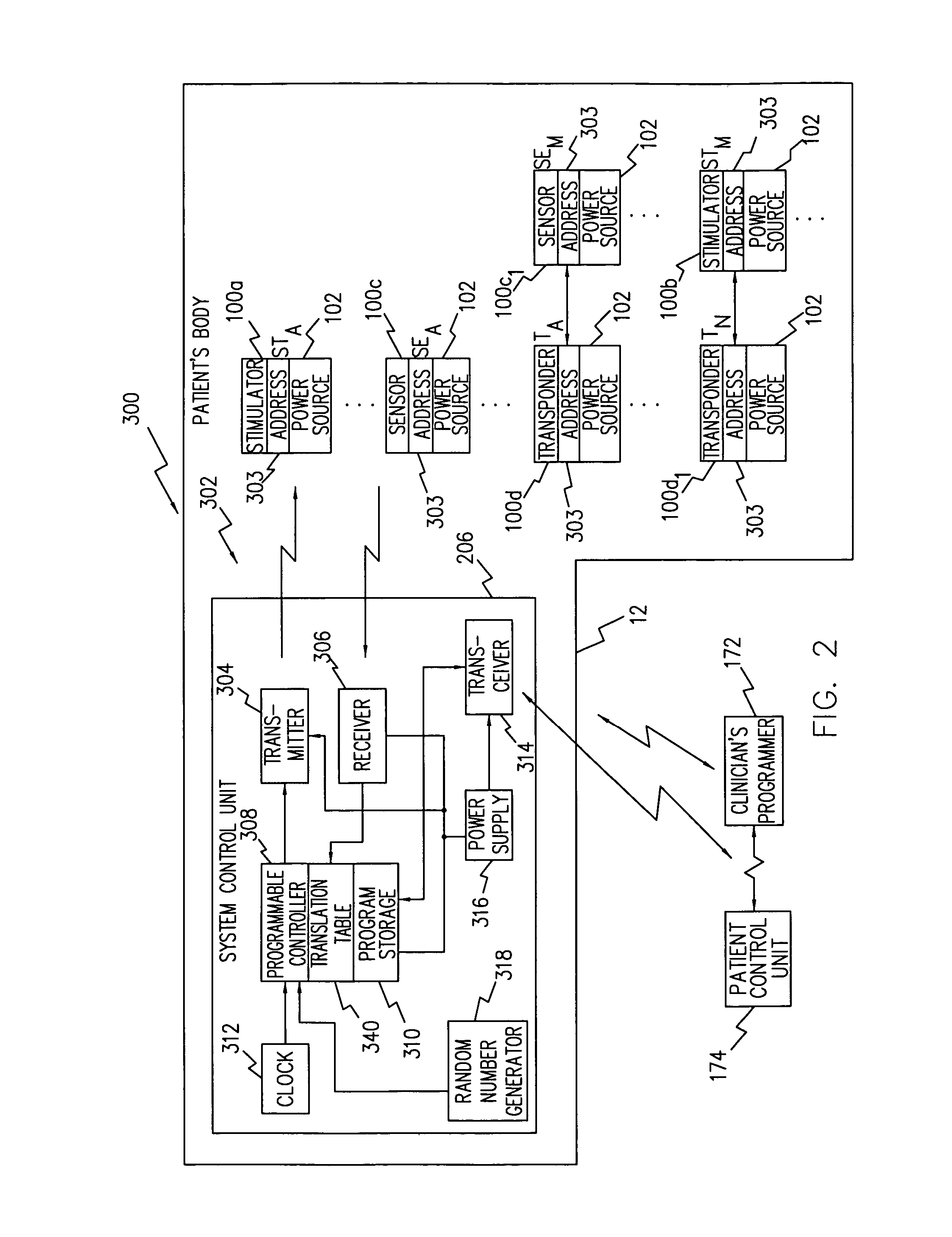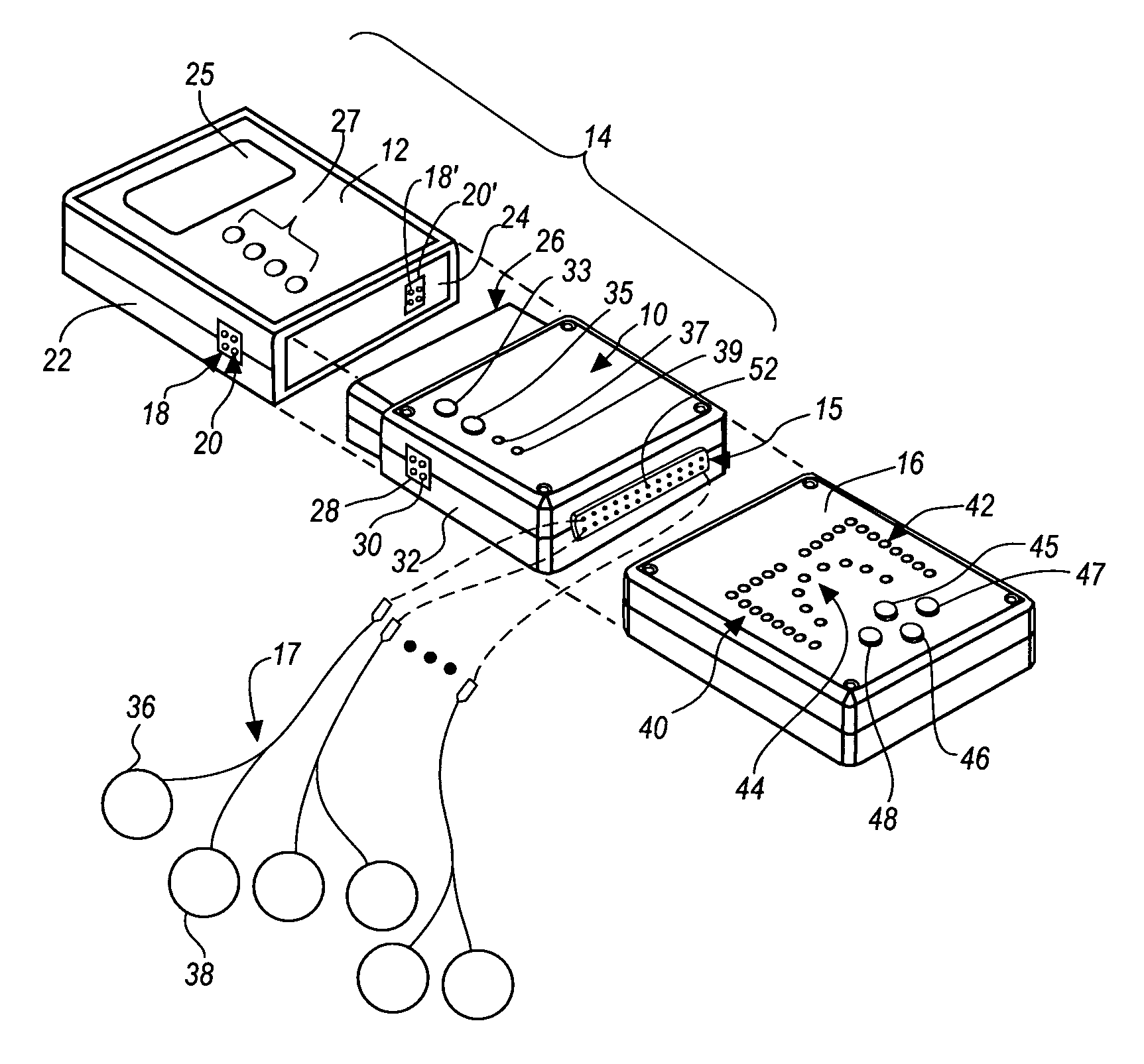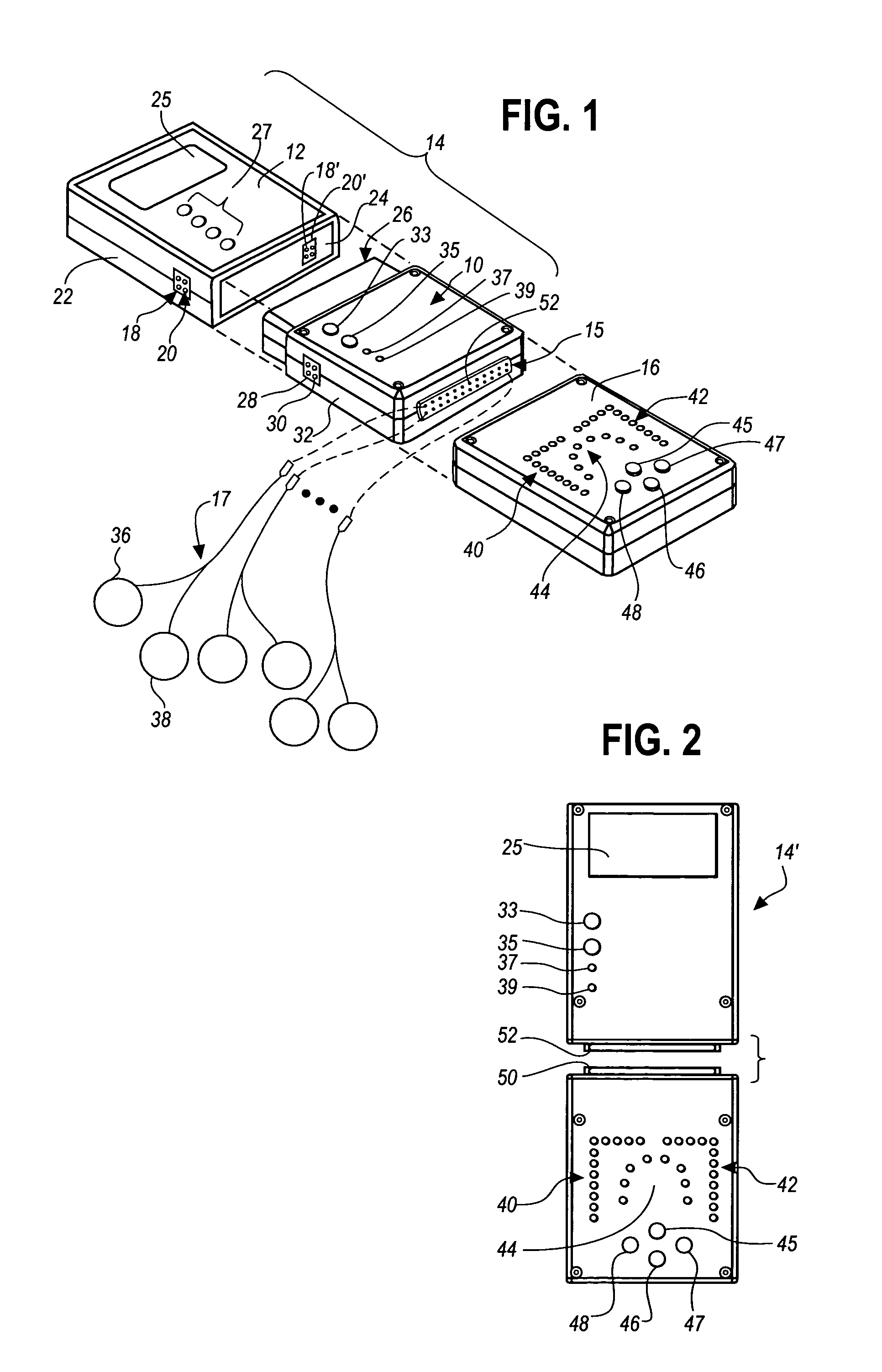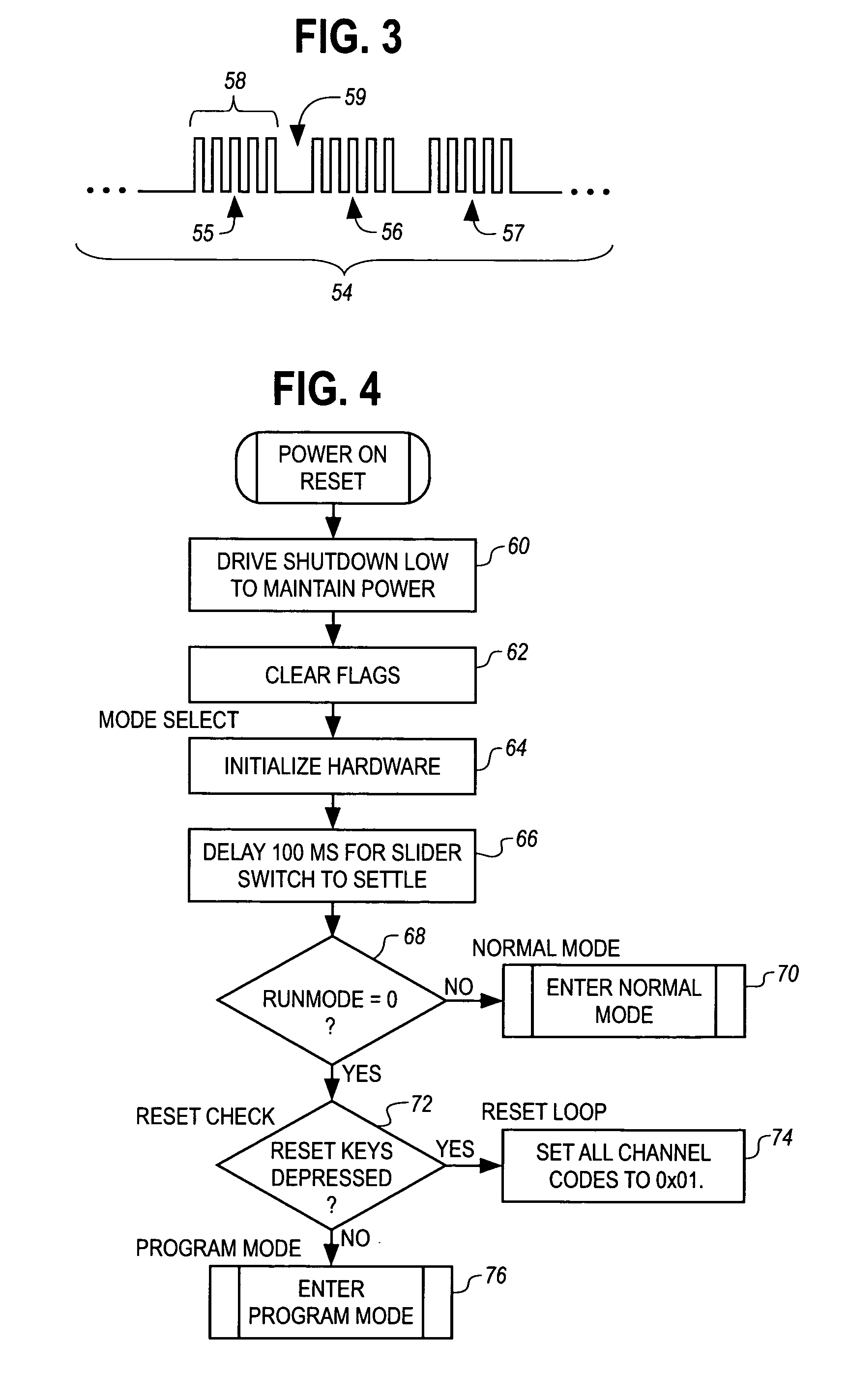Patents
Literature
86 results about "Neuromuscular stimulation" patented technology
Efficacy Topic
Property
Owner
Technical Advancement
Application Domain
Technology Topic
Technology Field Word
Patent Country/Region
Patent Type
Patent Status
Application Year
Inventor
Portable assemblies, systems and methods for providing functional or therapeutic neuromuscular stimulation
InactiveUS20080154335A1Easy to carryNo discomfortSpinal electrodesExternal electrodesElectricityMedicine
Neuromuscular stimulation assemblies, systems, and methods make possible the providing of short-term therapy or diagnostic testing by providing electrical connections between muscles or nerves inside the body and stimulus generators or recording instruments mounted on the surface of the skin outside the body. Neuromuscular stimulation assemblies, systems, and methods may include a steerable introducer that defines an interior lumen sized and configured to shield a percutaneous electrode from contact with tissue during advancement to a desired position within tissue.
Owner:NDI MEDICAL LLC - CHARTER NO 1766209
Method, apparatus, and surgical technique for autonomic neuromodulation for the treatment of disease
InactiveUS20060167498A1Reduce or prevent conditionReducing and preventing symptomSpinal electrodesSurgical needlesSplanchnic nervesDisease
The present invention teaches a method and apparatus for physiological modulation, including neural and gastrointestinal modulation, for the purposes of treating several disorders, including obesity, depression, epilepsy, and diabetes. This includes chronically implanted neural and neuromuscular modulators, used to modulate the afferent neurons of the sympathetic nervous system to induce satiety. Furthermore, this includes neuromuscular stimulation of the stomach to effect baseline and intermittent smooth muscle contraction to increase gastric intraluminal pressure, which induces satiety, and stimulate sympathetic afferent fibers, including those in the sympathetic trunk, splanchnic nerves, and greater curvature of the stomach, to augment the perception of satiety.
Owner:DILORENZO BIOMEDICAL
Method and apparatus for neuromodulation and physiologic modulation for the treatment of metabolic and neuropsychiatric disease
InactiveUS7529582B1Delay is slowIncrease pressureUltrasound therapySpinal electrodesSplanchnic nervesAfferent Neurons
A method and apparatus for physiological modulation, including neural and gastrointestinal modulation, for the purposes of treating several disorders, including obesity, depression, epilepsy, and diabetes. This includes chronically implanted neural and neuromuscular modulators, used to modulate the afferent neurons of the sympathetic nervous system to induce satiety. Furthermore, this includes neuromuscular stimulation of the stomach to effect baseline and intermittent smooth muscle contraction to increase gastric intraluminal pressure, which induces satiety, and stimulate sympathetic afferent fibers, including those in the sympathetic trunk, splanchnic nerves, and greater curvature of the stomach, to augment the perception of satiety.
Owner:DILORENZO DANIEL J
Electrosurgical generator for minimizing neuromuscular stimulation
ActiveUS9839470B2Reduce needAc-dc conversionSurgical instruments for heatingEngineeringNeuromuscular stimulation
A system for minimizing neuromuscular stimulation includes a converter, an inverter, and a controller. The converter is configured to output a dc waveform and includes at least one first switching element operated at a first duty cycle. The inverter is coupled to the converter and includes at least one second switching element operated at a second duty cycle. The inverter is configured to invert the DC waveform to generate an electrosurgical pulse waveform. The controller is coupled to the converter and the inverter, and is configured to control the first duty cycle to adjust a magnitude of the electrosurgical pulse waveform and the second duty cycle to adjust at least one property of the electrosurgical pulse waveform to minimize neuromuscular stimulation.
Owner:TYCO HEALTHCARE GRP LP
Method, apparatus, surgical technique, and stimulation parameters for autonomic neuromodulation for the treatment of obesity
InactiveUS20070162085A1Reduce or prevent conditionReducing and preventing symptomSpinal electrodesHead electrodesSplanchnic nervesAfferent Neurons
The present invention teaches a method and apparatus for physiological modulation, including neural and gastrointestinal modulation, for the purposes of treating several disorders, including obesity, depression, epilepsy, and diabetes. This includes chronically implanted neural and neuromuscular modulators, used to modulate the afferent neurons of the sympathetic nervous system to induce satiety. Furthermore, this includes neuromuscular stimulation of the stomach to effect baseline and intermittent smooth muscle contraction to increase gastric intraluminal pressure, which induces satiety, and stimulate sympathetic afferent fibers, including those in the sympathetic trunk, splanchnic nerves, and greater curvature of the stomach, to augment the perception of satiety.
Owner:DILORENZO BIOMEDICAL
Method, apparatus, and surgical technique for autonomic neuromodulation for the treatment of obesity
InactiveUS20060116736A1Reduce or prevent conditionReducing and preventing symptomUltrasound therapySpinal electrodesDiseaseSplanchnic nerves
The present invention teaches a method and apparatus for physiological modulation, including neural and gastrointestinal modulation, for the purposes of treating several disorders, including obesity, depression, epilepsy, and diabetes. This includes chronically implanted neural and neuromuscular modulators, used to modulate the afferent neurons of the sympathetic nervous system to induce satiety. Furthermore, this includes neuromuscular stimulation of the stomach to effect baseline and intermittent smooth muscle contraction to increase gastric intraluminal pressure, which induces satiety, and stimulate sympathetic afferent fibers, including those in the sympathetic trunk, splanchnic nerves, and greater curvature of the stomach, to augment the perception of satiety.
Owner:DILORENZO BIOMEDICAL
Posture improvement devices and methods for use
ActiveUS20090062704A1Effective trainingExtended range of motionOrthopedic corsetsProtective garmentMedicineMuscle memory
A posture improvement device provides neuromuscular stimulation or proprioceptive therapy using a combination of pressure, torque and angle simultaneously applied to a user in order to train body muscles for proper posture through muscle memory. The device comprises a garment designed to be worn by the user, which is preferably configured like a short-sleeved undershirt or T-shirt. The garment may be fabricated of a stretchable, yet taut material in order to provide the desirable form-fitting feature such that pressure may be readily applied to the surface of the skin for neuromuscular stimulation. This elastomeric material is also preferably breathable and / or which has moisture wicking capabilities.
Owner:ALIGNMED +1
Neuromuscular Stimulation
ActiveUS20080288020A1Move his arm more effectivelyElectrotherapyElectromyographyPhysical medicine and rehabilitationNeuromuscular stimulation
Apparatus for muscle activation, comprising: at least one electrode (138, 140, 142, 144) adapted to deliver a neuromuscular stimulation (NMES) signal to a body portion (146); at least one controller (124) adapted to provide a NMES signal comprising a sequence of stimulation signals to said at least one electrode; and a mechanical motion element (300) coupled to at least one of said body portion and a mirror body portion, wherein said mechanical motion element is operatively coupled to said at least one controller and wherein said at least one controller controls said NMES signal in conjunction with said mechanical motion element.
Owner:MOTORIKA
Portable assemblies, systems and methods for providing functional or therapeutic neuromuscular stimulation
Neuromuscular stimulation assemblies, systems, and methods make possible the providing of short-term therapy or diagnostic testing by providing electrical connections between muscles or nerves inside the body and stimulus generators or recording instruments mounted on the surface of the skin outside the body. Neuromuscular stimulation assemblies, systems, and methods may include a steerable introducer that defines an interior lumen sized and configured to shield a percutaneous electrode from contact with tissue during advancement to a desired position within tissue.
Owner:SPR THERAPEUTICS
Portable percutaneous assemblies, systems and methods for providing highly selective functional or therapeutic neuromuscular stimulation
Neuromuscular stimulation assemblies, systems, and methods make possible the providing of short-term therapy or diagnostic testing by providing electrical connections between muscles or nerves inside the body and stimulus generators or recording instruments mounted on the surface of the skin outside the body.
Owner:SPR THERAPEUTICS
System and device for neuromuscular stimulation
A wearable neuromuscular stimulation and neuroprosthetic system and device for treating spinal cord injury, stroke, and other neurological conditions; and for the management of chronic pain. This invention provides a system for transcutaneous neuromuscular stimulation and typically comprises a wearable item that further includes a flexible, non-conductive material; at least one flexible, generally flat electrode attachable to or embedded within the wearable item; and a programmable electrical stimulation device connectable to the electrode(s). Each electrode typically includes a silver-impregnated or silver-treated material.
Owner:MUCCIO PHILIP E
Systems and methods for performing prosthetic or therapeutic neuromuscular stimulation using a universal external controller accommodating different control inputs and/or different control outputs
InactiveUS6701189B2Improve the quality of lifeConvenience of operation,ElectrotherapyArtificial respirationProsthesisQuality of life
The systems and methods provide effective neuromuscular stimulation to meet a host of different prosthetic or therapeutic objections. The systems and methods also provide convenience of operation, flexibility to meet different user-selected requirements, and transportability and ease of manipulation, that enhance the quality of life of the individual that requires chronic neuromuscular stimulation.
Owner:NEUROCONTROL CORP
Portable assemblies, systems and methods for providing functional or therapeutic neuromuscular stimulation
ActiveUS20050182457A1Simplifies meeting power demandEasy to carrySpinal electrodesElectricityMedicine
Neuromuscular stimulation assemblies, systems, and methods make possible the providing of short-term therapy or diagnostic testing by providing electrical connections between muscles or nerves inside the body and stimulus generators or recording instruments mounted on the surface of the skin outside the body. Neuromuscular stimulation assemblies, systems, and methods may include a steerable introducer that defines an interior lumen sized and configured to shield a percutaneous electrode from contact with tissue during advancement to a desired position within tissue.
Owner:SPR THERAPEUTICS
Systems and methods for performing prosthetic or therapeutic neuromuscular stimulation using a universal external controller accommodating different control inputs and/or different control outputs
InactiveUS20020188331A1Easy to understandEasy to useElectrotherapyArtificial respirationProsthesisQuality of life
The systems and methods provide effective neuromuscular stimulation to meet a host of different prosthetic or therapeutic objections. The systems and methods also provide convenience of operation, flexibility to meet different user-selected requirements, and transportability and ease of manipulation, that enhance the quality of life of the individual that requires chronic neuromuscular stimulation.
Owner:NEUROCONTROL CORP
Portable percutaneous assemblies, systems and methods for providing highly selective functional or therapeutic neuromuscular stimulation
Neuromuscular stimulation assemblies, systems, and methods make possible the providing of short-term therapy or diagnostic testing by providing electrical connections between muscles or nerves inside the body and stimulus generators or recording instruments mounted on the surface of the skin outside the body.
Owner:SPR THERAPEUTICS
Methods of implanting electrode leads for use with implantable neuromuscular electrical stimulator
ActiveUS20110224682A1Reduce harmAvoids extended recuperation periodSpinal electrodesDiagnosticsMedicineNeuromuscular stimulation
Electrode leads for providing neuromuscular stimulation of the spinal muscles, and methods of implantation of electrode leads, are provided that reduce injury to target muscles, and avoid extended recuperation period, by enabling a clinician to visualize and confirm the implantation site of the electrode leads during an implantation procedure
Owner:MAINSTAY MEDICAL
Treatment of oropharyngeal disorders by application of neuromuscular electrical stimulation
InactiveUS7280873B2Easy to swallowEnhanced advantageHead electrodesEsophageal electrodesElectricityDisease
A method for treating an oropharyngeal disorder in a patient by neuromuscular electrical stimulation includes selectively placing a plurality of electrodes in electrical contact with tissue of a pharyngeal region of the patient. The method also includes the steps of providing a pulse generator for generating a series of electrical pulses, each of which comprises a biphasic symmetrical waveform with an interval between the two phases, and attaching the plurality of electrodes to the pulse generator so that the series of electrical pulses may be provided to the patient through the plurality of electrodes. According to the method, a series of electrical pulses, each of which comprises a biphasic symmetrical waveform with an interval between the two phases, is generated, and said series of electrical pulses is provided to the patient through the plurality of electrodes. An apparatus for generating a series of electrical pulses for application of electrical neuromuscular stimulation to a patient through a plurality of electrodes for treatment of oropharyngeal disorders includes a pulse generator which generates a series of electrical pulses, each of which pulses comprises a biphasic symmetrical waveform with an interval between the two phases. The apparatus includes an intensity control circuit for regulating the series of electrical pulses such that the intensity of the electrical pulses does not exceed a predetermined value, a frequency controller for controlling the frequency at which the series of electrical pulses is generated so that such pulses are generated at a predetermined frequency, and a duration control circuit for controlling the duration of each such electrical pulse.
Owner:ESD
Apparatus and methods for anchoring electrode leads for use with implantable neuromuscular electrical stimulator
ActiveUS20130131766A1Overcomes drawbackSuture equipmentsSpinal electrodesAnatomical structuresEngineering
Apparatus and methods for tethering an electrode lead to an anatomical structure within a patient using a coupling member are provided. An anchor configured to be secured to the anatomical structure and an electrode lead suitable for neuromuscular stimulation of spinal muscles and / or nerves innervating one or more muscles that contribute to spine stability may be used. The electrode lead is configured to be coupled to the anchor via the coupling member by securing a first end of the coupling member to the electrode lead and securing a second end of the coupling member to an eyelet of the anchor to place the electrode lead at a desired anatomical site within the patient.
Owner:MAINSTAY MEDICAL
Non-invasive motor impairment rehabilitation system
InactiveUS20180333575A1Promote neuroplasticityPromote recoveryElectroencephalographyEye diagnosticsNon invasiveNeuromuscular stimulation
The following relates generally to systems, methods and devices for rehabilitation of patients with motor impairment. Electrical signals of a patient may be sensed using electrodes. From the electrical signals, an intent to move or focus level may be determined. Based on the electrical signals, neuromuscular stimulation is delivered to the patient. The stimulation may be delivered through a neuromuscular stimulation sleeve.
Owner:BATTELLE MEMORIAL INST
Wearable robot for detecting and suppressing tremor of human arms and method for suppressing tremor thereof
InactiveCN101612043AHigh degree of anthropomorphismSimple structureNon-surgical orthopedic devicesDiagnostic recording/measuringFilter algorithmClosed loop
The invention discloses a wearable robot for detecting and suppressing tremor of human arms and a method for suppressing the tremor thereof. The robot comprises a wearable exoskeleton system, a tremor excitation system, a tremor movement detection system and a signal processing and control system. The invention provides a comprehensively utilized 'three closed loop' mixed tremor suppression strategy based on the biological force loading technology and the functional neuromuscular stimulation technology. When the tremor patients carry out daily activities such as writing, raising arms and the like, the tremor movement detection system senses the movement information of the arms and isolates tremor movement signals from normal movement signals through the 'two-stage' adaptive prediction filtering algorithm; the 'three closed loop' tremor movement suppression control strategy is adopted to respectively control a functional neuromuscular stimulation device and a DC motor system to generate tremor movement with the same amplitude and 'opposite' phase positions so as to achieve the aim of suppressing arm tremor of the patients and improve the quality of lives of the tremor patients.
Owner:HEFEI INSTITUTES OF PHYSICAL SCIENCE - CHINESE ACAD OF SCI
Flexible sheet for neuromuscular stimulation
A flexible sheet for neurostimulation is described having a flexible non-conductive substrate matrix in which electrodes are embedded along a lower surface. Electrically conductive wires extend from the electrodes through the flexible substrate to another exterior surface of the substrate. Methods of making the flexible sheet and making a device using the flexible sheet are also disclosed.
Owner:BATTELLE MEMORIAL INST
Percutaneous electrode assemblies, systems, and methods for providing highly selective functional or therapeutic neuromuscular stimulation
InactiveUS20070032836A1Easy to carryNo discomfortSpinal electrodesSurgeryElectrical connectionNeuromuscular stimulation
Owner:NDI MEDICAL LLC - CHARTER NO 1766209
Neural sleeve for neuromuscular stimulation, sensing and recording
ActiveUS20150306373A1Increase flexibilityIncreased durabilityInput/output for user-computer interactionCathode-ray tube indicatorsFlexible circuitsPhysical therapy
The present disclosure relates to neuromuscular stimulation and sensing cuffs. The neuromuscular stimulation cuff has at least two fingers and a plurality of electrodes disposed on each finger. More generally, the neuromuscular stimulation cuff includes an outer, reusable component and an inner, disposable component. One or more electrodes are housed within the reusable component. The neuromuscular stimulation cuff may be produced by providing an insulating substrate layer, forming a conductive circuit on the substrate layer to form a conductive circuit layer, adhering a cover layer onto the conductive circuit layer to form a flexible circuit, and cutting at least one flexible finger from the flexible circuit. The neuromuscular stimulation cuff employs a flexible multi-electrode design which allows for reanimation of complex muscle movements in a patient, including individual finger movement.
Owner:BATTELLE MEMORIAL INST
Neuromuscular stimulation to avoid pulmonary embolisms
ActiveUS20060122663A1Avoid it happening againPerson identificationImplantable neurostimulatorsAccelerometerMedicine
A system and method that provide a prophylactic treatment to a person, e.g., a patient, to avoid the occurrence of pulmonary embolisms by the system providing neuromuscular stimulation to a person's lower extremities, e.g., the person's legs, when the system senses that a person has been immobile for an extended period of time. An implantable neuromuscular pacer, such as that described in U.S. Pat. Nos. 5,193,539; 5,193,540; 6,164,284; 6,185,452; 6,208,894; 6,315,721; 6,564,807; and their progeny, may be used to provide to selectively provide such stimulation. Preferably, such a device may be battery powered so that it can operate independent of an external apparatus. In particular, systems and devices of the present invention preferably additionally include an activity monitor, e.g., an accelerometer or the like, that disables or limits stimulation to pronged time periods in which there is limited activity.
Owner:ALFRED E MANN FOUND FOR SCI RES
Neural sleeve for neuromuscular stimulation, sensing and recording
ActiveUS9884179B2Increased electrode positioning choiceGood electrical contactInput/output for user-computer interactionExternal electrodesFlexible circuitsNeuromuscular stimulation
Owner:BATTELLE MEMORIAL INST
Apparatus and methods for anchoring electrode leads for use with implantable neuromuscular electrical stimulator
Apparatus and methods for tethering an electrode lead to an anatomical structure within a patient using a coupling member are provided. An anchor configured to be secured to the anatomical structure and an electrode lead suitable for neuromuscular stimulation of spinal muscles and / or nerves innervating one or more muscles that contribute to spine stability may be used. The electrode lead is configured to be coupled to the anchor via the coupling member by securing a first end of the coupling member to the electrode lead and securing a second end of the coupling member to an eyelet of the anchor to place the electrode lead at a desired anatomical site within the patient.
Owner:MAINSTAY MEDICAL
Neuromuscular stimulation cuff
ActiveUS9884178B2Increased electrode positioning choiceGood electrical contactDiagnostic recording/measuringSensorsPhysical therapyNeuromuscular stimulation
The present disclosure describes systems, methods, and devices for performing thought-controlled neuromuscular stimulation. Also described are methods for producing a neuromuscular stimulation cuff. The systems and methods generally relate to receiving and processing thought signals indicative of an intended action, and then delivering stimulation to effectuate the intended action through a neuromuscular stimulation cuff. The neuromuscular stimulation cuff includes a flexible printed circuit board having at least one finger and a plurality of electrogel discs disposed on the at least one finger. The neuromuscular stimulation cuff may be produced as described herein. The neuromuscular stimulation cuff employs a flexible multi-electrode design which allows for reanimation of complex muscle movements in a patient, including individual finger movement.
Owner:BATTELLE MEMORIAL INST
Kinematic rotating-tilting mechanism
InactiveUS7775944B1Easy to disassembleChiropractic devicesGenitals massageEngineeringNeuromuscular stimulation
A kinematic rotating-tilting mechanism (10) that consists of six major elements: a housing (12), a housing flange assembly (42), a platform flange assembly (70), a platform base (90), a resilient section (110) and an angled shaft (120). The housing (12) includes an upper end (18) having a cover (20) to which is attached the housing flange assembly (42), and attached to the lower surface (98) of the platform (90) is the platform flange assembly (70). The shaft (120) has a lower vertical section (122) that is rotatably attached to the housing flange assembly (42), and an upper angled section (126) that is rotatably attached to the platform flange assembly (70). The platform base (90) has an upper surface (96) to which is attached a resilient section (110). A person who is located on the resilient section (110) can produce torque by shifting their body weight. The torque causes the resilient section (110) to produce a combination rotating and tilting motion that promotes neuro-muscular stimulation, is relaxing, and aids in relieving stress.
Owner:SHULTZ LARRY D
Neuromuscular stimulation to avoid pulmonary embolisms
A system and method that provide a prophylactic treatment to a person, e.g., a patient, to avoid the occurrence of pulmonary embolisms by the system providing neuromuscular stimulation to a person's lower extremities, e.g., the person's legs, when the system senses that a person has been immobile for an extended period of time. An implantable neuromuscular pacer, such as that described in U.S. Pat. Nos. 5,193,539; 5,193,540; 6,164,284; 6,185,452; 6,208,894; 6,315,721; 6,564,807; and their progeny, may be used to provide to selectively provide such stimulation. Preferably, such a device may be battery powered so that it can operate independent of an external apparatus. In particular, systems and devices of the present invention preferably additionally include an activity monitor, e.g., an accelerometer or the like, that disables or limits stimulation to pronged time periods in which there is limited activity.
Owner:ALFRED E MANN FOUND FOR SCI RES
Neuro-muscular stimulattor channel sequencer
InactiveUS7212854B2Overcome disadvantagesShorten the timeExternal electrodesNeuromuscular stimulationSignal generator
A neuro-muscular electrical stimulator includes a signal generator that generates at least one neuro-muscular stimulation signal and a programmable channel sequencer having six or more output channels. The channel sequencer couples the stimulation signal to the sequencer output channels in a predetermined sequence. A programmer that communicates with the sequencer allows a physician to individually program, for each sequencer output channel, the length of the time period during which the stimulation signal is coupled to the output channel so as to provide a patient specific therapy prescription.
Owner:MIDWEST LEASING
Features
- R&D
- Intellectual Property
- Life Sciences
- Materials
- Tech Scout
Why Patsnap Eureka
- Unparalleled Data Quality
- Higher Quality Content
- 60% Fewer Hallucinations
Social media
Patsnap Eureka Blog
Learn More Browse by: Latest US Patents, China's latest patents, Technical Efficacy Thesaurus, Application Domain, Technology Topic, Popular Technical Reports.
© 2025 PatSnap. All rights reserved.Legal|Privacy policy|Modern Slavery Act Transparency Statement|Sitemap|About US| Contact US: help@patsnap.com
